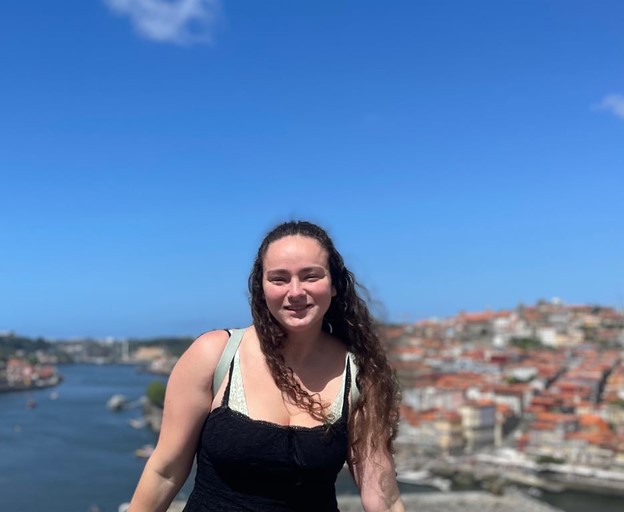CEA CAPA Alumni Ambassadors Directory
Find Alumni Ambassadors by:
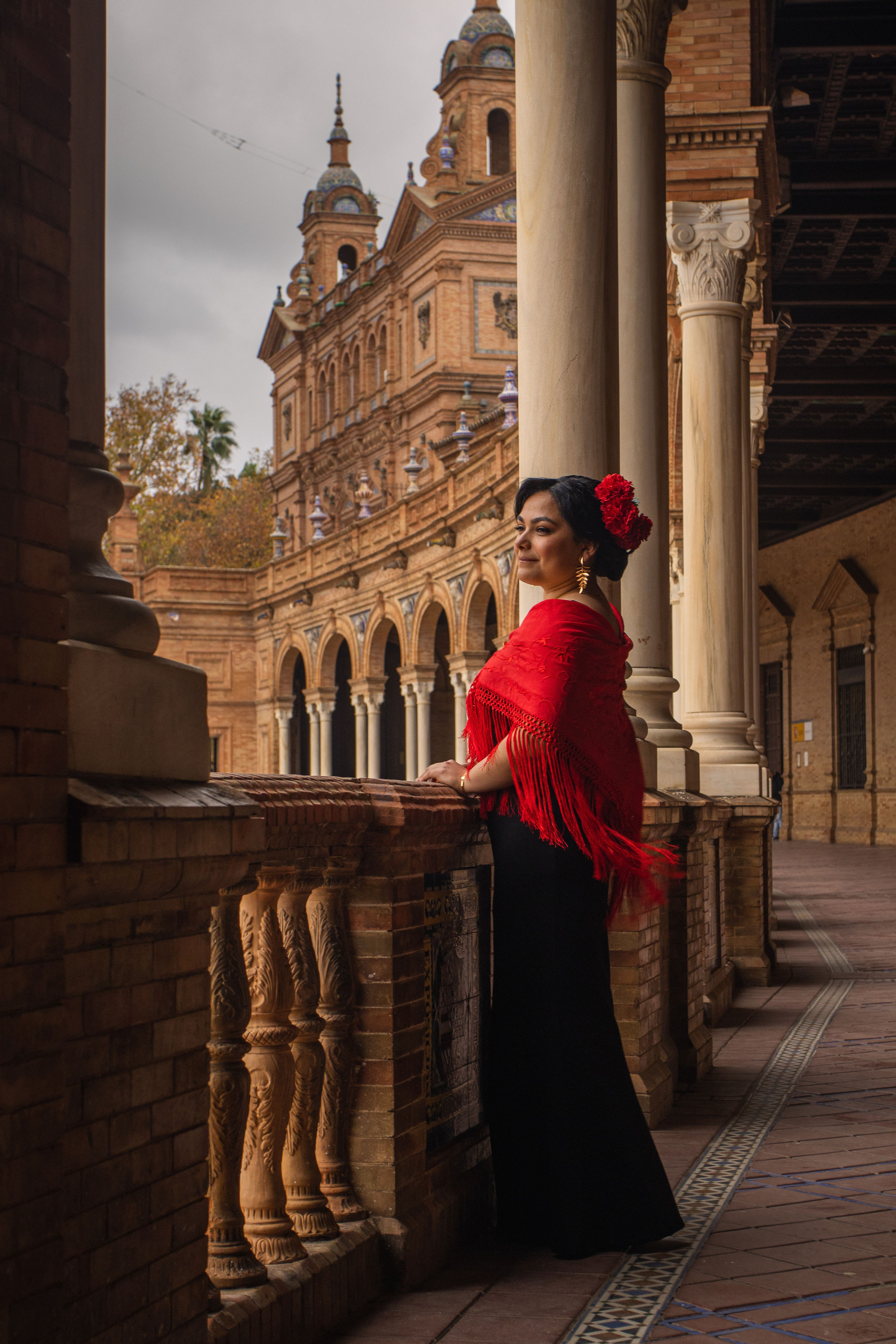
Yazmin Cruz
WhAT DO YOU APPRECIATE MOST ABOUT CEA CAPA EDUCATION ABROAD?
I appreciate the onsite staff at CEA CAPA. During my semester abroad in Seville I felt safe knowing I had several supporters. There were constant check ins with our monthly blogs along with conversations at the CEA CAPA Study Center.
How has study abroad shaped you?
My study abroad experience has personally opened my perspective in the ways I view my life and opportunities. One of my professors from the University of Sevilla encouraged me to participate at a local school teaching English as a full time job while obtaining my master's degree. I plan to pursue this opportunity post graduation to continue my studies and grow professionally in a city that helped me demonstrate and discover what I am capable of. I move forward from this experience knowing the world is meant to be seen by you, as it is filled with adventures, lessons, and love.
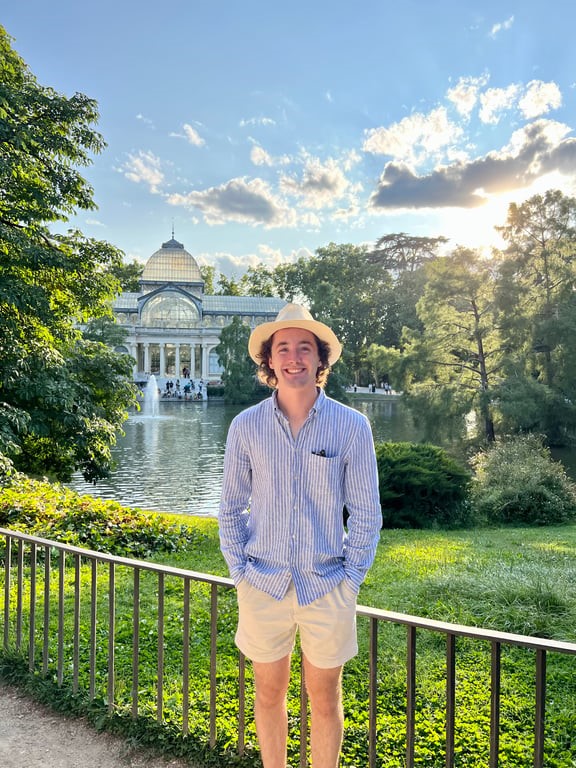
Caleb Mosty
What's one thing about cea capa you think everyone should know?
I wish to share with others the compassion and joy of the onsite staff. The staff members themselves have studied abroad and understand the emotions, excitement, fears, and questions you'll have in a new country. The staff is an excellent resource that fosters an incredible experience while studying abroad!
Why was your cea capa program the right fit for you?
As a Spanish minor, I've studied the culture and language of Spain throughout my time in college. Accordingly, Madrid offered an unsurpassed opportunity to continue my studies in a cosmopolitan hub of the world.
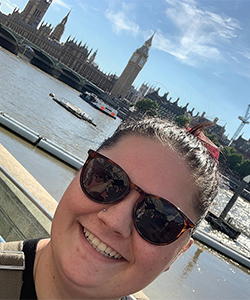
Abbie Pierce
What is one story or important aspect you always share about your time abroad?
I got to meet Tom Felton (Draco Malfoy) during my time abroad. He was so nice and meeting him was the highlight of that week! I also love talking about my visit to the Warner Brothers Studio where they filmed the Harry Potter movies.
What was your favorite study abroad class and why?
I loved both classes I took, but my favorite was the Jack the Ripper course. I learned about London history and how the legend of Jack the Ripper started. One day we took a walking tour around the city and visited iconic spots in London history that had correlations to Jack the Ripper too!
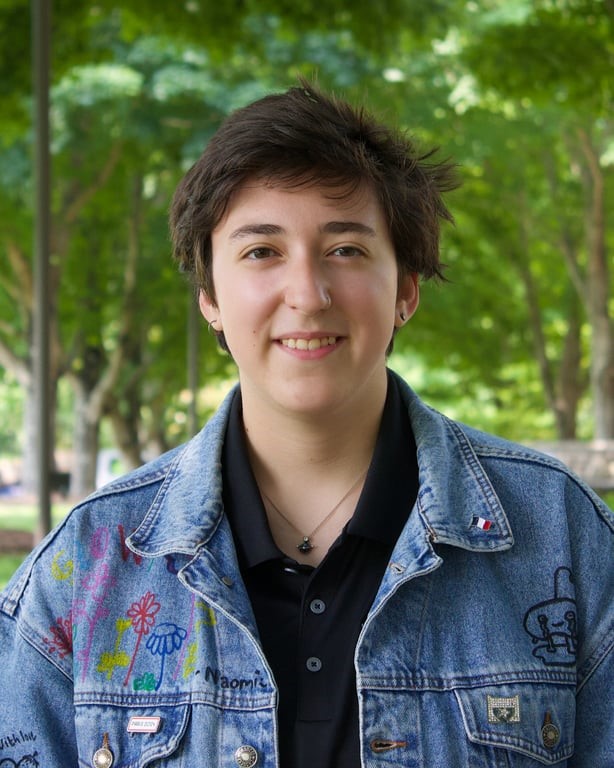
Adrien Allen
if you could pick another cea capa program (besides yours) which one would it be and why?
I'd pick an internship abroad program, as I heard from internship students that it was a wonderful experience and a different way to connect with the local culture.
how did you engage with the local community while abroad?
Aside from spending time with my host family, I got involved with events in my neighborhood and met local students. I formed a friend group that was a perfect mix of CEA CAPA students, other international people, and locals. We got many opportunities to share and compare each others cultures.
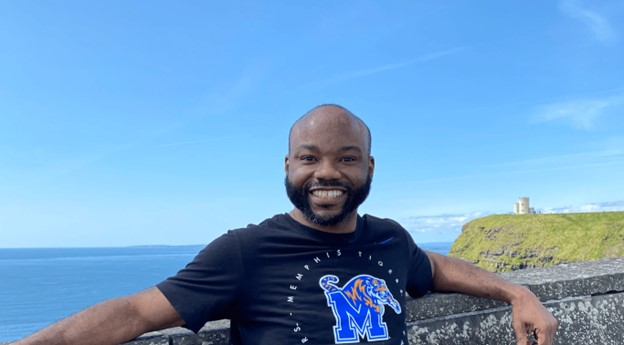
Donyale Young
tell us about your internship experience abroad.
I interned abroad and my company focused on helping people with disabilities live the life that they want to live. My co-workers and supervisor were very nice and easy to talk to, plus they're really big on work-life balance.
how did you engage with the local community while abroad?
I engaged with the local community by doing different activities and excursions with them. We went to different Irish cities nearby and learned about the culture there. We also had conversations with different locals when going out to eat.
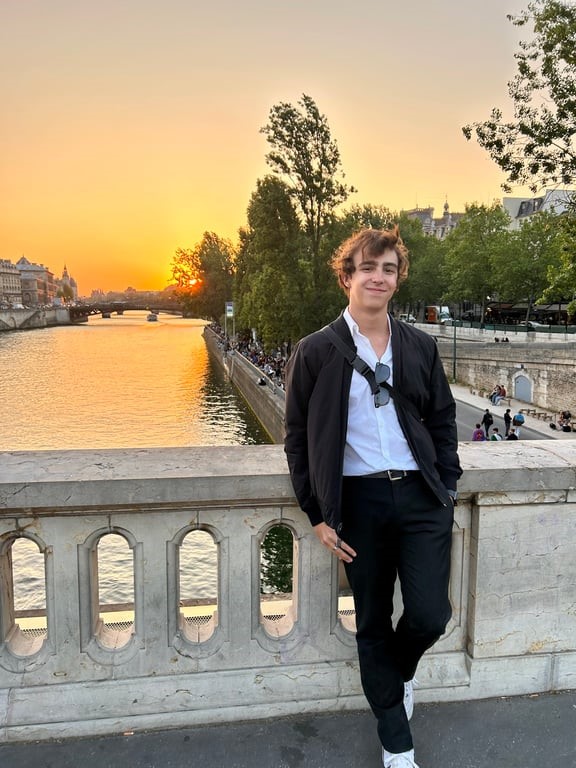
Matthew Sinanis
why was your CEA CAPA program the right fit for you?
My study abroad program in Paris was the right fit for me because I'm studying the French language and could practice my skills and learn more about the culture. Paris was an amazing city to explore the different regions and serve as a good central location to travel to different countries.
how did you engage with the local community while abroad?
I engaged with the local community by going to different cafés, restaurants, shops, and street sellers and did my best to communicate with them in French. Furthermore, I traveled as much as possible while abroad and interacted with different people from each location to learn about them and the location itself. I also went into these interactions with an open mind and tried many new foods that were regional delicacies even if I was unsure if I'd like them. An example of this was in Marseille, France where my friends and I tried raw sardines which were a local delicacy that were recommended to us.

Alexa Porter
What was your favorite class while abroad, and why?
My favorite class was my Spanish language intensive course. It gave me in-depth insight into vocabulary and grammar, and introduced several cultural concepts. I feel like I learned extremely applicable content that allowed to participate in day-to-day life around the city.
How did you engage with the local community while abroad?
One story that I always tell people is about the time that our entire CEA CAPA group went with some of the local Spanish students to play soccer. I had so much fun spending quality time with people that I only recently met, and we all quickly became close friends. Seeing people outside of the classroom and finding activities that were enjoyable for all of us was so crucial to my overall study abroad experience.
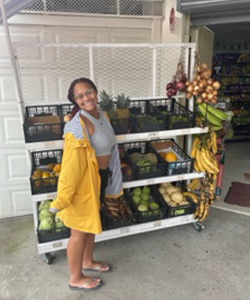
Xi McWilliams
What is one story or important aspect you always share about your time abroad?
As a person of color, we are constantly discouraged to virtue out to seek higher learning opportunities. Going abroad changed the narrative that people like me cannot afford these things or that we should not seek out these opportunities. CEA truly helped me realize that there are multiple ways I could afford to study abroad.
What was your favorite study abroad class and why?
My favorite study abroad class was Medical Health Spanish. My professor was highly hands-on and always had some type of fun activity waiting for us every morning. The class was engaging and I was encouraged to consistently try my best.
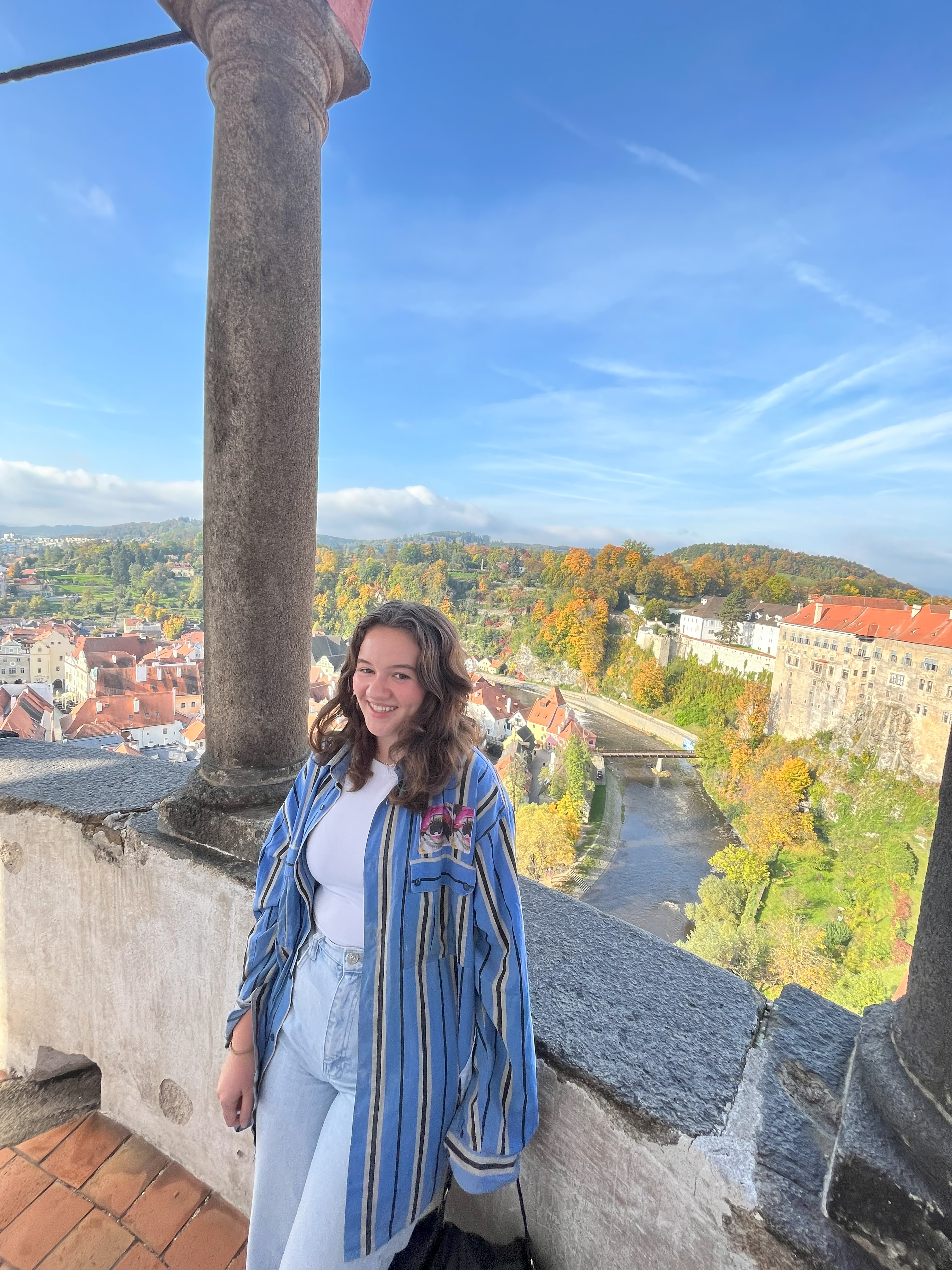
Mary Hines
How did you engage with the local community while abroad?
Living right in the city was a great way to live like a local to me! We
formed relationships with the shop owners and businesses around us and ended up
hanging out with some of the locals. They told us about Czech traditions and
made sure we always went to the fun cultural events around the city.
what's one story or important aspect you always tell people about your time abroad?
One aspect about my time abroad is that I went to a city I didn’t know
not knowing a soul! I ended up however meeting some of the best friends of my
life and we still talk daily. Don’t be scared to go study abroad without your
friends! They may be waiting there!
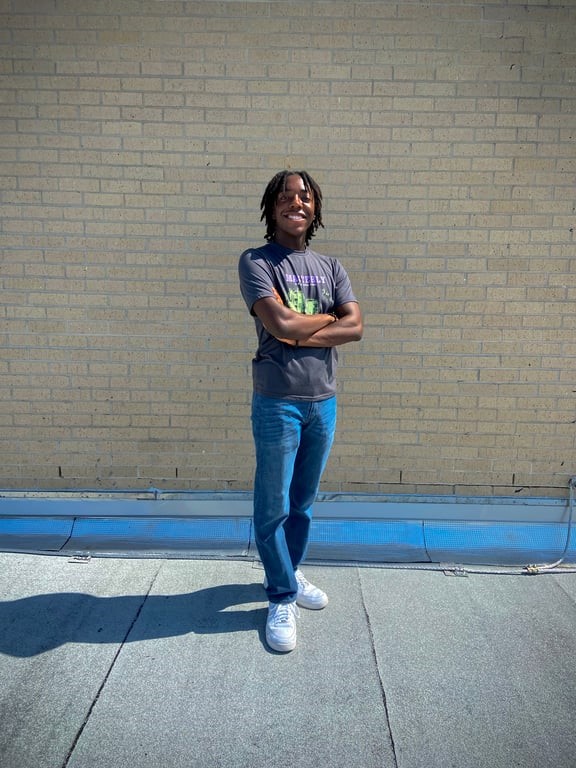
Dylan Richburg
WHAT'S ONE THING ABOUT CEA CAPA YOU THINK EVERYONE SHOULD KNOW?
They’re the Beyoncé of study abroad programs. The services they provide are absolutely unmatched and there’s no way you won’t love it!
WHAT WAS YOUR FAVORITE STUDY ABROAD CLASS AND WHY?
My favorite class while studying abroad was definitely the one on physical therapy. What made it stand out was the unique perspective it offered on therapy methods not commonly taught in the U.S. Exploring innovative Spanish therapeutic approaches and their developed technology was fascinating and provided valuable insights. Additionally, the hands-on experience of learning water therapy at the beach was an unforgettable bonus, making the class both educational and enjoyable.

Avery Simpson
What is one story or important aspect you always share about your time abroad?
One story I always share about my time abroad is when my program took a weekend trip to Valencia. We explored a lesser-known part of Spain and connected with other students in the program!
How did you engage with the local community while abroad?
I loved going to local cafes and getting to know people there!

Abigail Heisler
What was your favorite class while abroad, and why?
My favorite class abroad was Sports Psychology with Jose Carlos. Jose Carlos was the best professor I've ever had, and he truly cared about us. The content of the course was extremely interesting, and I can definitely apply it to my future career!
How did you engage with the local community while abroad?
While I was abroad, I engaged with the local community through many different ways. I frequented the local cafes and markets, which allowed me to interact with people in a genuine way. Also, I attended sports games within the area, which allowed me to experience the true magic of a community coming together to root for a specific team! These experiences were amazing, and I am so glad that I was able to connect with the locals in Sevilla.
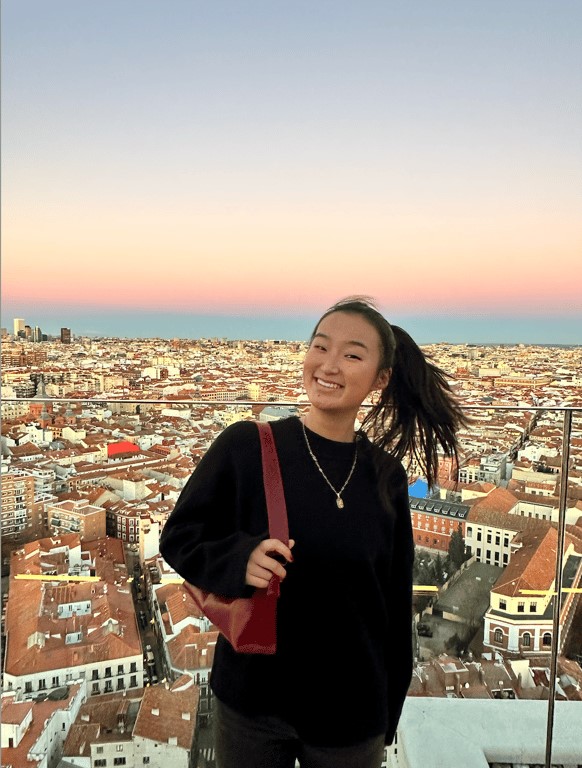
Addie Rhee
WHAT WAS YOUR FAVORITE CLASS WHILE ABROAD, AND WHY?
Sports industry and its affect on European identity because I learned so much about soccer and even got to visit the Real Madrid Santiago Bernabéu Stadium.
HOW DID YOU ENGAGE WITH THE LOCAL COMMUNITY WHILE ABROAD?
I met local students at my university during speed chats! I talked to 10 local students in Spanish and English over the period of an hour and a half. It was an incredible opportunity and I learned so much!

Adele Bey-Smith
WhAT WAS YOUR FAVORITE STUDY ABROAD CLASS, AND WHY?
One I loved negotiations. The professor was great and enthusiastic. I also loved how interactive it was and it was a class I was excited to go to.
HOW DID YOU ENGAGE WITH THE LOCAL COMMUNITY WHILE ABROAD?
I tried my best to eat at local restaurants and go to local shops.
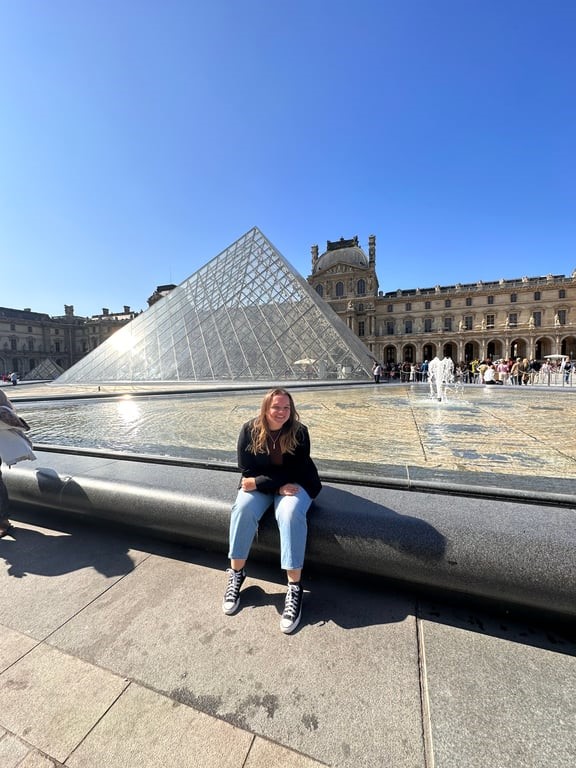
Adriana Kelley
what's one story or important aspect you always share about your time abroad?
I'll always tell people about the weekend trip to Loire Valley and all of the beautiful castles that we toured.
how did you engage with the local community while abroad?
I went to many museums to learn the history of the city and I enjoyed spending time outside walking the streets and seeing how people went about their days.
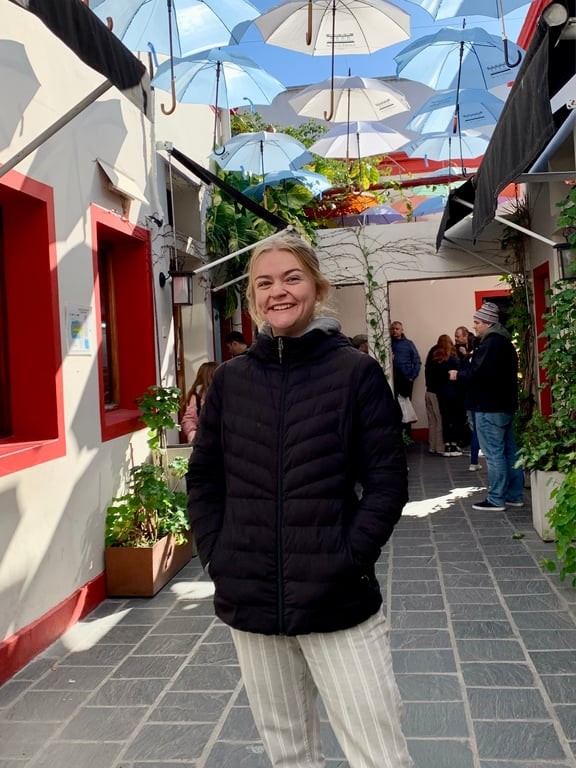
Alexi Ringler
What's one story or important aspect you always share about your time abroad?
Your host family really becomes your family. My host mom (and her two cats) made me feel completely comfortable and at home in Buenos Aires. She suggested what I could do after school to explore the city and ways to adventure both within and outside of Argentina. She helped me hone my Spanish tremendously and was so patient with me. I'm thankful for her beyond words. We're still in contact to this day and often exchanges messages of well wishes and share study abroad stories!
if you could pick another cea capa program (besides yours) which one would it be and why?I'd love to study abroad in Costa Rica with CEA CAPA! I'm eager to become fluent in Spanish and Costa Rica would allow me to connect deeper with the language and broaden my knowledge of different Spanish accents and dialects.
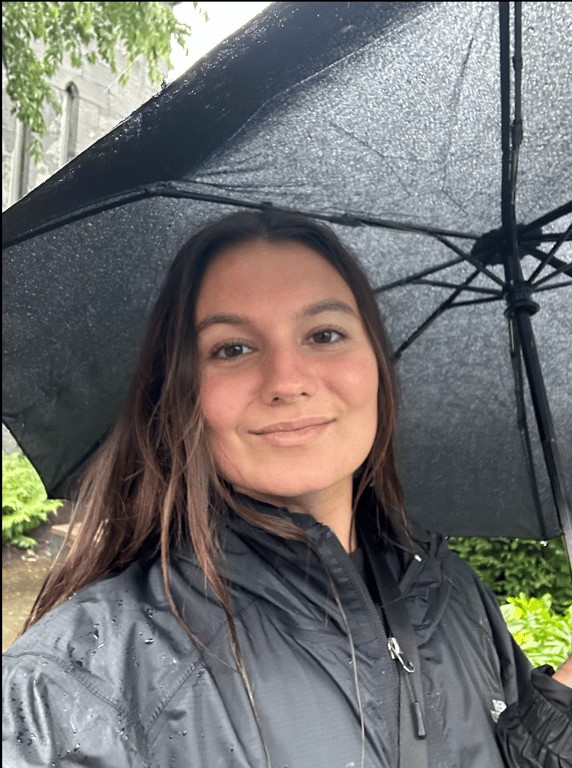
Alexis Di Stefano
if you could pick another cea capa program (besides yours) which one would it be and why?
I'd choose Cape Town, South Africa. I traveled to 12 European countries in the semester I studied abroad in Spain, and I'd love to explore the African continent, experiencing the different cultures that encompass it.
what's one thing about cea capa you think everyone should know?
CEA CAPA bridges the outside world to traditional learning environments, recognizing that learning is best done both inside and outside of the classroom. They give us as students many opportunities to go on study abroad excursions and travel on the weekends with less coursework than most people expect. Their courses exemplify the learning goals by doing strategy, ideal for Cal Poly students.
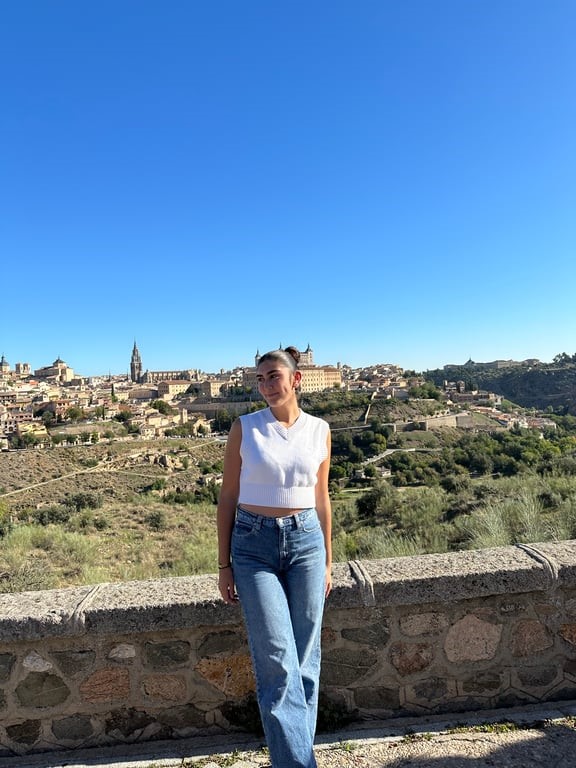
Alexis Pena
WHAT'S ONE THING ABOUT CEA CAPA YOU THINK EVERYONE SHOULD KNOW?
I think everyone should know how much CEA CAPA helps before you leave. All of the pre-departure meetings were very helpful and they really made the experience as smooth as possible.
IF YOU COULD PICK ANOTHER CEA CAPA PROGRAM (BESIDES YOURS) WHICH ONE WOULD IT BE AND WHY?
If I could pick another CEA CAPA program, I'd love to go to London, England. I've always wanted to visit and since I have some family from there, it'd be amazing to see them and have them show me around. I didn't get the chance to visit there during my time abroad and I'd love to visit it some time.
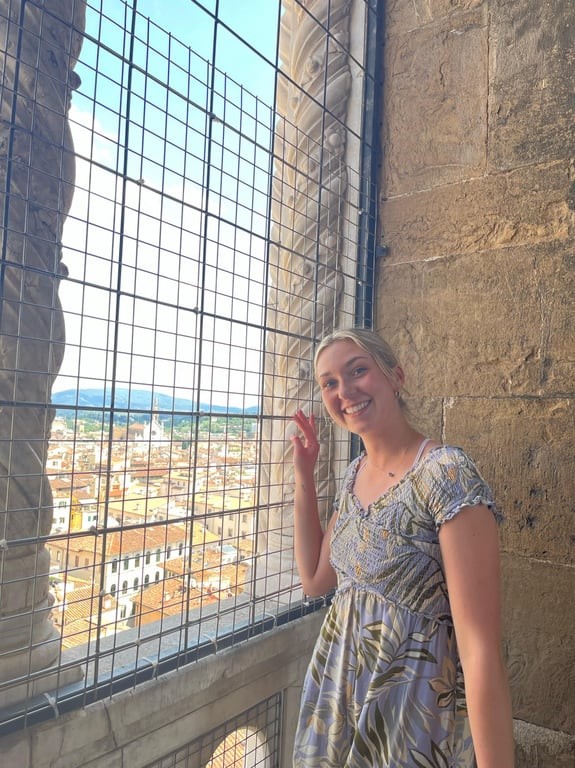
Alison Haskell
what's one story or important aspect you always share about your time abroad?
One important aspect of my time abroad was embracing the newness of everything and approaching every day as a new adventure. Whether it was going to a different location for class, visiting a new museum, or finding a new cafè to study in, each day holds a new adventure. Although it can be a lot of transition at once, accepting the newness and even seeking further to find new opportunities fueled the excitement throughout my time abroad.
how did you engage with the local community while abroad?
One of my favorite ways to engage with local community while abroad was going to a local cafe around the corner from my apartment. The cafe owner became a good friend to my roommates and I, and he helped us to discover many things that Rome had to offer that we never would've known without the help of a local! Going to the cafè for coffee in the morning, or for an aperitif in the evening was the best way to meet Roman locals, engage in Italian culture, try new foods, and make friends!
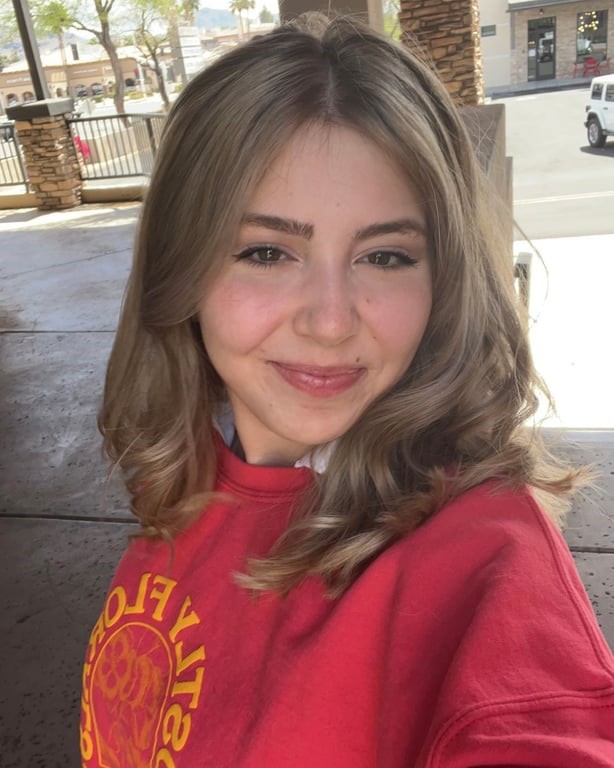
Ally Koeppel
HOW DID YOU ENGAGE WITH THE LOCAL COMMUNITY WHILE ABROAD?
I was constantly walking around, exploring, trying new foods, and finding my favorite places to frequent! I'm a big fan of art and literature, so Florence had an excess of locales that I was interested in. I loved talking to people and hearing what they were passionate about and what they loved about Florence.
WHAT'S ONE STORY YOU ALWAYS SHARE ABOUT YOUR TIME ABROAD?
I always tell people how amazing it was constantly being surrounded by history and art. Coming back to the U.S., it really makes you realize just how deep the European roots go, especially in Florence! I noticed something new, yet old, every day, and there were endless stories told by everything and everyone around me.
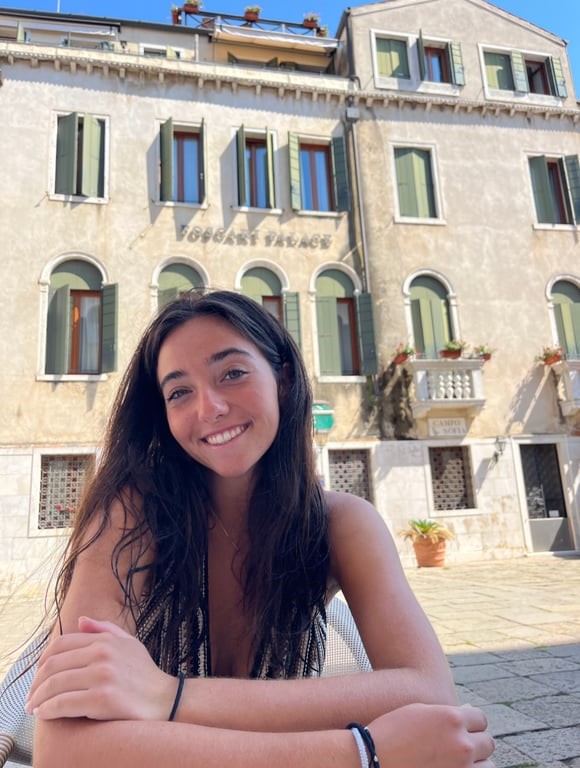
Alyse Applegate
Why was your cea capa program the right fit for you?
My Prague study abroad program was the right fit for me because it was in central Europe, allowing me to travel to many different countries! It was also affordable allowing me to fund my explorations. It was a beautiful city with so much to do.
What was your favorite class while Abroad, and why?
My favorite class abroad was The Golden City of Prague: Past & Present. This class took us all around Prague to explore all the museums. I learned so much by seeing everything in person, and I walked away knowing more about Prague than I ever imagined. Also, my teacher was so kind and took us out to lunch on the last day of class!
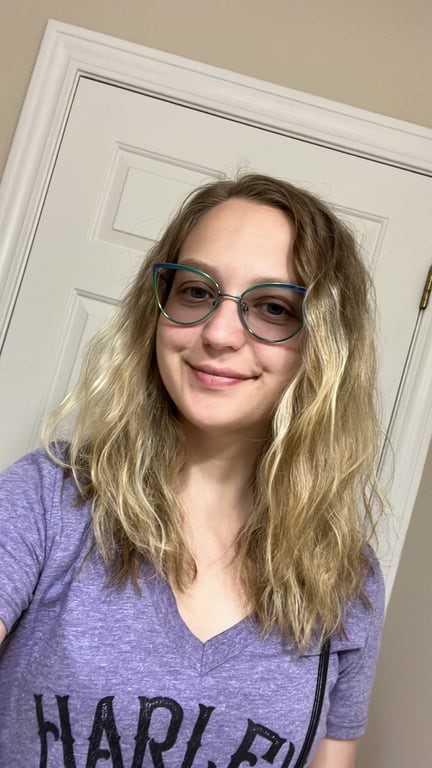
Alyssa Pascoe
WhAT was your favorite class while abroad, and why?
I took a class called "The Golden City of Prague," which was essentially an art history class. This was my favorite class because not only was the content interesting, but we also went out to visit sites we learned about in lecture. We went on field trips to museums, churches, synagogues, and other architecturally important buildings. I learned a lot and had a blast at the same time.
HOW did you engage with the local community while abroad?
I went to local restaurants away from touristy areas as well as a couple national events. One of those was Jan Hus Day, where everyone went to the Old Town Square and left a wreath on the statue of Jan Hus. I also went on some of the excursions offered by CEA CAPA to other small towns in the Czech Republic.
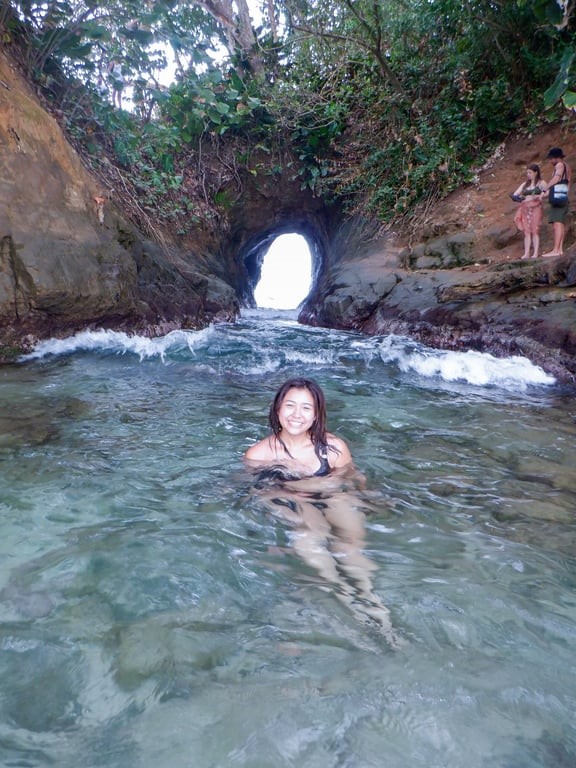
Alyssa Tsing
WHAT WAS YOUR FAVORITE CLASS WHILE ABROAD, AND WHY?
My favorite class abroad would have to be Tropical Botany. In this course, I learned about the different plants in Costa Rica and their practical uses. We had a herbalism workshop, which aligns with my knowledge of Traditional Chinese Medicine.
HOW DID YOU ENGAGE WITH THE LOCAL COMMUNITY WHILE ABROAD?
While studying abroad I attended a local church that spoke Mandarin and Spanish. There I met locals that took me out to see beautiful sights around and in San José.
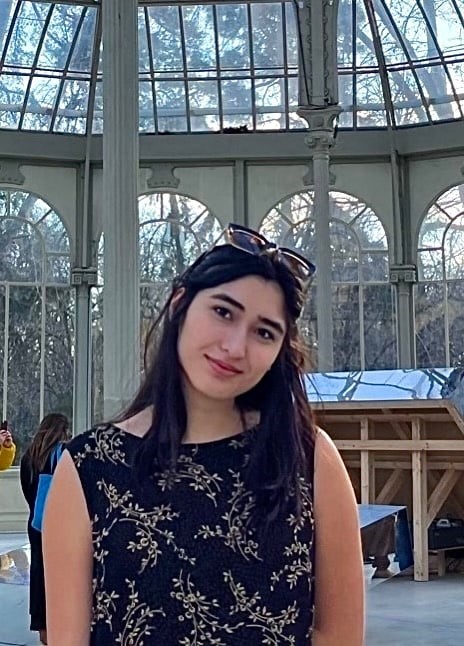
Amalia Nichols
how did you engage with the local community while abroad?
I engaged with the local community through my internship abroad. I really got to know my coworkers and got to see Madrid through their eyes and experience. Additionally, I tried to engage with the people I encountered during my day-to-day. I'd try to make small-talk at shops, just to immerse myself in the community.
what was your favorite class while abroad, and why?
I loved Sports and Culture in Contemporary Spain. I've always loved soccer, and played it growing up, so it was interesting to see how sports, especially soccer for Spain, could shape politics and culture. The field trips to Civitas Metropolitano, Santiago Bernabeu, and Plaza del Toro were so cool, and I probably wouldn't experience them otherwise. I'd love to take it again now with how the Spanish women's team is doing in the World Cup.
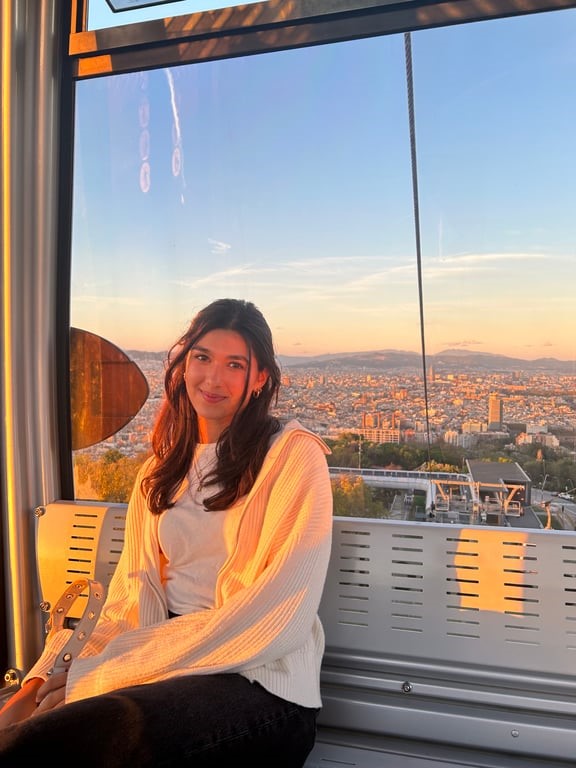
Amelia Kaftan
HOW DID YOU ENGAGE WITH THE LOCAL COMMUNITY WHILE ABROAD?
I engaged with the local community when I studied abroad in various ways. I attended many festivals and events going on throughout the city. This was a very fun way to meet local people and to be immersed more in the culture. I also struck up conversation with many different people while waiting in line places or going out to eat. I really enjoyed interacting with the local community in Barcelona.
WHAT WAS YOUR FAVORITE CLASS WHILE ABROAD, AND WHY?
My favorite class that I took while studying abroad was Spanish Civilization and Culture. I didn't really enjoy learning about history until I went abroad. Taking this course was really cool as everything I learned I saw first hand while walking down the street or looking at a historical monument. Ultimately, it was very interesting learning about the city and country I studied in.
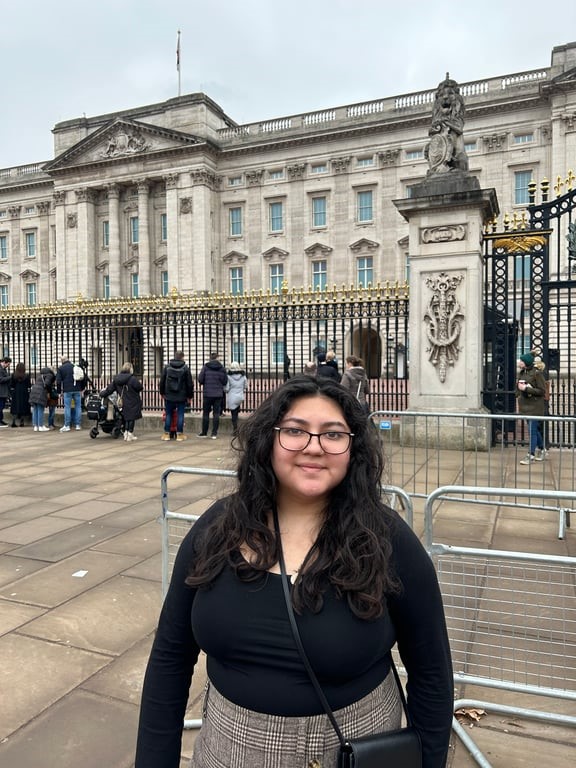
Anastasia Hernandez
what was your favorite class while abroad, and why?
My favorite class was Differential Equations, I liked this class because the local culture and history was taught during this class.
what's one story or important aspect you always share about your time abroad?
Go abroad with no expectations!! By going in with an open mind, you can find new experiences and enjoy your time abroad.
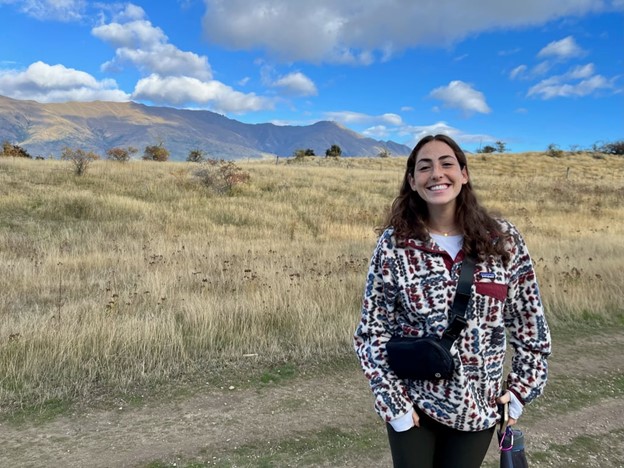
Andie Pines
WHAT'S ONE STORY OR IMPORTANT ASPECT YOU ALWAYS SHARE ABOUT YOUR TIME ABROAD?
I always highlight Sydney's "work to live" approach to life. I found it to be a large reason I felt so happy and free abroad, and the full-time residents seemed to feel that too. Before 9 a.m., you'll find the beaches packed with surfers, coffee shops crowded with friends, and the streets busy with morning walkers. At 5 p.m., work lets out and the pubs, beaches, and restaurants are flooded again. You work to live, rather than living to work like we often do in the U.S.
HOW DID YOU ENGAGE WITH THE LOCAL COMMUNITY WHILE ABROAD?
I joined a gym! This introduced me to people of different ages, backgrounds, and interests in Australia. I'm still in touch with many of my gym friends from abroad.

Angela Passalacqua
what was your favorite class while abroad and why?
International Criminal Justice. Since I studied abroad in Amsterdam, I visited The International Criminal Court which is impossible to do if I was anywhere else.
what's one story or important aspect you always tell people from your time abroad?
I truly met my best friends when I studied abroad with CEA CAPA. We still talk all the time and I'm so thankful that my study abroad program led me to them. We're all from different states and have different backgrounds but I truly felt like I met my soulmates in best friend form!
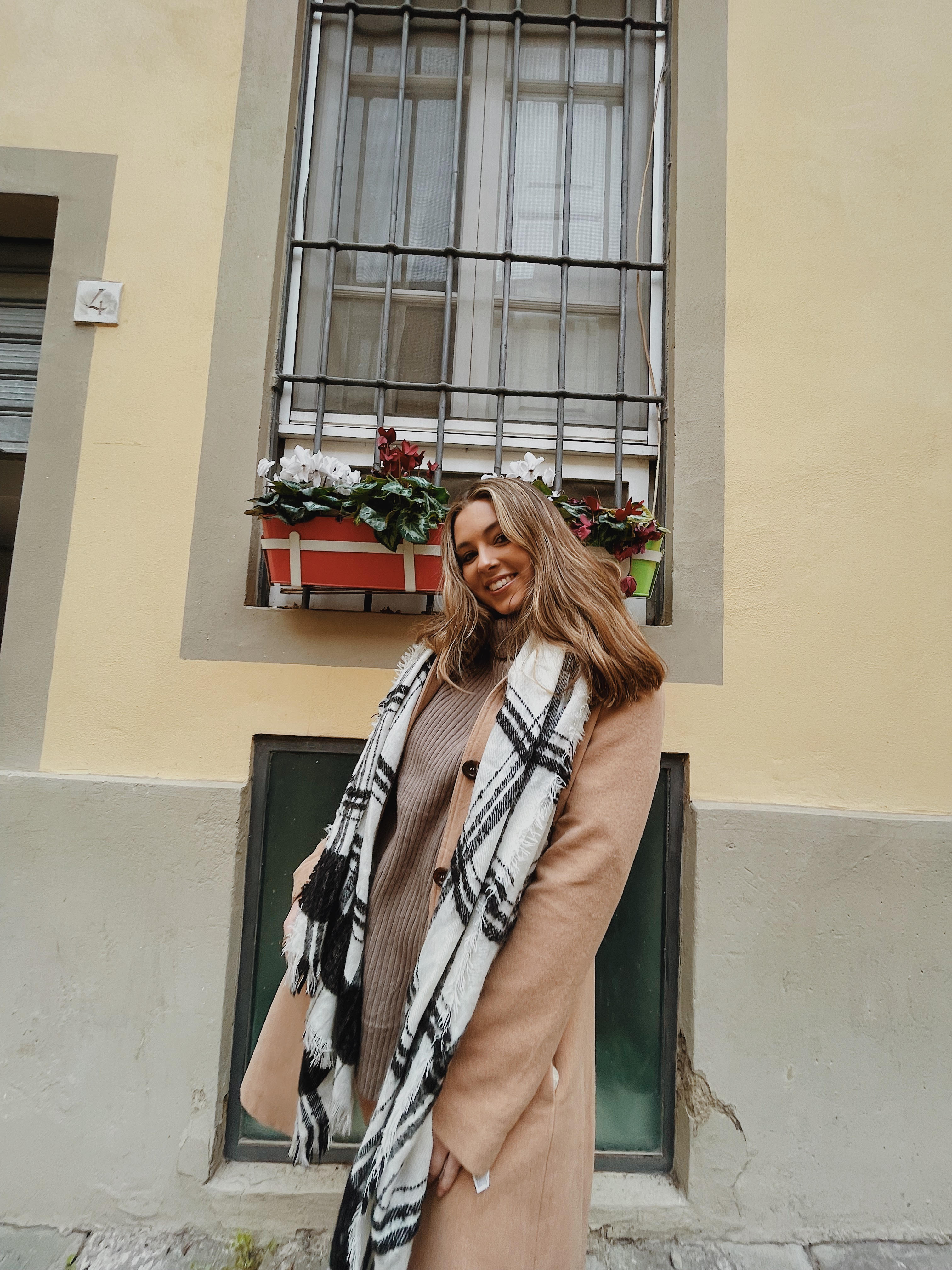
Anna Aman
WHAT WAS YOUR FAVORITE CLASS WHILE ABROAD, AND WHY?
Most of our classes were based on experiences like climbing over 300 stairs in the Duomo or going to Pisa and Lucca to explore the cities. One class I took that was super fun was the wine class. We learned about all types of wine and where they are from. We also learned how to pair food with different wines and how to properly taste wine like an Italian.
HOW DID YOU ENGAGE WITH THE LOCAL COMMUNITY WHILE ABROAD?
While abroad we immersed ourselves into the Tuscan culture by going to wineries, olive groves, restaurants, and tourist attractions. We spent most of our days out and about and speaking to the people of Florence. Some of my favorite parts were going to a gelateria and learning how they make their delicious gelato and making a traditional Italian dish in a cooking class.
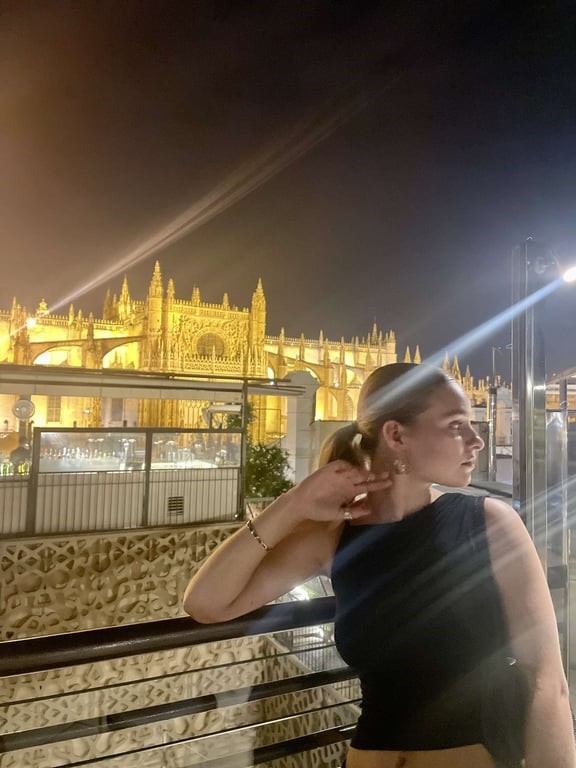
Annie Davis
WHY WAS YOUR CEA CAPA PROGRAM THE RIGHT FIT FOR YOU?
Studying abroad with CEA CAPA in Sevilla allowed me to immerse myself in the Spanish language and in Spanish culture on a daily basis. The classes I took were relevant to my everyday experience abroad, and my program put an emphasis on education through experience.
IF YOU COULD PICK ANOTHER CEA CAPA PROGRAM (BESIDES YOURS) WHICH ONE WOULD IT BE AND WHY?
I would pick Buenos Aires, Argentina. I have always wanted to visit South America, especially Argentina. I am particularly drawn to large cities, and I'm fascinated with the arts and culture in Buenos Aires!
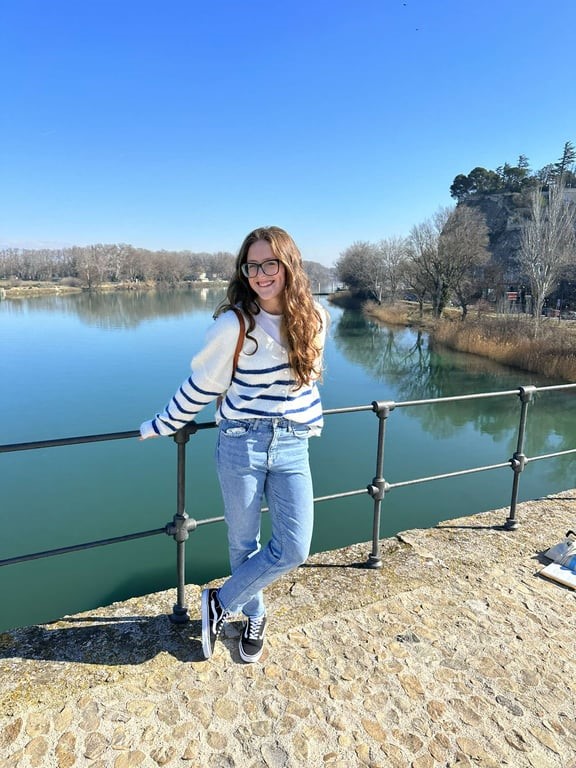
Annika Sutter
How did you engage with the local community while abroad?
My favorite way of engaging with the community abroad was going to various restaurants recommended to me by my host family. It really helped me feel like a local and get off the beaten path, while also helping me engage in the local food culture! I discovered so many awesome dishes this way!
What was your favorite class while abroad, and why?
My study abroad experience was a little different than the traditional. I only had one class and I was abroad for a month, so I guess my favorite class was my conversations and culture class! We did so much, in and out of the classroom. Part of the class was going on day trip or cultural visits, and I learned a lot about French history and culture over the course of the month, while also improving my French language skills on the daily.

Austin Maeby
what was your favorite class while abroad, and why?
I loved my photography class even though I still will never understand why art professors are so picky I loved the class. We would go out on field trips to different markets and got to see so much more of Costa Rica. Taking photography gave me a deeper dive into the culture. I feel like I got a better experience then everyone else because of it.
what's one story or important aspect you always share about your time abroad?
Don't be scared to travel alone. I knew no one leaving my airport and came back with eight more friends. Don't be scared to travel because you'll find your people.
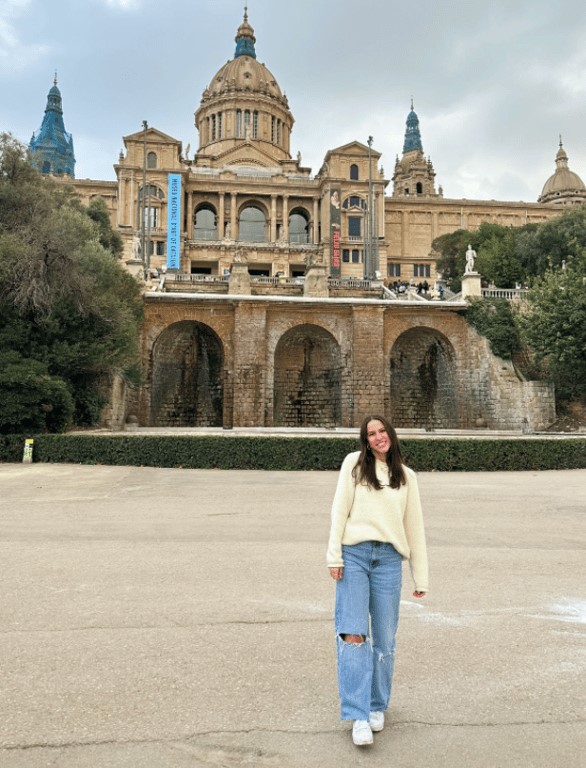
Ava Manelis
what's one story or important aspect you always share about your time abroad?
The months that I studied abroad and traveled the world, I visited 11 countries in four months, with my best friends!
how did you engage with the local community while abroad?
I got coffee or meals with Spanish locals throughout my time abroad and interacted with and learned from my teachers, who all lived in Spain and other places in Europe throughout their lives.
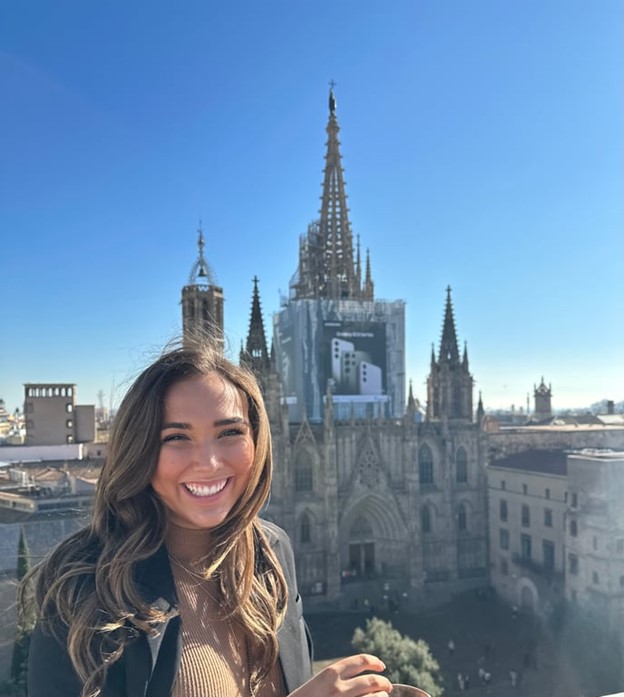
Avery Thompson
what was your favorite class while abroad, and why?
My favorite class was International Finance. As a finance major with a passion for intercultural communication, I feel as if this was the perfect combination of my passions and interests. I learned so much about international economies, and I'm thrilled that I did this while in an international setting.
how did you engage with the local community while abroad?
While studying abroad in Barcelona, I engaged with the community through doing more local-based activities to meet as many locals people as possible. This ranged from Sunday farmers markets, hole-in-the-wall restaurants, or even doing an all-Spanish yoga lesson in Park Ciutadella. These experiences all contributed to learning and speaking to the community of Barcelona, and it was the most rewarding experience.
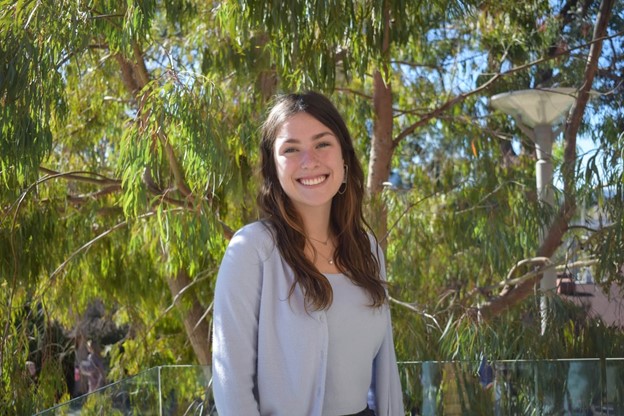
Bailey Kulesza
My favorite class abroad was actually the hardest class that Seville, Spain had to offer: Architecture and Painting in Sevilla. This class was needless to say, a difficult one coming from a Communication Studies major. However, this course pushed me to study and actually retain knowledge about the area that surrounded me everyday. It unfortunately ended earlier than all of my other classes but, we never stopped grinding and so there was never room to slack, or else it would catch up to you real quick.

Benjamin Schaffer
How did you engage with the local community while abroad?
I attended events run and largely consumed my Madrileños. For example, on Sundays, I went to Madrid's biggest thrift market, El Rastro, and interacted with the vendors and tried to speak with them and ask them questions about what they sold. Also, I interacted with my taxi drivers, waiters, etc. and asked for recommendations on their favorite parts of Madrid.
what was your favorite class while abroad, and why?
My favorite class abroad was my modern art and architecture in Spain class. It is great to learn about a cultural aspect of the city that you are studying in. We also got to have some hands-on learning and go to famous museums in Madrid to study the art in person which was an amazing experience.
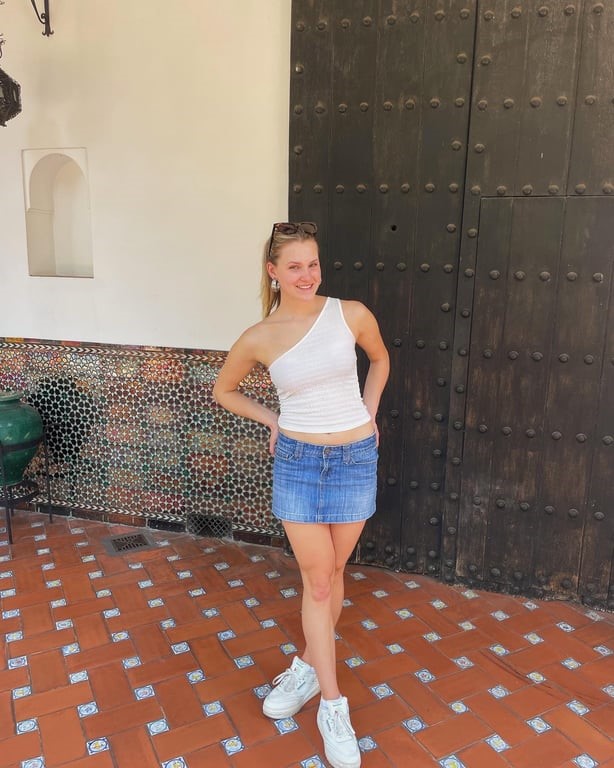
Bridget Murphy
whY WAS YOUR CEA CAPA PROGRAM THE RIGHT FIT FOR YOU?
Buenos Aires was a great fit for me because I love the culture of Latin America and Buenos Aires is such a unique, beautiful city. I wanted to improve my Spanish, and I definitely did by going to an Argentine institution, taking classes in Spanish, and living with a host mom. I loved my host mom and met so many cool people and I also got to travel around Argentina, which has incredibly diverse landscapes.
What's one THING ABOUT CEA CAPA YOU THINK EVERYONE SHOULD KNOW?
The staff are so helpful and it's nice to connect to such an involved program when you study abroad. It helps you feel more comfortable from the start knowing you have a center with staff to welcome you and support you through any cultural shock, homesickness, or language challenges you might experience.
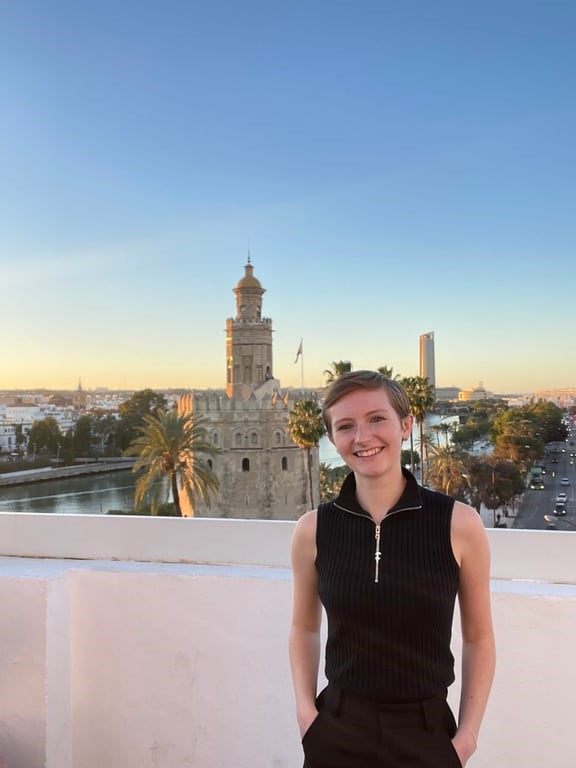
Bronwyn Geddes
HOW DID YOU ENGAGE WITH THE LOCAL COMMUNITY WHILE ABROAD?
I engaged with the local Sevilla community by attending flamenco dance lessons and city events such as Noche en Blanco and the Navidad season. The flamenco classes were especially engaging because I practiced my dancing while using my Spanish language and connecting with other students.
WHAT WAS YOUR FAVORITE CLASS WHILE ABROAD, AND WHY?
My favorite class abroad was Spanish for Business (Spanish Instruction). I loved this class because it was designed to help improve my Spanish language skills especially for business subjects. However, it ended up providing me with far more information regarding cultural phrases and customs specifically in Sevilla and Andalucia. The professor was engaging and always happy to answer student questions.
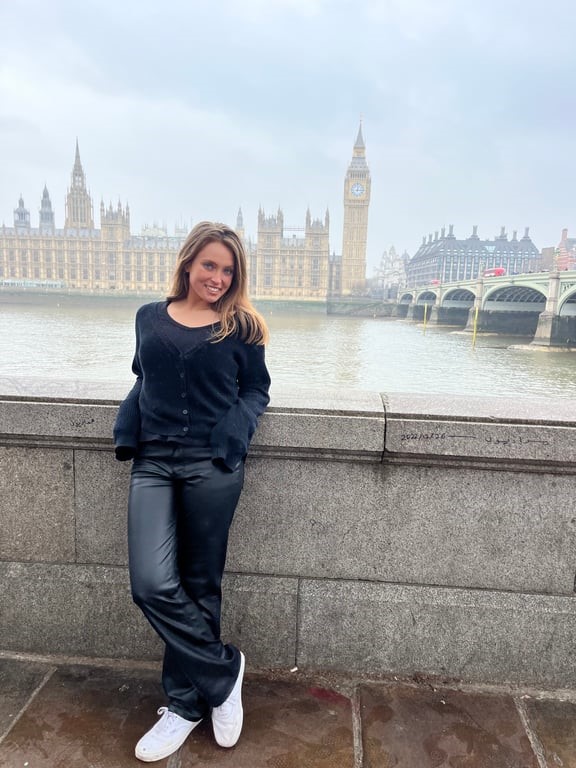
Caitlin Sullivan
WHAT WAS YOUR FAVORITE CLASS WHILE ABROAD AND WHY?
My favorite class from studying abroad was international marketing. I felt that this class really enhanced my knowledge in the international business world because we talked so much about marketing in Europe. My marketing classes back at home were always specific to U.S. markets, so it was very interesting for me learning about how differently other parts of the world work in a marketing sense.
WHAT'S ONE STORY YOU ALWAYS SHARE ABOUT YOUR TIME ABROAD?
One time when I was leaving the supermarket there was an older woman struggling to carry heavy grocery bags, so I approached her and offered her help. She accepted my help, and I carried some bags with her to her apartment a few blocks down. We spoke Spanish together and it felt like we had started a mini friendship. She was so thankful for my help, and in that moment, I felt like I really was part of the local community.
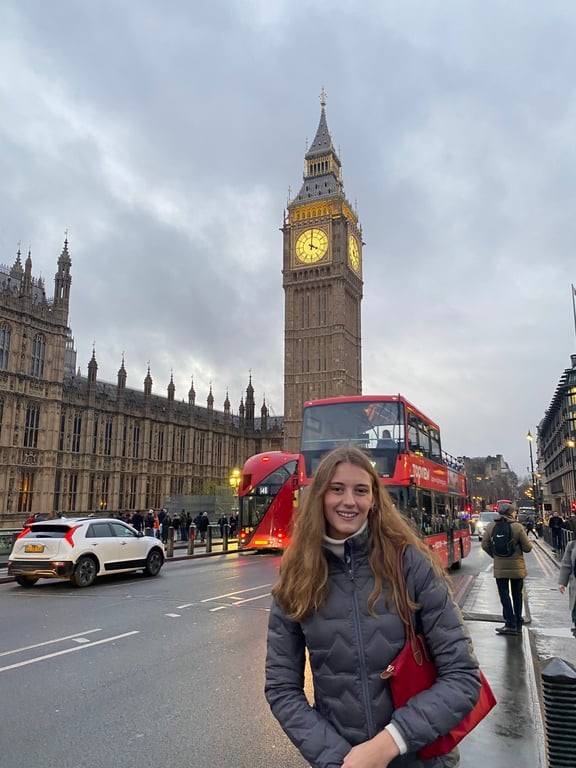
Camila Cramer
Studying abroad is a fascinating experience that'll take you out of your comfort zone. You're going to meet people from all over the world who will have a different vision of the world. This expands your horizons, positively influence your way of thinking and it'll help you grow.
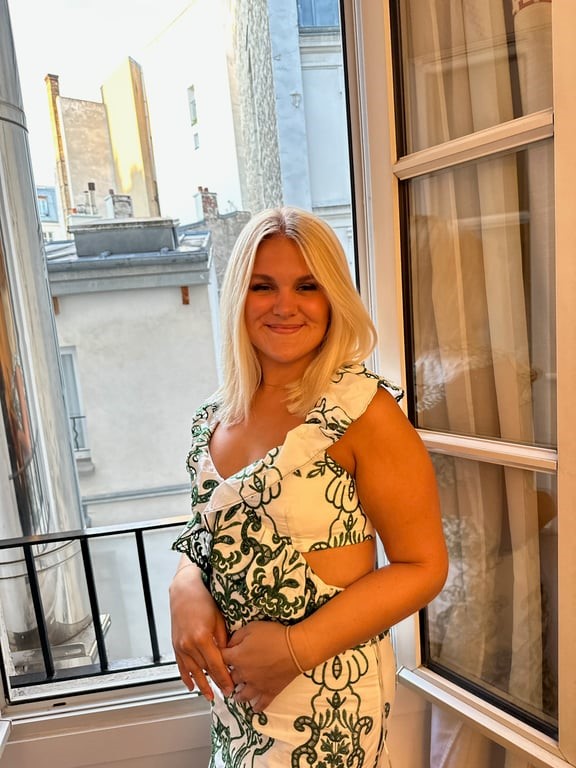
Camille Thompson
how did you engage with the local community while abroad?
While abroad I engaged with the local community everyday whether it was stopping for coffee or just an interaction on a street in Seville. By being fully emerged in the local community I experienced first hand what it meant to live abroad.
what's one story or important aspect you always share about your time abroad?
When talking about my study abroad experience, I always talk about how it was one of the most scariest decisions I've ever made. Hopping on a plane to another country, not knowing anyone going can't get more scary than that. However when I arrived to Spain, I immediately knew I made the right decision because just about everyone was in the same boat as me. The friends I made throughout my time abroad was one of the best things that ever happen to me and I'm lucky I got to experience so many things with them.

Caroline Barto
HOW DID YOU ENGAGE WITH THE LOCAL COMMUNITY ABROAD?
I took the tram to class every day, so I watched how locals communicated with one another and acted in public. Additionally, I interacted with locals through shopping at the grocery stores, restaurants, shops, and bars.
WHAT'S ONE STORY OR IMPORTANT ASPECT YOU ALWAYS SHARE ABOUT YOUR TIME ABROAD?
Going alone to study abroad, or with a small group, was the best decision I ever made for myself! I wanted an experience that was mine and not with a large group of friends. If you're striving for a personal experience, do the same!
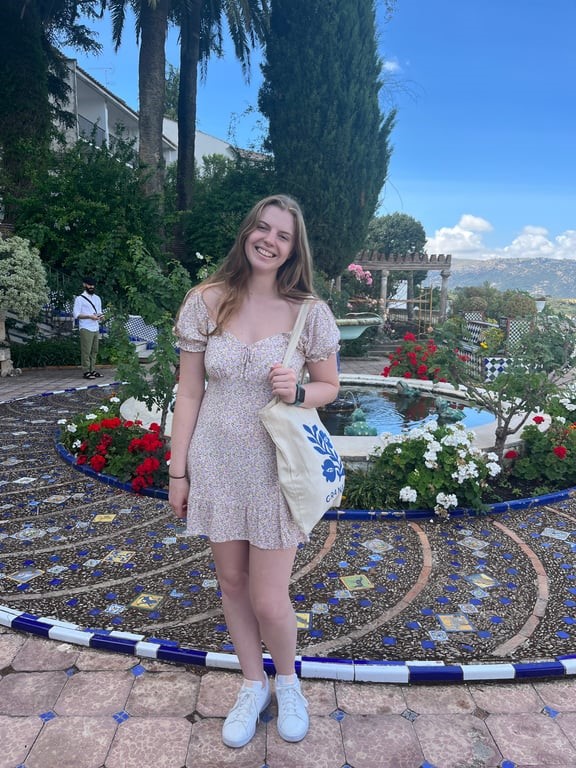
Caroline Rucker
How did you engage with the local community while abroad?
While in Granada, I lived in a residencia (dormitory). We lived alongside local students, and they were so welcoming! They taught us the ins and outs of the city's unique culture. During one of the weeks there, Corpus Christi was celebrated throughout Granada, which is the biggest festival of the year. We learned about and participated in many of the traditions, which really made me feel like part of the community.
what was your favorite class while abroad, and why?
My favorite class while abroad was my intensive Spanish language class. We were in the classroom for over 2 hours every weekday, which really helped me improve my skills. It had a large focus on conversation, and many of the grammar topics we learned were things that only native speakers typically know. This helped me feel so much more confident speaking in public while out and about in Granada!
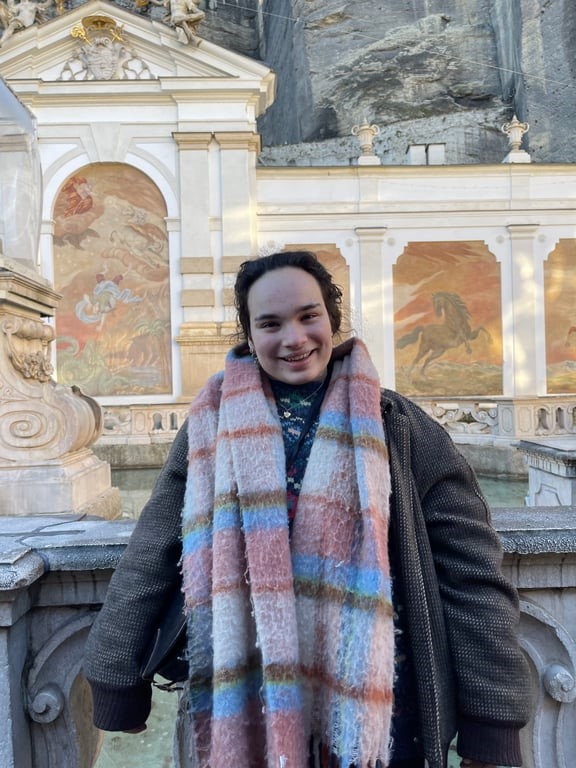
Cassie Limberakis
how did you engage with the local community while abroad?
I engaged with the local community abroad by actively speaking to locals (and sometimes making friends)! I was lucky enough to have a friend in London already, and I spent a lot of time with her friends, which was super cool. I feel super fortunate knowing that I have a community in London that I can go back to when I'm there next. One of my favorite memories with my friend Giulia was going out to dinner in Richmond on my second-to-last night in London.
what's one thing about cea capa you think everyone should know?
The onsite CEA CAPA staff are such lovely people! Don’t be a stranger to them!
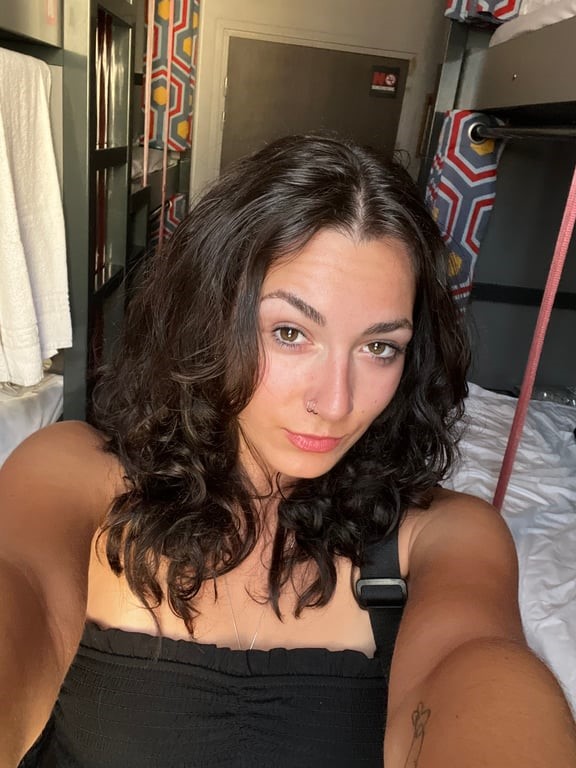
Ceci Logan
One really easy way to feel like you're engaging with the local community abroad is to find a few establishments (cafes, restaurants, bars, etc.) that you like, and try to frequent them. The employees will get to know you if you go in at similar times or days, and you'll get to know them, too. You'll get recommendations and find out more about the area once you get to know some locals! Another great way to engage in the local community is by going to local libraries: you'll see many other students and get to fit in, studying abroad alongside the locals!
WHAT'S ONE STORY OR IMPORTANT ASPECT YOU ALWAYS SHARE ABOUT YOUR TIME ABROAD?
Make the most of your time! I think it's really important to surround yourself with people who share your goals and interests. If you want to make sure you get to see lots of sights, museums, shows, and more, find people with similar interests and you can do all you want and more! BUT-- do not be afraid to do the things you want to do alone. You'll get to push your comfort zone and have a lot of really cool experiences while seeing world-class sights!
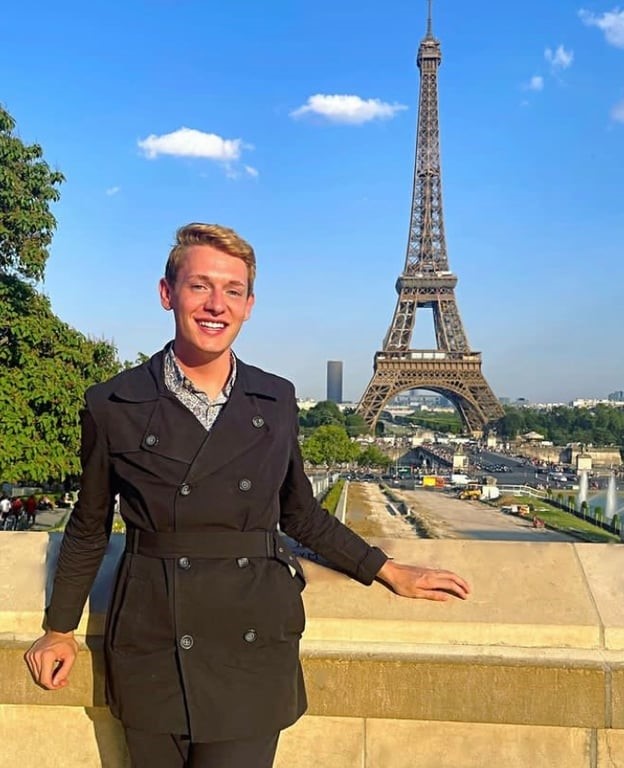
Chance Wesner
why was your CEA CAPA program the right fit for you?
It was a smaller, non touristy area of France which forced me to learn and use my French.
how did you engage with the local community while abroad?
I went to events on campus and around the community, chatted with locals every opportunity, and made friends from going to museums, restaurants, bars, etc.
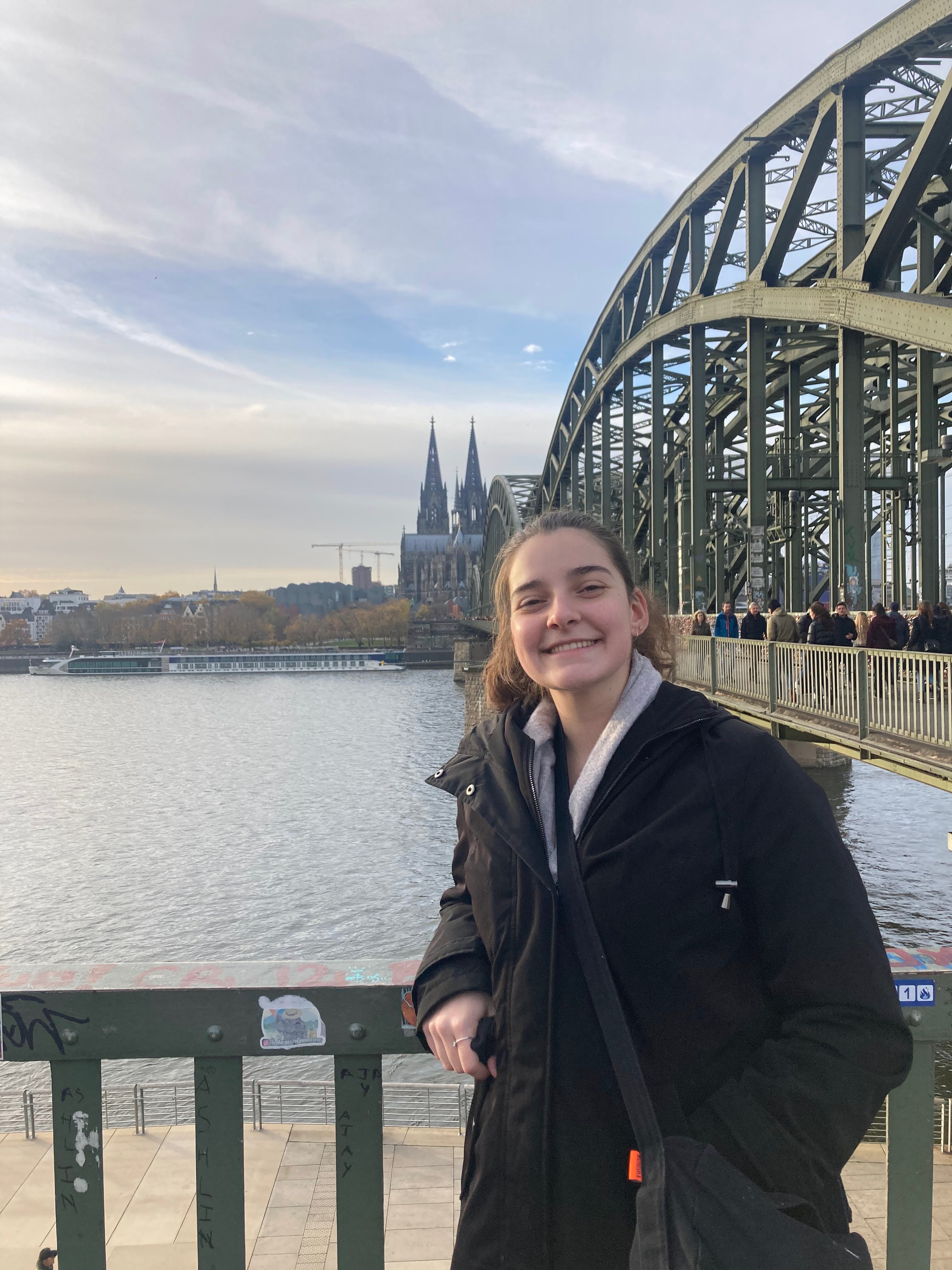
Chloe Main
WhAT is one story or important aspect you always share about your time abroad?
One thing I always talk about during my time abroad is my friends I met. I still text them almost daily. We got so close and I was glad to share this experience with them. I talked about our Thanksgiving and how we shared our culture with other international students. We did a taco night within the first week of being there and movie nights weekly. There are so many stories and adventures I can't just pick one!
I lived in apartments with other international students so I got the chance to speak with quite a few of them. In classes I also spoke with many locals and we'd get breakfast together too!

Chloe Phan
WhAT was your favorite class while abroad, and why?
I took International Marketing and it was such a cool learning experience to learn and go on local field trips. The classroom culture was so fun and supporting and made me want to learn and be involved in discussions. The people in the classroom really is what made coming to school fun because I experienced Barcelona with them within and outside of the classroom, so our relationships were stronger.
HOW did you engage with the local community while abroad?
I loved going to the local shops and restaurants to really immerse myself in the community. My friends and I actually got really close with a restaurant owner and got to be added to his "wall of fame"!
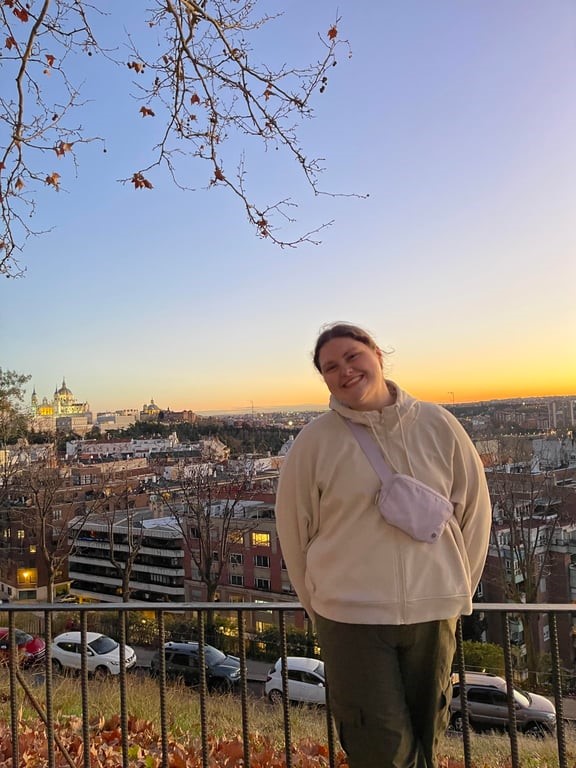
Claire O'Neill
One thing I always mention about my time abroad is how much fun all the little things were in Madrid. Walking around beautiful parks, riding the city bikes, trying new cafes and restaurants, riding the metro with friends, discovering my favorite neighborhoods, and everything in between. The city itself is so beautiful and so I just wanted to soak up as much of it as possible, whether it was the simple or more extravagant things. Almost everyday of my semester abroad was sunny and beautiful weather, so I got really lucky in that regard as well. All of these activities I mentioned contain some of my favorite memories from my host city that I will cherish forever.
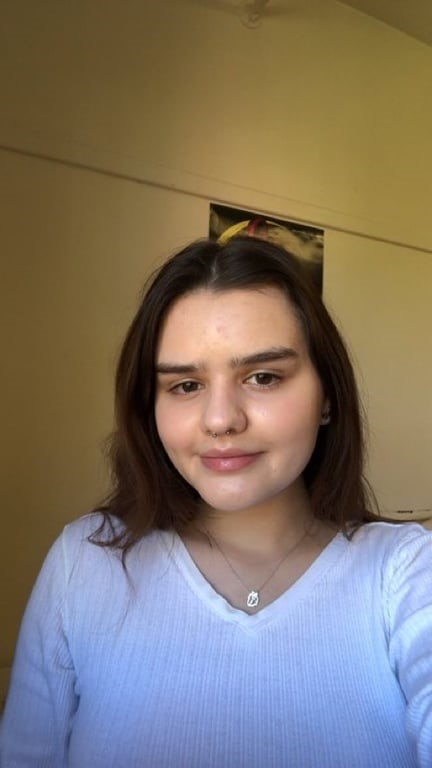
Claire Watkins
what was your favorite class while abroad, and why?
My favorite class abroad was Witchcraft and Magical Performance with Mike Punter. He's such a knowledgeable, kind, and enthusiastic professor. All the material fascinated me and the class went on a number of field studies, including a trip to Highgate Cemetery, which is the oldest Victorian Valhalla, and a reconstruction of a Mithraeum. We learned about the history of witchcraft, cults, and a number of other thrilling yet sinister subjects in an upbeat, fun environment.
how did you engage with the local community while abroad?
I engaged with the local community by eating mostly at independent and family owned restaurants, or eating street food, when I went out to eat. I also went on lots of walks to familiarize myself with the borough I lived in. Most Fridays, my friends and I went to a museum or local gallery to engage with the art in London.

Claudia Favila
what's one thing about cea capa you think everyone should know?
CEA CAPA will make sure you enjoy your time studying abroad wherever you go. They made my experience so easy throughout the whole process of applying, caring for our well-being, safety, and academics during the program, in addition to keeping up with us as alumni.
why was your cea capa program the right fit for you?
The CEA CAPA program in Alicante, Spain was the best choice I could've made. It was a bit out of my comfort zone since I'm more interested in metropolitan cities rather than living near water and beaches. But I was completely wrong, I can say that Alicante was my favorite place in Spain, mainly because its hidden beauty, weather, and not too much tourism. I felt like my lifestyle and day to day life became very similar to a local's. I loved my professors, classmates, and the University of Alicante. My program directors were the best and created a special bond with all of us in the study abroad program, it felt like a big family.
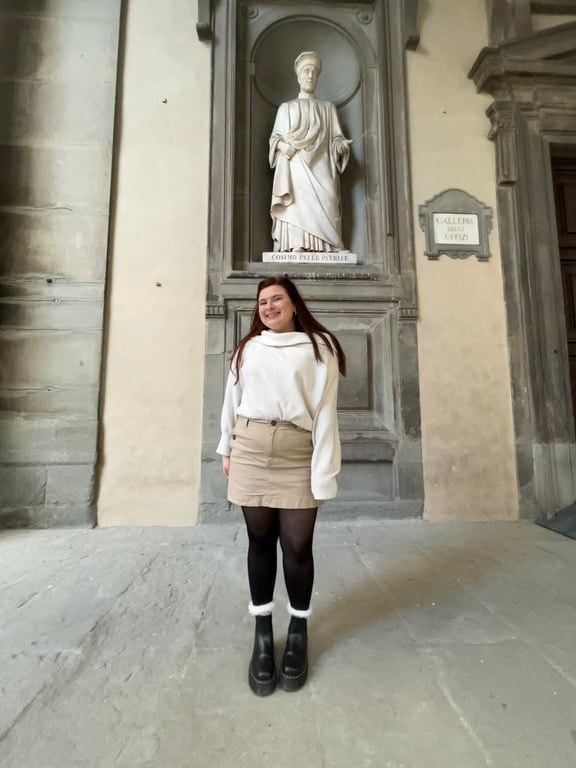
Corrine Hofmann
why was your CEA CAPA program the right fit for you?
I studied abroad in Florence, Italy and I don't believe I could've chose a better study abroad location! I loved the walkability of Florence and the ability to explore a smaller city. I lived in a 400 year old apartment and resided in a local area. By the time my four months were up in Italy, I truly felt like a local and spotted the best places for a meal and saw all that Florence offered!
what's one thing about CEA CAPA you think everyone should know?
I believe if there is one thing everyone should know about CEA CAPA is the ability to volunteer while abroad! I served as an English student teacher for second grade students for about four weeks! I loved my experience and truly believed it made my study abroad worthwhile and fulfilling for myself.
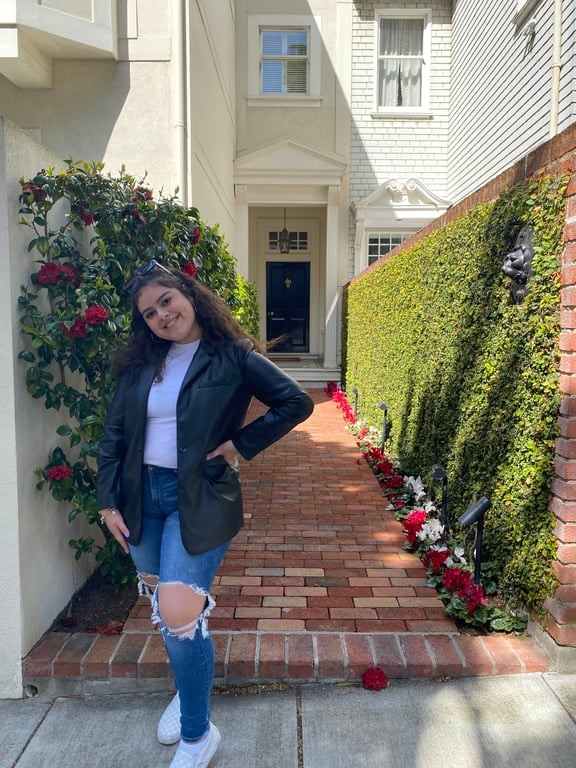
Daisy Rosales
what's one story or important aspect you always tell people about your time abroad?
It's inevitable that you'll have a blast and immediately bond with people you come across whether they're your onsite coworkers/classmates, roommates, or locals. It's a challenge yet so rewarding when you can keep in touch with them. I'm still in contact with all of my roommates from last summer and even reunited with one of them in Spain again this summer!
how did you engage with the local community while abroad?
It all starts with immersing yourself with daily events or special themed events. I recommend attending events, opening up to strangers conversing with you, and try to find commonality! If you feel like they're good company, exchange social media, and plan to attend another event together or go out to eat! I have numerous of local friends I still chat with through social media and catch up with them now that I'm back in the U.S.!
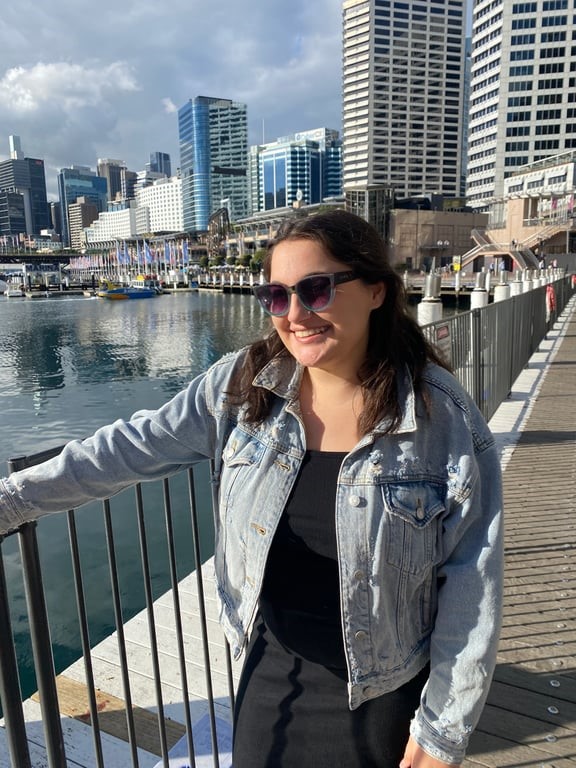
Danielle McIltrot
WHAT'S ONE STORY OR IMPORTANT ASPECT YOU ALWAYS SHARE ABOUT YOUR TIME ABROAD?
One important aspect of my time abroad that I always talk about is my international internship. I interned abroad at a travel and business publishing company and learned so many valuable skills within my intended industry. I was in a completely new area of Sydney and loved going to work. My supervisor and my colleagues were amazing and I learned so much from them, too.
WHAT WAS YOUR FAVORITE CLASS WHILE ABROAD, AND WHY?
My favorite class was "Writing the Global City: Sydney." My professor was so interesting and took us to spots around Sydney I wouldn't experience otherwise. I also learned about Sydney and Australia as a whole from a different perspective.

Elizabeth MacDougall
WHAT'S ONE STORY OR IMPORTANT ASPECT YOU ALWAYS SHARE ABOUT YOUR TIME ABROAD?
One thing I always tell people about my time abroad was the cultural exposure I experienced and the ability to travel so often. Throughout my four months abroad, I was able to travel to 20 different places (12 different countries!) and it was the best experience of my life. My favorite trip, Morocco, was an incredible cultural immersion, where I learned about its rich traditions, cuisine, and history, which opened my eyes in understanding and appreciating all that abroad has to offer and the amazing places you will see and learn about.
HOW DID YOU ENGAGE WITH THE LOCAL COMMUNITY WHILE ABROAD?
I made a good effort in engaging with my local community while in Barcelona. Whether it was just sparking conversation with locals around me, or attending cooking classes, I found that engaging with the local community gave me a deeper connection to the place and people. I built a network of friendships, supported local businesses, and participated in local events like festivals. I'm forever grateful of the local friends I made while studying abroad and will cherish it for a lifetime!
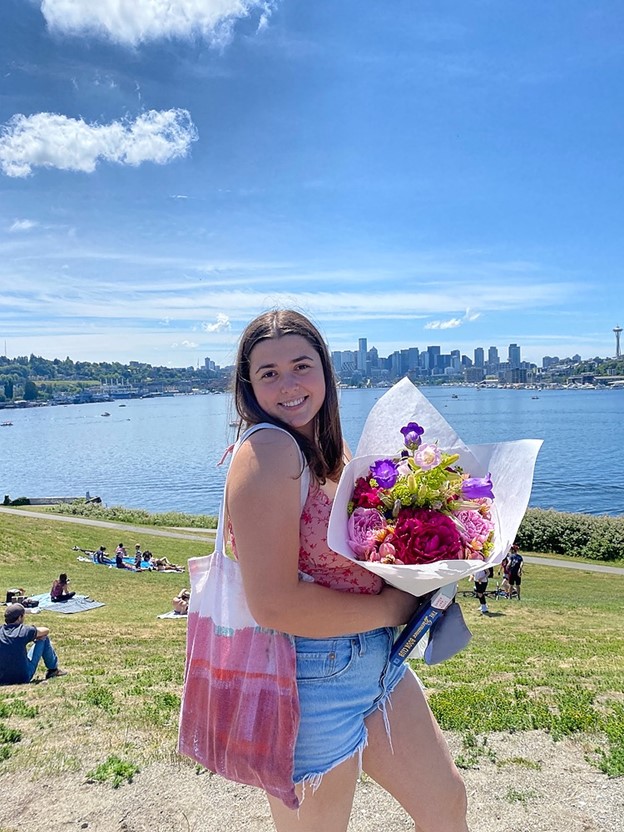
Elle Segrest
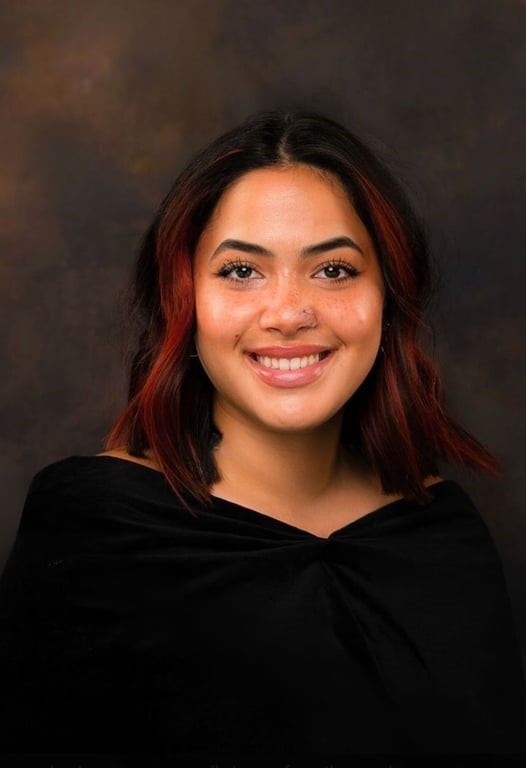
Emily Budhai
what's one thing about cea capa you think everyone should know?
There's something for everyone! Don't close the door on studying abroad because CEA CAPA has so many opportunities to pursue!
why was your cea capa program the right fit for you?
It provided a perfect balance of support but also room to explore on my own. I felt that if I needed anything, onsite staff in Costa Rica would support me, but wanted me to grow!
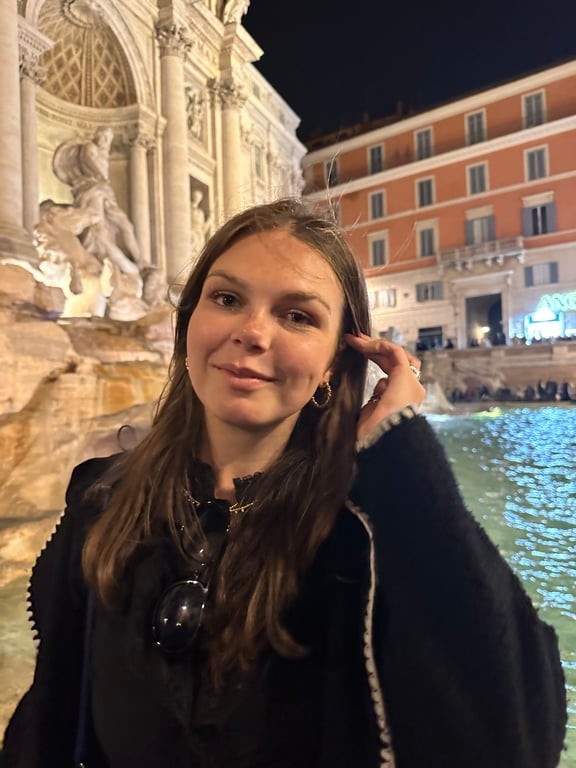
Emily Gates
WHAT WAS YOUR FAVORITE CLASS WHILE ABROAD, AND WHY?
The Wine in Spain class was the best experience. The professor (Jose Carlos Saquete) was extremely knowledgeable about wine and food in Spain, and gave me the best restaurant recommendations when I asked for some. He made the class so much fun and I truly enjoy wine so much more, understanding how to taste and drink it.
WHAT'S ONE STORY OR IMPORTANT ASPECT YOU ALWAYS SHARE ABOUT YOUR TIME ABROAD?
I say that I ate the best I've ever eaten in my life. The restaurant scene in Seville was so much fun to explore, as they hosted a variety of different cuisines. There were no shortages of wonderful traditional Spanish restaurants, the freshest seafood, but also some really fun more modern options.
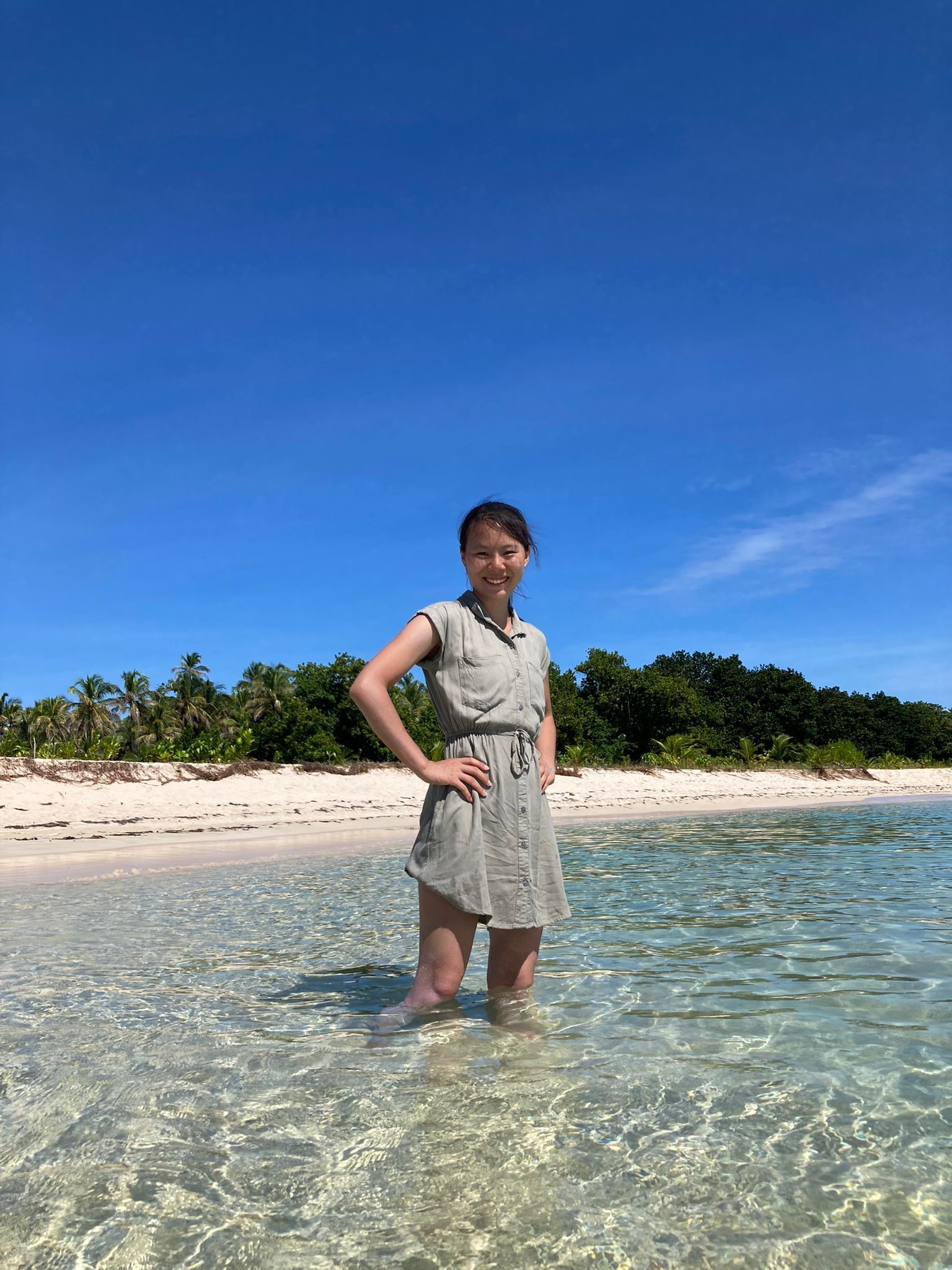
Emily Hung
how did you engage with the local community while abroad?
I lived in a homestay, so I got to see Costa Rican culture through my host mom's life. She taught us their traditions, the types of food they typically eat, and the sports culture (especially since Costa Rica qualified and played in the World Cup when I was there). CEA CAPA also took us on excursions to different areas of San Jose, such as the National Theater, popular bars, and the Jade Museum.
what is one story or important aspect you always share about your time abroad?
When CEA CAPA took us on a trip to Panama. It was my first time riding in a boat out in the sea, seeing dolphins up close, the most beautiful beaches and sharks. I had never seen water so clear before and fish that would come up and nibble on my feet.

Emma Hahn
HOW DID YOU ENGAGE WITH THE LOCAL COMMUNITY ABROAD?
Engaging with the local community was the best way I avoided feeling like an outsider in a new country. I lived with a host family who made me feel like I had a local community to come home to every day. I spent as much free time as I could to explore Madrid. I also signed up for a gym membership the first week I arrived and created a gym community with the staff at the front desk.
WHAT'S ONE STORY OR IMPORTANT ASPECT YOU ALWAYS SHARE ABOUT YOUR TIME ABROAD?
I always recommend saying yes to every opportunity while studying abroad. Putting yourself out there to study abroad is already a big milestone; with that being said, you should make the most of every second. Saying yes to as much as I could led me to experiences like spending 36 hours in Valenica without hotel accommodations, playing pickleball with a professor, and building lifelong friendships.
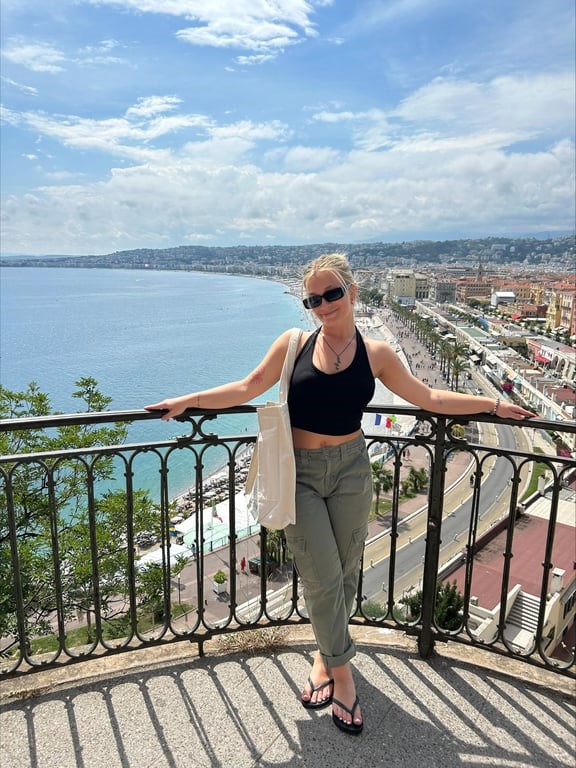
Emma Primrose
what's one story or important aspect you always tell people about your time abroad?
I've dreamed of seeing the Eiffel Tower since I was a little girl. I think I happy cried about four different times while my day in Paris because I was so amazed and humbled that I fulfilled a childhood dream!.
how did you engage with the local community while abroad?
I went to local restaurants, shops, and bars with other students in my program to indulge in the culture and community in France!
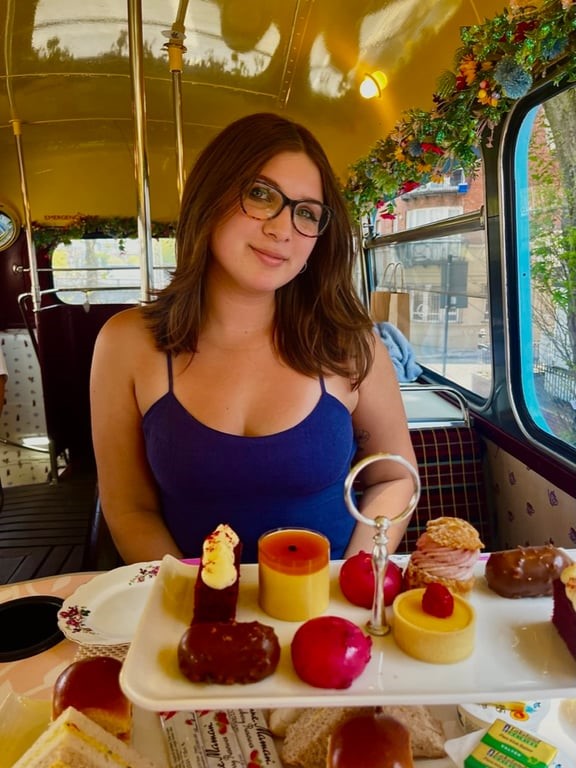
Emma Rossow
how did you engage with the local community while abroad?
While studying abroad, I had the best time engaging with the community by going to the less popular areas of there city where the locals hang out. My friends and I met so many wonderful people who gave us recommendations on what else to do during our time in Dublin. We also learned more about their culture through the weekend trips we went on both with CEA CAPA and the two we did by ourselves. Visiting such historical sites, such as the Blarney Castle, we learned so much more about what makes their home so special.
if you could pick another cea capa program (besides yours) which one would it be and why?
I met some of the most amazing people in my CEA CAPA study abroad program and they made the experience so much better. We constantly found activities to do after class and exploring the city, leaving us never bored. I think it's essential to talk to the people in your abroad program as soon as you get there or even before because that's what'll make the experience better in the end.
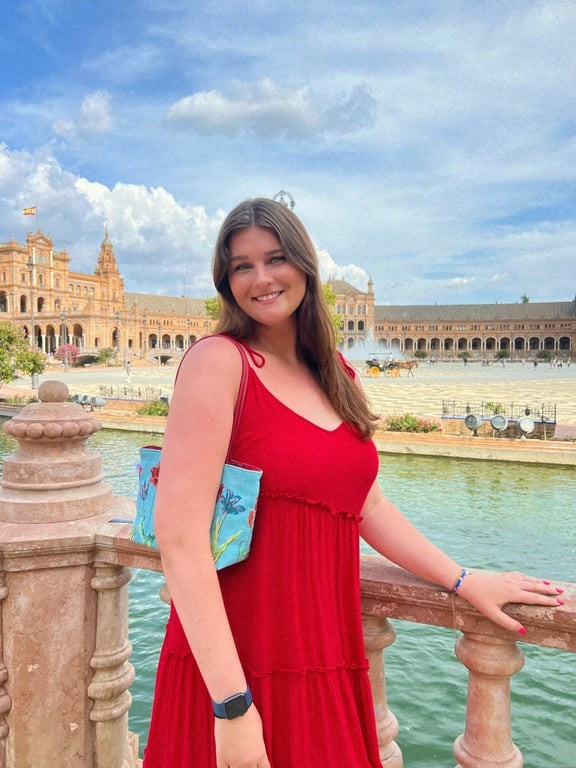
Emma Simpson
what's one story or important aspect you always share about your time abroad?
I always like to talk about the two day trip we took to Granada as a group because it was so much fun touring the city, but also have the freedom to go out, shop, etc, with the friends you make while abroad. A lot happened within this trip, and I like talking about it because it goes to show the spontaneous experiences you'll have that you never thought you would while studying abroad!
how did you engage with the local community while abroad?
I engaged with the local community while abroad by visiting local restaurants, going to the monuments and structures that hold a lot of history, and communicating with the locals to expand my knowledge of their language. All of these experiences were incredible and gave me the opportunity to learn more about Sevilla.
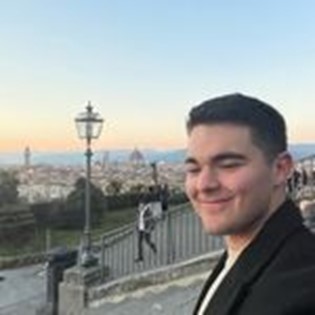
Eric Guillot II
WHAT'S ONE THING ABOUT CEA CAPA YOU THINK EVERYONE SHOULD KNOW?
One thing everyone should know about CEA CAPA is its commitment to providing students with a holistic educational experience. Beyond just classroom learning, the program emphasizes cultural immersion, ensuring that students not only learn about their host country's history and culture but also live it.
HOW DID YOU ENGAGE WITH THE LOCAL COMMUNITY WHILE ABROAD?
I attended local festivals where I experienced traditional Catalan culture, music, and dance. Participating in these events provided a firsthand experience of the city's rich traditions.
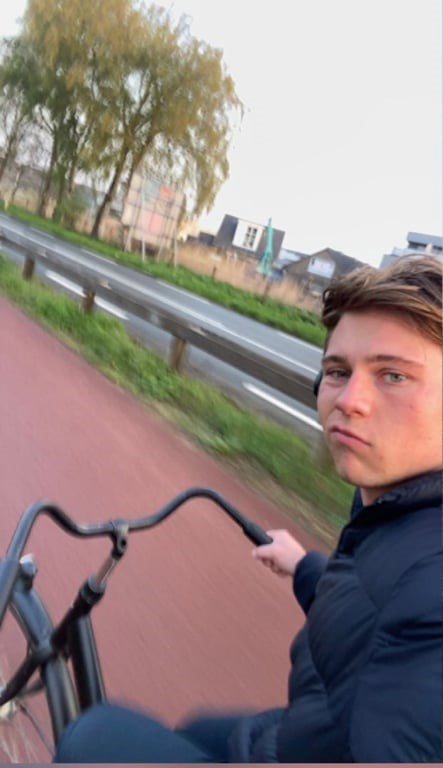
Evan Velline
What's one story or important aspect you always tell people about your time abroad?
I always tell people how easy it was to find great friends abroad. Everyone in my program came into it without knowing anyone else, so we were all eager to make friends with each other. It made my time abroad so enjoyable being with other like minded students! Also CEA CAPA did a wonderful job organizing activities for us to get oriented to the city when we arrived and throughout the semester. I was really impressed with the onsite team in Amsterdam!
How did you engage with the local community while abroad?
In Amsterdam I rode my bike everywhere I went. The Dutch built a biking utopia with hundreds of kilometers of dedicated bike paths, and taking advantage of that made me feel like I got the most out of my time abroad. Commuting to class everyday with hundreds of other cyclists made me feel like I belonged in the city. Once the weather got warmer, I frequented music festivals in and around the city of Amsterdam which allowed me to meet and have fun with with the very warm and welcoming Dutch people. I also took advantage of some of the hundreds of museums that Amsterdam offers to further learn about the culture, art and history that is most important to Dutch people.
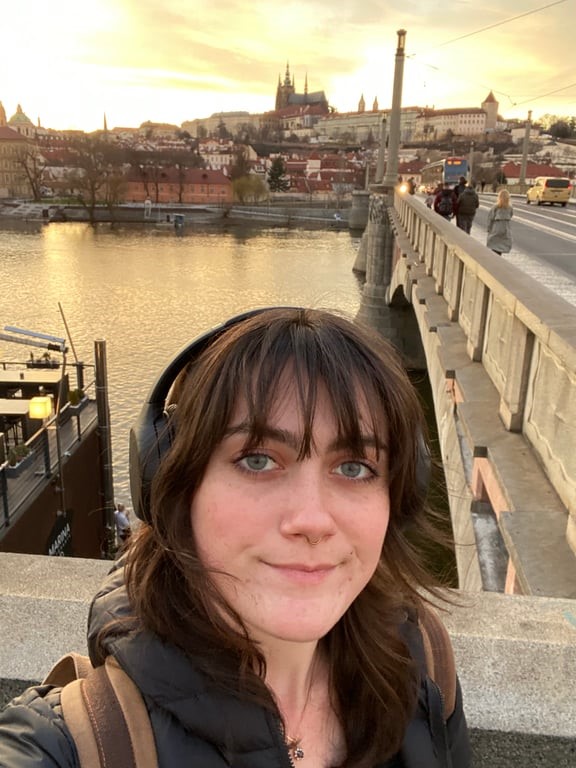
Eve Palmer
My favorite study abroad class was Media in a Democracy and Democracy in the Czech Republic.
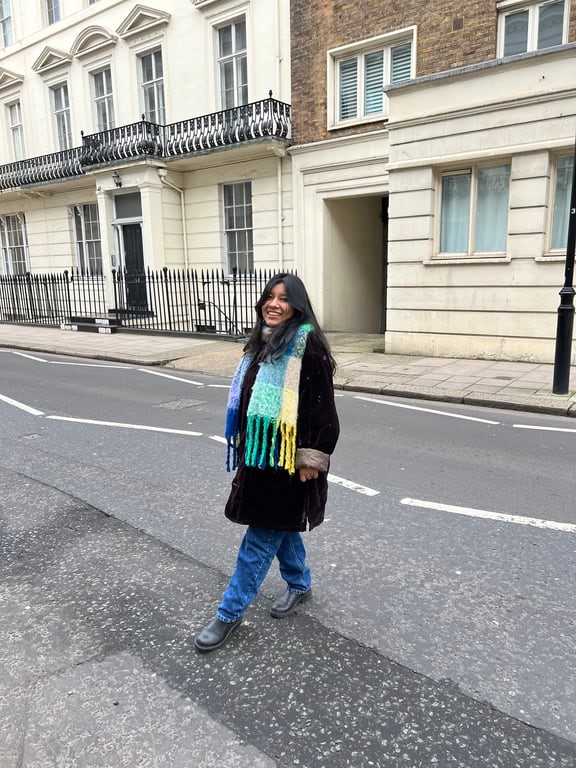
Fernanda Sanchez
What was your favorite class while abroad, and why?
My favorite class while abroad was my visual fashion merchandising class as not only was the professor passionate about his career but it was also the most engaging class. While I wasn't the most knowledgeable in fashion, the course was fun and interactive which made everyone in that classroom enjoy the course.
How did you engage with the local community while abroad?
I engaged with the local community by taking the metro every day, this helped a lot when knowing the way of life in my location. I also learned a lot while grocery shopping, laundry, and even going to the local bakery or coffee shop. Having this engagement that may seem small really was the best experience while being abroad.
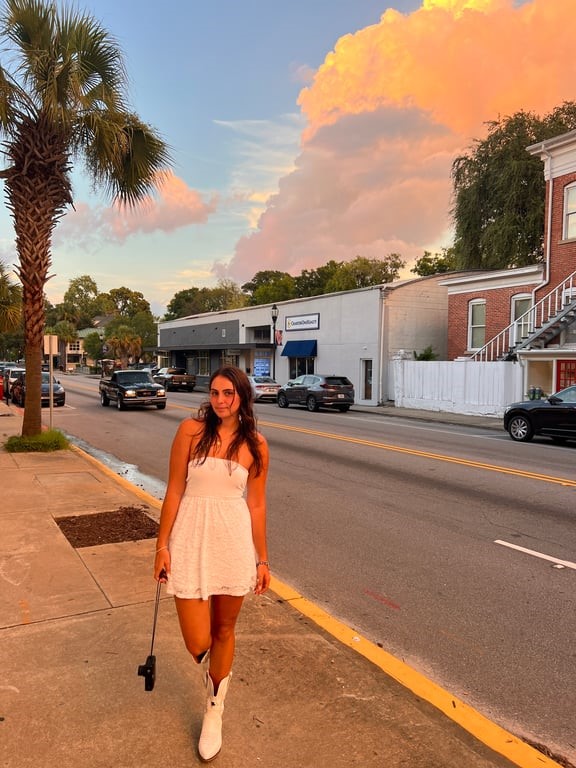
Gabriela Orlando
how did you engage with the local community while abroad?
I tried to do as many authentic activities as possible while abroad. I am an EU citizen, so I took advantage of this by going to various gardens, museums, exhibits, etc. that I had a reduced entrance price for in order to visit as many of these as possible. I would have never visited many of these places if I hadn't had a goal to explore the unknown parts of Florence that would connect me to the local community.
what's one story or important aspect you always tell people about your time abroad?
I always tell people about the amazing friendships I made with students not only in my school, but in my major, that I did not previously know. Study abroad strengthened my bonds with these people in unimaginable ways as we had the opportunity to grow, explore, and be independent together in a very unique and special way.
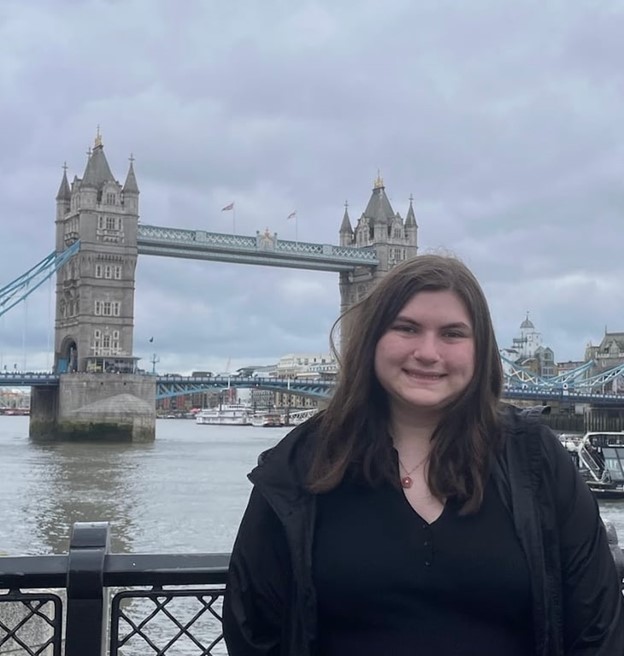
Gabrielle McCabe
what's one story or important aspect you always share about your time abroad?
Having never lived in the city before, I often mention the urban environment and ability to travel and explore London. I loved the freedom and access to different parts of the city, and all of the interesting places that could be discovered. Being so independent was important to my experience, allowing me to take advantage of everything the city had to offer. There was something exciting around every corner and I loved every moment.
how did you engage with the local community while abroad?
My flatmates and I made a big list of all of the different activities and opportunities available to us, and did our best to see everything. I attended a craft workshop at a church, watched the Saint Patrick's Day parade in Trafalgar Square, and visited a large amount of markets and museums. If I could redo my semester abroad, I'd spend more time in the local community, consistently participating and forming relationships with local people. I think having such friendly CEA CAPA staff onsite was very helpful in making us all feel like our own community.
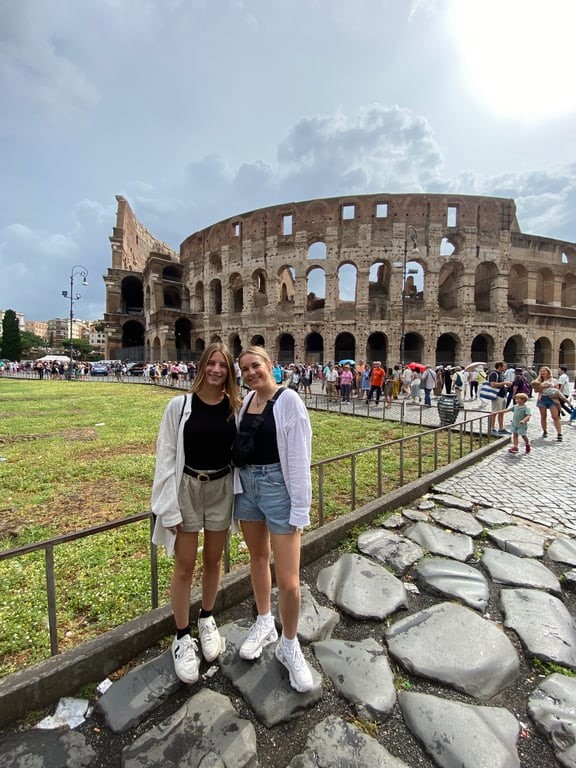
Grace Smith
What was your favorite class while abroad, and why?
While I was abroad I did an internship and studied, my internship experience was at an art gallery called Scarpelli Mosaic, this art gallery specializes in a traditional Florentine mosaic called comesso florentino, this form of mosaic is different from traditional mosaics because of the way they are put together. Each piece is cut out and filed by hand to fit perfectly together with the other, being put together like a puzzle.
How did you engage with the local community while abroad?
Through my internship abroad, I met locals and also grew close to my coworkers. We went out to dinner and drinks after work and I experienced a different side of Italian culture that I wouldn't experience without my internship. Additionally while abroad I spoke Italian and made as many local friends as I could. By becoming friends with locals I witnessed a whole new way of life for someone my age, I not only met new people almost everyday but also gained a new perspective on life and learned how to embrace new experiences.

Grace Wagner
WhAT DO YOU APPRECIATE MOST ABOUT CEA CAPA EDUCATION ABROAD?
I appreciated the clear communication, straightforward application process, and the CEA CAPA program directors in Florence, Italy. I communicated easily with the financial office before leaving in the fall, and I always got updates with pre-departure emails which was comforting. I enjoyed all the classes I took and the professors were highly educated and provided a great experience while studying abroad.
HOW DID YOUR STUDY ABROAD EXPERIENCE IMPACT YOUR GROWTH?
My first trip to Europe was when I lived and studied abroad in Italy. Every weekend I traveled, which was an amazing experience. I learned so much about the difference in culture which has changed me as a person. The international business classes I took during my education abroad will benefit my professional growth. My classroom studies were complemented by visits to local businesses and in-person meetings with entrepreneurs. This real world experience will be applicable to my future career with a business degree as I learned a lot about different businesses and how they function successfully. I also believe that studying abroad is a great connection when networking with your peers as it is a memorable experience that connects you with others.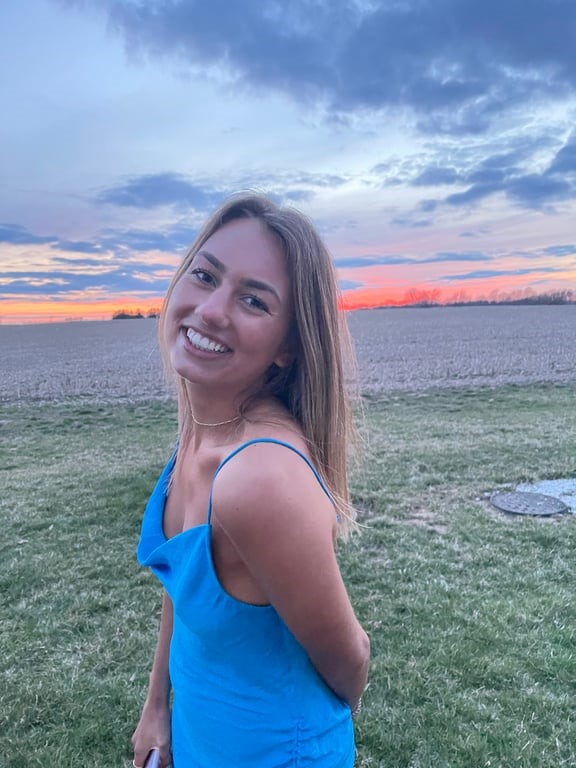
Grace Wynja
WHY WAS YOUR CEA CAPA PROGRAM THE RIGHT FIT FOR YOU?
I chose Florence because of the smaller city, unique culture, and geographic location, enabling me to have the opportunity to easily travel. It was so cool to walk everywhere like the school, restaurants, friends apartments, etc. I couldn't love Florence more because of the people, the city, and the culture.
HOW DID YOU ENGAGE WITH THE LOCAL COMMUNITY ABROAD?
I had a host family I would meet once a week at their house for dinner most of the time. I gained insight about Italians lifestyles, culture, family dynamics, etc. I still keep in contact with the family, which is very special and makes me feel like I'm back in Florence!
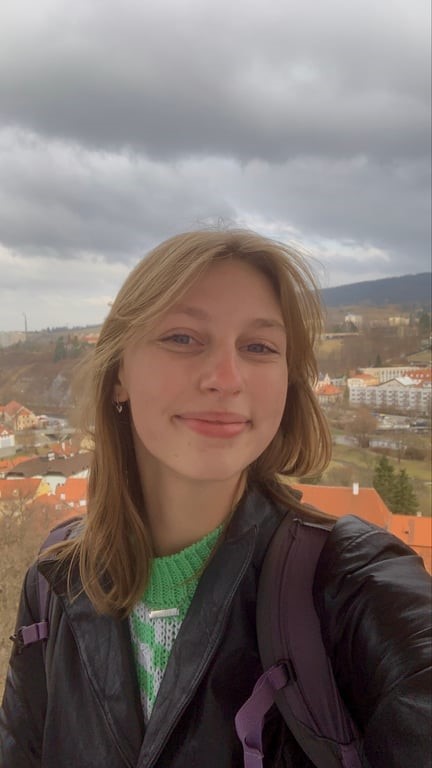
Greta Frederick Harteis
How did you engage with the local community while abroad?
Funny enough, the most time I spent engaging with the local community was when I went grocery shopping. The joy of European cities is the ability to walk everywhere, which means more smaller and frequent trips to the grocery store. I went to the same place just about every Monday and Thursday after class and ran into a lot of the same people. Czech people are known to keep to themselves, so it was nice when I got the occasional smile from one of the workers or another regular customer.
What was your favorite class while abroad, and why?
My absolute favorite class was my Prague Art and Architecture class. This was a "go out and explore the the world" kind of class and the majority of the students were from the CEA CAPA program. The professor also made it especially wonderful. This was the only class where I really became close with other people.
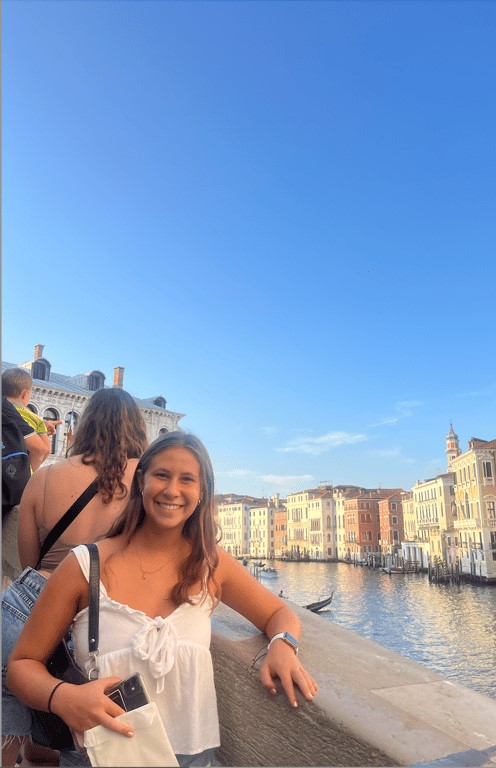
Hannah Alter
WHAT WAS YOUR FAVORITE CLASS WHILE ABROAD, AND WHY?
My favorite CEA CAPA study abroad class was Cinema in the City. We watched ten movies that took place in Florence, and we analyzed the ways in which the city is portrayed in and between each of the movies. Going to take class field trips where we walked in the exact places that the movie characters walked was an incredible experience and all-the-more relatable.
WHAT'S ONE STORY OR IMPORTANT ASPECT YOU ALWAYS SHARE ABOUT YOUR TIME ABROAD?
One important aspect that I always share about my time abroad is how amazed I am by the friends I made. Everyone says you'll meet new people from all over the world and form forever friendships, but I didn't entirely believe that going in - how can you make such an impactful relationship with someone in just four months? However, I've already visited my friends from abroad and it's only been two months since being apart! Best friends were definitely made.
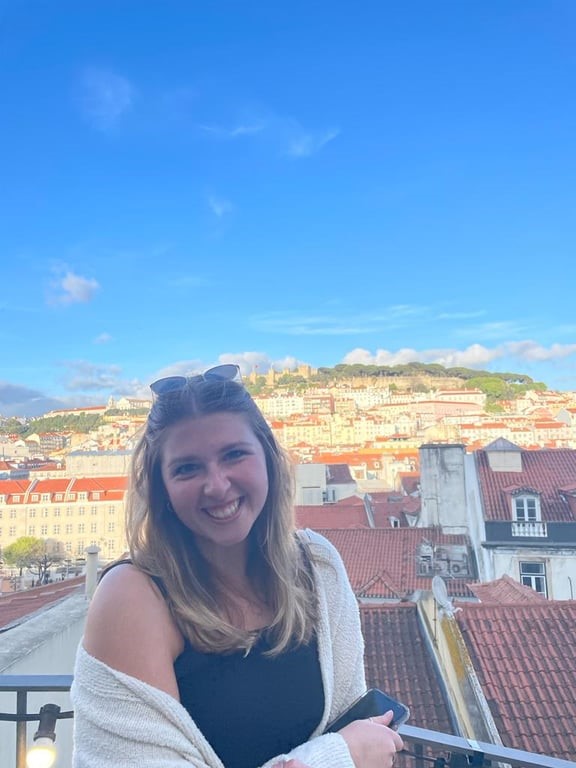
Hannah Fuller
How did you engage with the local community while abroad?
While I was abroad, I experienced two of the biggest celebrations in Seville: Feria and Semana Santa. These are huge cultural events focused on community and togetherness. While attending these events, I met locals and saw the love that they have for their country.
what's one story or important aspect you always tell people about your time abroad?
When talking about being abroad, I always discuss how kind everyone was to me. I was very intimidated going to a country where English wasn't the first language spoken but the people in Seville were so patient and kind. I always felt welcome which made my experience so much more impactful.

Hayley Camponescki
WHAT WAS YOUR FAVORITE CLASS WHILE ABROAD, AND WHY?
My favorite class while I studied abroad was beginners watercolor. My enjoyment of this class surprised me because I often get frustrated with my lack of artistic ability. But my lack of talent was compensated by my desire to portray my trips through art. Our assignments that involved painting "postcards" of some of our favorite sights while abroad. A lot of my paintings (though I didn't find good at all) were great keepsakes and a wonderful way to look at my time in Florence through a different lens. My teacher for this course, Jamie, was easily one of my favorite teachers I have had in my life. My classmates and I were able to connect with her through social media and I hope to one day go back and visit her. She always encouraged me to embrace the mistakes I made in my work, and look at the piece as a whole and not for its faults.
HOW DID YOU ENGAGE WITH THE LOCAL COMMUNITY WHILE ABROAD?
My apartment was located about a 20-30 minute walk from the hustle and bustle of the city. Though it was incredibly easy to get to places like the Duomo by foot, being further away from all of the tourists was something I learned to love. Almost every morning my roommates and I went to Cafe Orcagna located on our street and enjoyed a cappuccino and pastry. The workers knew us so well that they had our orders memorized and one morning when I didn't have my wallet, they prepared my food while I quickly ran back to my apartment to retrieve it. It was here that we tested our knowledge of the language, work on our homework, and show our families when they came to visit.
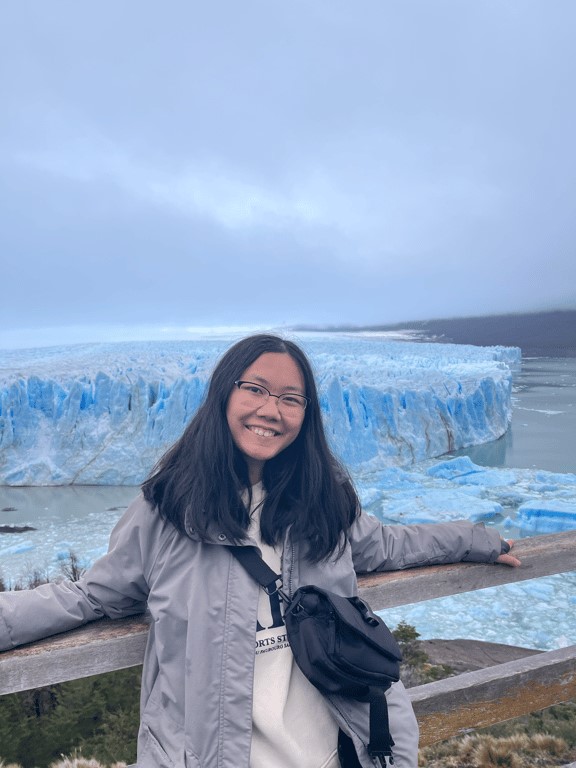
Huiyi Lin
How did you engage with the local community while abroad?
In Buenos Aires, there were cafes and bakeries on every corner. My tradition after class was to grab a latte and merienda at a different cafe around the city every time. One time, I met a kind elderly woman who taught me about their national holiday and gave me some traditional pastries to try. There were also many farmers markets and artist fairs on the weekends. Being able to interact with local artists and see their amazing craftsmanship was one of my favorite parts of the trip!
what was your favorite class while abroad, and why?
My favorite class while abroad was called Sports and Contemporary Culture in Argentina. Our instructor, Eduardo, was incredibly passionate about the topic. We learned about the economic, political, and cultural history of Argentina and how it affected the development of sports and gender norms. We visited famous football stadiums around Buenos Aires and even watched a women's football match! Through this class, I was able to see and feel the passion that Argentinians had for football from the chants, museums, and jerseys worn around the city. I learned about the connecting force sports had in local communities as it's being used to rally people to fight for social issues like women's rights and youth education.
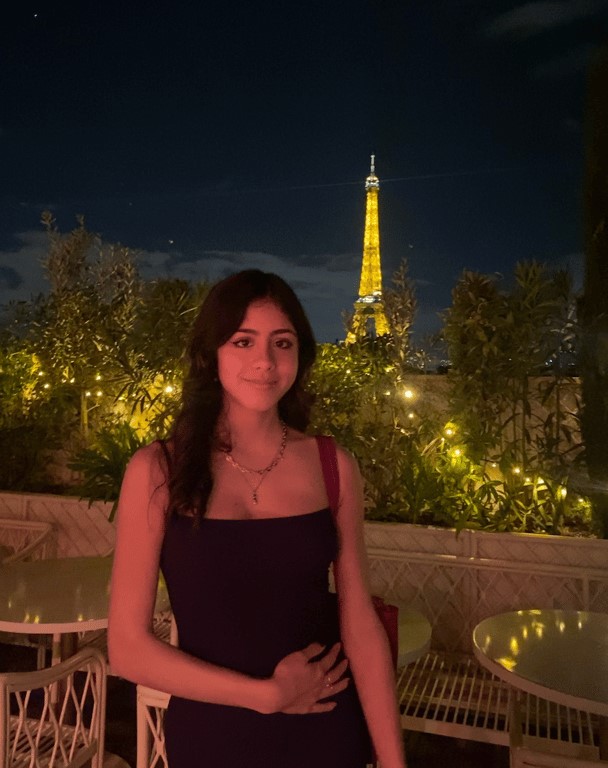
Isabella DeJesse
what was your favorite class while abroad, and why?
I took a class at a partner institution (CCFS) in Paris. CCFS is an international school designed to teach its students the French language at an accelerated rate for work, school, and more. This was by far my favorite course I ever took. My class consisted of students from all over the world and I learned so much about the world through their personal experiences.
What's one story or important aspect you always share about your time abroad?
For a lot of people, a semester abroad sounds like a long time to be away from family, friends, and even your own country... but time really does fly during your study abroad program. There's so much to explore and traveling is SO accessible in Europe. One day you'll be in Paris on the metro and the next you're eating pasta in Italy. I was scared to go far for so long but it went by so fast I wish I could go back.
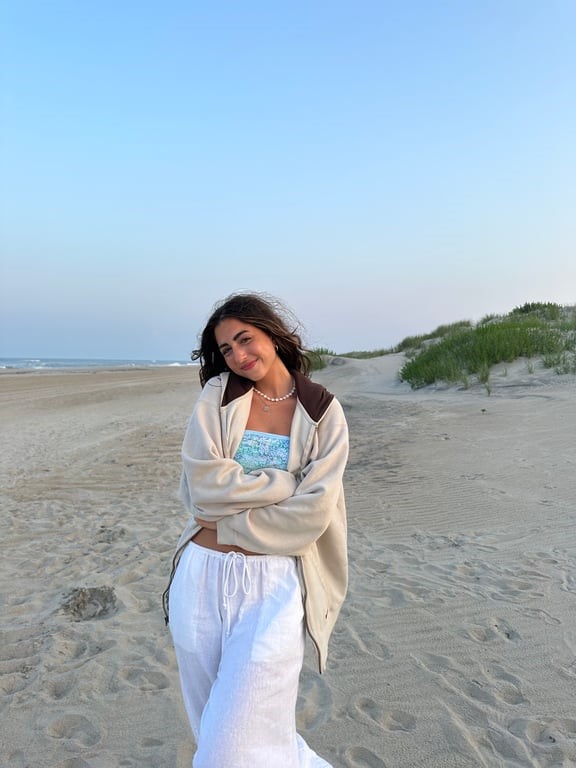
Isabella Pykosh
what's one story or important aspect you always tell people about your time abroad?
I always tell people about the great connections that I made during my internship abroad. My coworkers all grew up together, so I felt alienated at the beginning. Especially because I was an American who didn't surf, it made me think "What am I doing here?" Soon, I began building great friendships with my colleagues in and out of work. I even took a few surf lessons with the instructors! These connections were the most valuable part of the experience, as many of the friendships I built have outlived the four months that I had in Australia.
how did you engage with the local community while abroad?
I interned abroad at Let's Go Surfing so I met a portion of the local Bondi community. I also volunteered at Operation Straw. We collected trash from the beach in Manly Cove and I met people from all over the world.
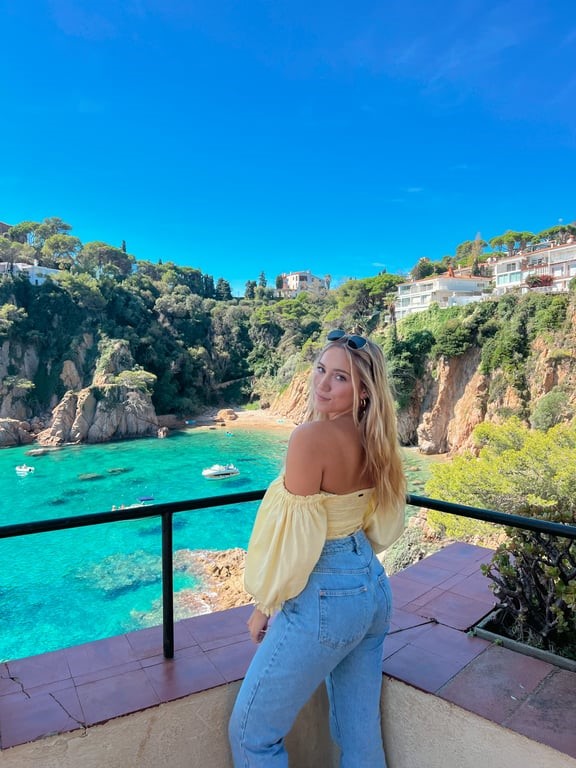
Ivy Bartlett
WHY WAS YOUR CEA CAPA PROGRAM THE RIGHT FIT FOR YOU?
My CEA CAPA Barcelona study abroad program was the right fit for me because Barcelona has so much to experience and it has a large airport so that I could get the most out of my traveling. The classroom setting was also small so I enjoyed getting to know my classmates and professors.
IF YOU COULD PICK ANOTHER CEA CAPA PROGRAM (BESIDES YOURS) WHICH ONE WOULD IT BE AND WHY?
I would pick to go to Sydney, Australia. I've never visited Australia and I think that it'd be a really interesting place to explore and expand my global perspective.
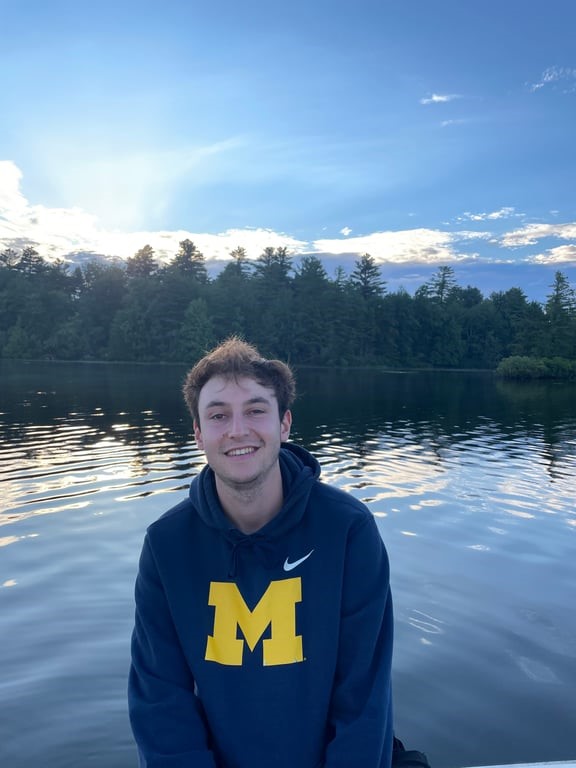
Jackson Schwartz
what was your internship abroad experience like? My internship abroad experience was a highlight. I always mention how I felt my my internship was both important and relevant to what I want to do in the future. Working with vulnerable populations, in addition to working in educational/hospital settings along with conducting novel research, it truly was a wonderful experience for me.
how did you engage with the local community while abroad?
While interning, I assisted children in the hospital's surrounding area (North Central London) with social anxiety and other mental impairments in improving their mental health & well-being education needs. On an even more local level, some friends and I loved going to one of the pubs in the neighborhood for Tuesday Trivia, which was so much fun!
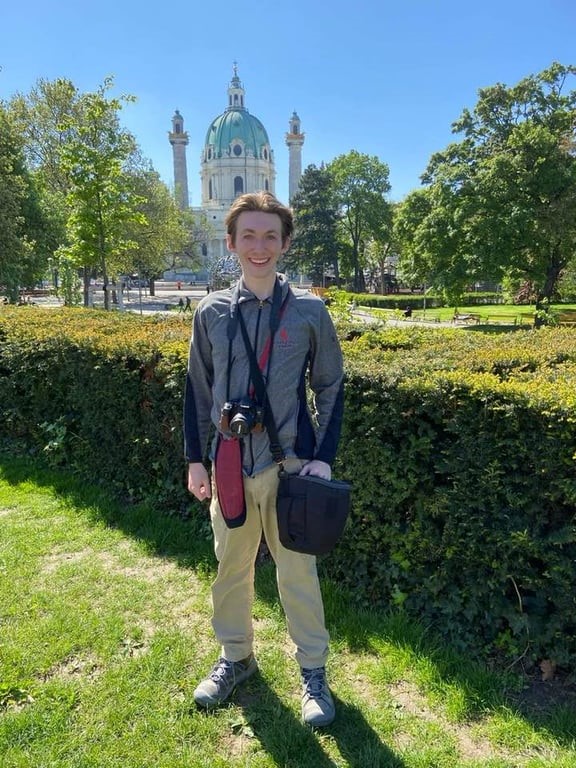
Jacob Monninger
what was your favorite class while abroad, and why?
While all of my classes in some way utilized the city of Paris as an educational tool in some way, my “History of Paris: An Architectural Perspective” class made the best use of this. There was never a shortage of important buildings or infrastructure to analyze throughout the complex and storied metropolis. The majority of classes involved going out into the city to learn on-location at Paris’ famed architectural landmarks, which completely enhanced the experience.
how did you engage with the local community while abroad?
I visited various museums and attractions across Paris and the surrounding suburbs, including many small and more intimate locations where I was definitely the only non-French person. Sometimes I went on French-language tours and participated with all French speakers, which was both fun and challenging. I also got into a habit of going to the same boulangerie before class and got to know the staff there a bit.
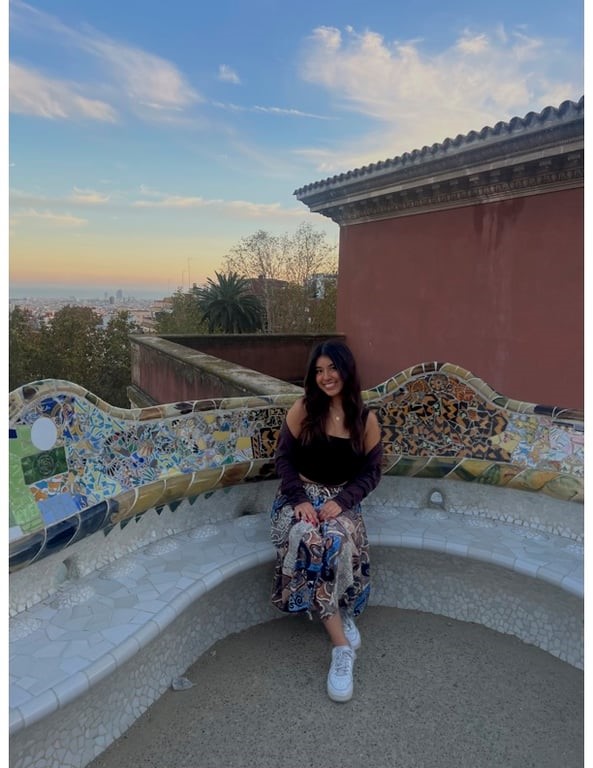
Jacqueline Ayala-Flores
what was your favorite class while abroad, and why?
My favorite class while studying abroad in Barcelona was my Food and Culture in Spain class because I learned a lot about Spanish and Mediterranean cuisine. I also had a really good teacher who was passionate about what he taught and made the class fun which made me even more excited. I loved the tapas workshop that I participated in through the class and the wine tasting and the trip to the local market to see where locals would shop for their food.
how did you engage with the local community while abroad?I volunteered as an English Learning Assistant at a local Barcelona school with middle school children. I taught four classes, formed small groups, and spent time helping the students practice their oral and communication skills in English. The students and staff at the school were very welcoming and made me feel like a part of their community. When I entered the classroom, the students greeted me with huge smiles and asked me about my study abroad stories, and would even recommend Spanish music and movies. During their break, I had conversations with the teachers at the school and they talked about their experiences in the education system in Spain, informed me about current events, and recommended places for weekend travels. I built a good relationship with staff and students and I'm grateful for the opportunity to speak with locals.
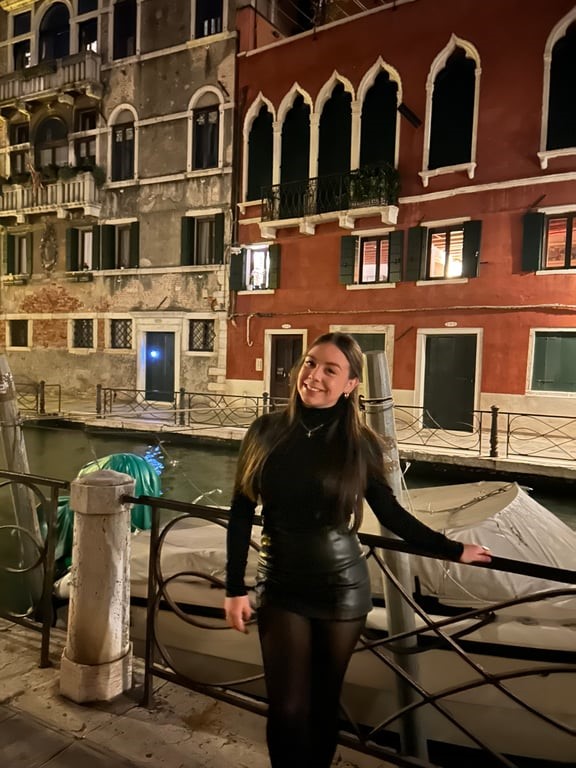
Jailexie Pereira
WHY WAS YOUR CEA CAPA PROGRAM THE RIGHT FIT FOR YOU?
I personally saw myself thriving in Dublin due to the amazing culture, energetic people, and accessibility of the country. Hopping around the Island was one of my favorite things to do, the country is so large and has so many different "vibes," and every place you travel to around Ireland is different. The food, music, and people in Ireland felt like home.
IF YOU COULD PICK ANOTHER CEA CAPA PROGRAM (BESIDES YOURS) WHICH ONE WOULD IT BE AND WHY?
I would've definitely leaned towards South Africa! It's such a unique and beautiful country that I think can get so overlooked but contains some of natures most beautiful sceneries!
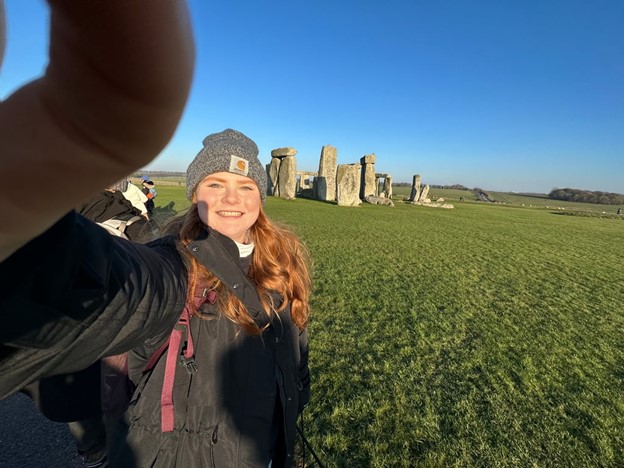
Jordan Cobb
WHAT WAS YOUR FAVORITE CLASS WHILE ABROAD, AND WHY?
Museums. I enjoyed the exposure the class gave us to London, England. Additionally, It was the class with the most field trips, and it allowed me to gain access to many museums I didn't even know existed. It was a wonderful class with many thought-provoking topics and interactive projects to keep it interesting.
WHAT'S ONE STORY OR IMPORTANT ASPECT YOU ALWAYS SHARE ABOUT YOUR TIME ABROAD?
I always talk about how studying abroad helped me gain independence and confidence in doing things SOLO. While I loved doing activities in a group, I grew the most by doing things on my own. I challenged myself to try new things solo all the time and even solo traveled twice while I was abroad. It gave me a sense of accomplishment that I didn't know existed. I feel like people grow the most when they're put into situations where they're out of their comfort zone, and it's very rewarding when you realize the freedom and independence studying abroad can give you.
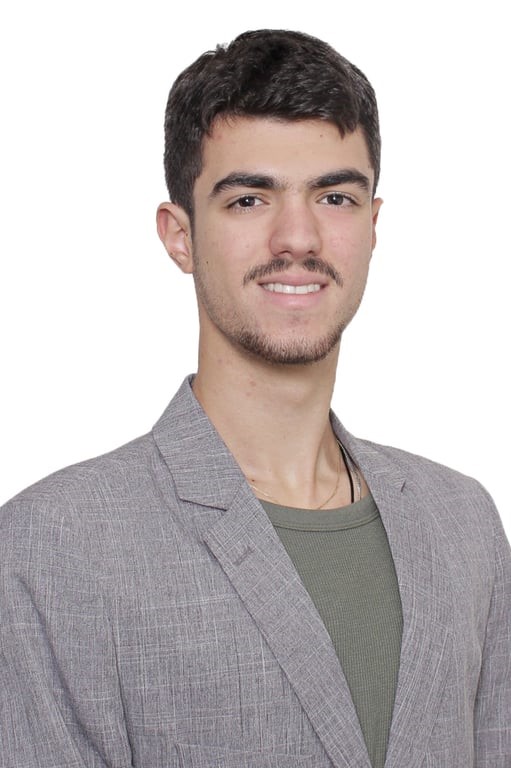
Jose Lucas Micheletti Marino
what was your favorite class while abroad, and why?
My favorite class was International Marketing, with Professor Sonnabend. At first I was discouraged because it was a 3-hour lecture four times a week starting at 9 a.m., but as time passed by I grew fond of it. As an engineering student, I rarely take breaks to learn about something different and applicable to my current situation such as international marketing. The professor was also a pleasure to have, I developed a friendship with him and we'd talk sometimes before or after class.
how did you engage with the local community while abroad?
I remember that in Rome we'd watch soccer games all the time in local spots; soccer is a huge deal in Italy and seeing everyone taking it very seriously was exciting. I also traveled a lot by public transportation, interacting with day-to-day Romans and learning what daily life feels like there. Overall, I was very connected with the local community (even though my Italian was embarrassingly basic).
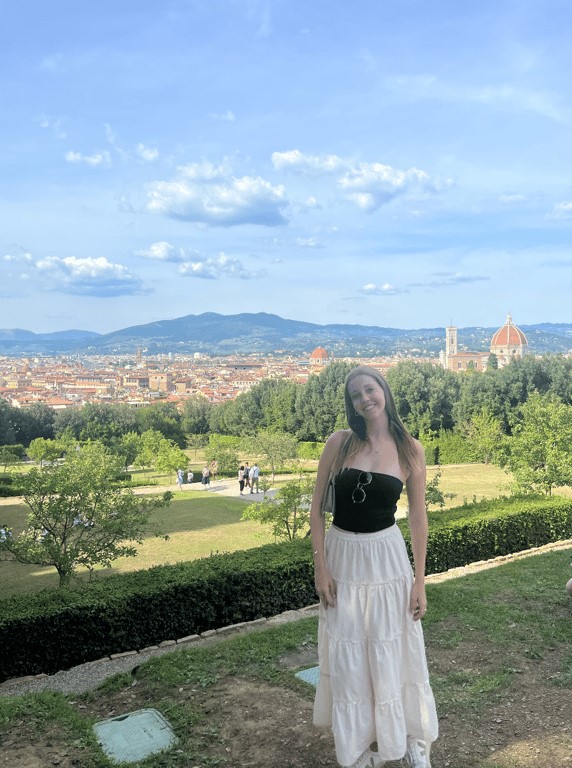
Julia Benjamin
HOW DID YOU ENGAGE WITH THE LOCAL COMMUNITY WHILE ABROAD?
I immersed myself in the Italian culture by having meals with my professors to learn their customs and traditions. I also explored art and music through museums in Florence and entered new neighborhoods to learn how communities compare with one another.
WHAT'S ONE STORY OR IMPORTANT ASPECT YOU ALWAYS SHARE ABOUT YOUR TIME ABROAD?
I always tell people to say yes to everything and try new things! It's important to go out of your comfort zone and explore all that your host country offers.
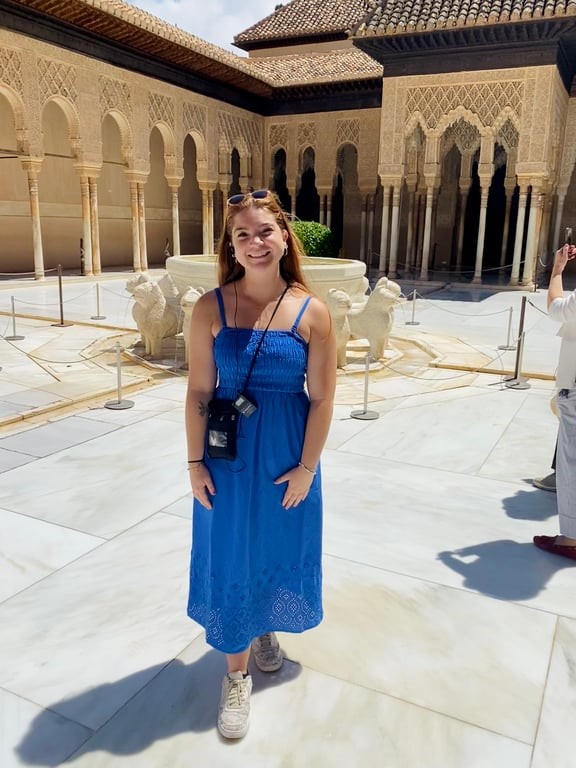
Julia Kirkland
HOW DID YOU ENGAGE WITH THE LOCAL COMMUNITY WHILE ABROAD?I engaged with the community the most through my classes at CEA CAPA. For my Spanish class, we had activities around the city that required us to converse with locals and immerse ourselves in the culture. In my sport psychology class, we visited the local university to learn from a graduate student researcher.
WHAT WAS YOUR FAVORITE CLASS WHILE ABROAD, AND WHY?
Unexpectedly, my favorite class was Spanish for beginners. Not only was it extremely helpful to apply the subjects we learned, but the class helped me better understand the culture as I witnessed it. I learned a lot of valuable phrases that helped me communicate with locals during daily tasks like shopping or eating at a restaurant.

Julia McCarthy
WhAT WAS YOUR FAVORITE CLASS WHILE ABROAD, AND WHY?
My favorite class from studying abroad in Spain was called International Service Learning. The topics that were studied in this class covered things going on in the local community in Seville that we couldn't necessarily learn in the short time of being there. It gave me insight into many different topics, issues, and things going on from a local's perspective.
HOW DID YOU ENGAGE WITH THE LOCAL COMMUNITY WHILE ABROAD?
My I volunteered abroad with a local program in Seville to help people who were blind become more integrated within the community and also help them learn English! I also went part time to a local institution and took courses there.
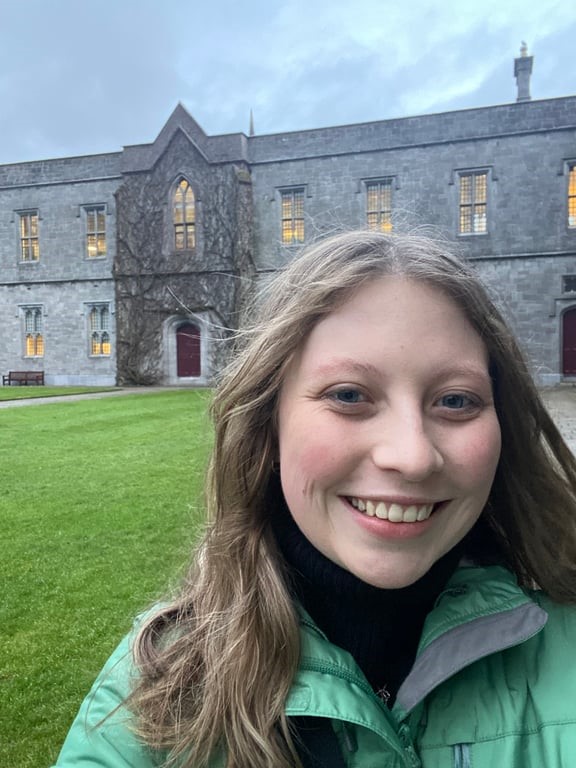
Julia Ross-McGuire
if you could pick another cea capa program (besides yours) which one would it be and why?
I'd pick Prague, Czech Republic. While traveling I absolutely loved my time in Prague. I found it was a beautiful city architecturally and wish I had more time to explore its rich culture.
why was your cea capa program the right fit for you?
I knew I wanted to study abroad in Ireland as my dad's family is 100% Irish and I wanted to connect with that culture and heritage. My late grandmother loved Ireland and I always wanted to visit with her but never got the chance to so it also was a way to honor her memory. Furthermore, Galway was a small city that didn't seem too difficult to navigate, as well as English-speaking, with a rigorous university that had many classes within my major.
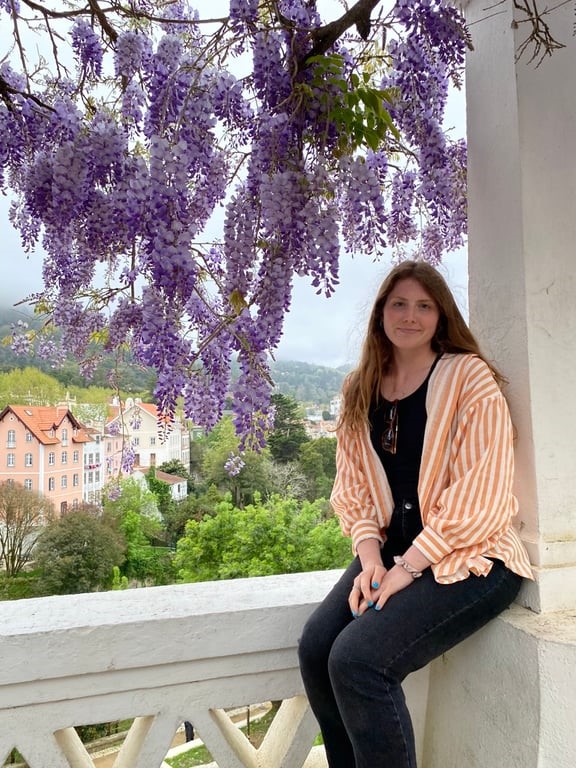
Julia Wafford
What was your favorite class while abroad, and why?
My favorite class I took while abroad was called Modern Art and Architecture in Spanish Cities. In this class I learned more about Spanish artists and some architecture of buildings in my own neighborhood. As part of the class we even got to visit some of the local museums in the city. This class also inspired me to visit other parts of Spain to see some of the art we talked about in class, in-person!
How did you engage with the local community while abroad?
At my apartment building, I met some of my neighbors and the doorman of my building who I talked to almost everyday. My neighborhood was also full of cafes, shops, and restaurants where many local community members work and visit, so I was able to speak with people there too. Through one of my, classes we got to attend multiple local sporting events and even got to go play paddle with my professor!
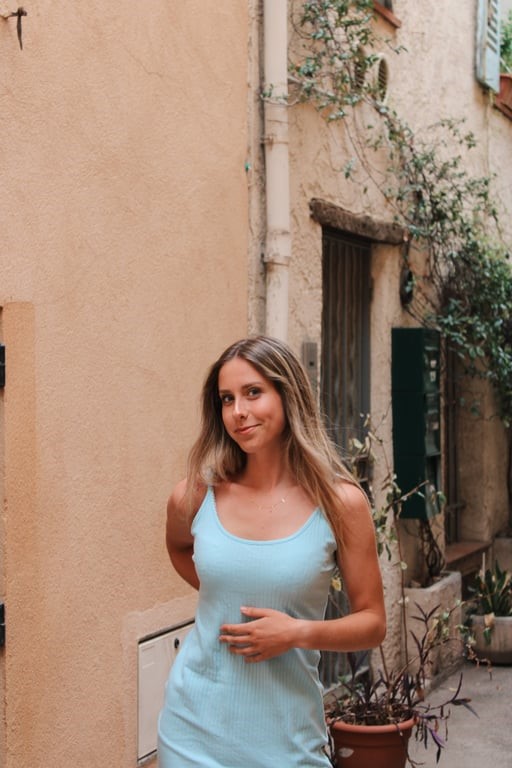
Juliana Mantz
WhAT DO YOU APPRECIATE MOST ABOUT CEA CAPA EDUCATION ABROAD?
The CEA CAPA leaders onsite are SO HELPFUL. They're amazing, thorough, kind, wise, and well rounded. They always emphasized that they were a phone call away if we needed anything. They made France feel like home for me!
HOW If you could pick another cea capa program (besides yours) which one would it be and why?
I'd probably choose the Florence study abroad program or ANYWHERE in Italy. I fell in love with Italy before I even studied abroad. And when I was abroad, I got to visit Italy again. I absolutely love Italy; from the culture to the food to the energy the residents have!

Kaylan Peters
how did you engage with the local community while abroad?
When I studied abroad in Rome, I volunteered at a homeless center. I visited upcoming neighborhoods and had conversations with the community.
what was your favorite class while abroad, and why?
My favorite class while studying abroad was Arts of Italy. This was my favorite class because we got to tour many neighborhoods and artifacts with extreme knowledge from our professor.
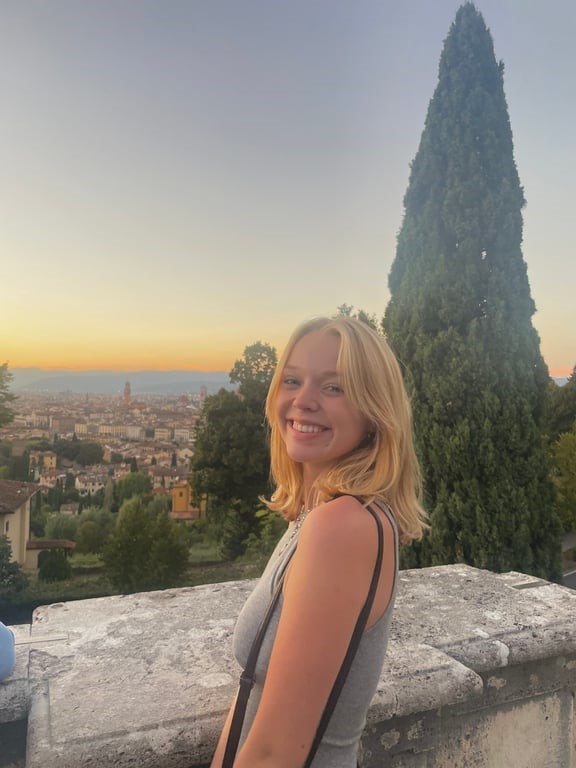
Kendra Roberson
My favorite class was Beginning Italian. It was so helpful to learn the language of the country that I was studying abroad in so I communicated with locals, understood signs and products in the grocery stores, and learned more about the culture. Although I didn't become fluent, I gained a great foundation of basics in Italian, and held entire conversations in Italian by the end of my program.
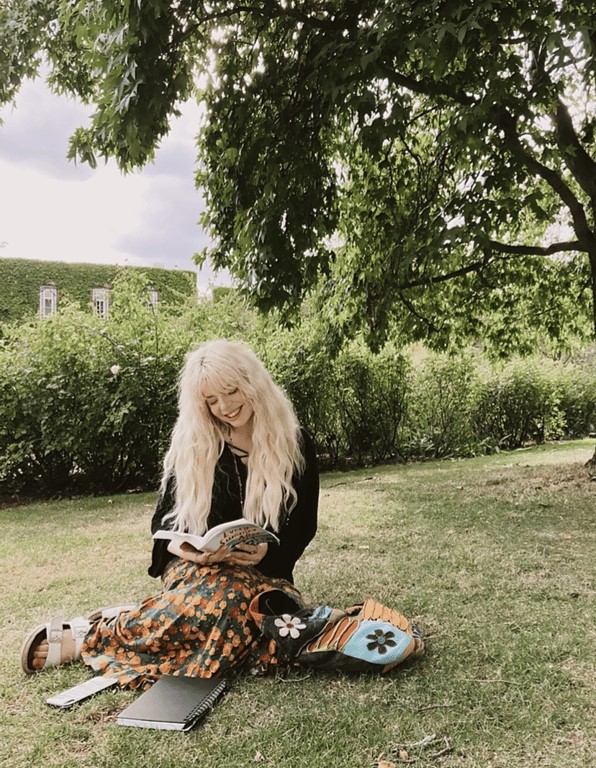
Kyra Johnson
What was your favorite class while abroad, and why?
One of the highlights of my time abroad was the creative writing class. London became my source of inspiration from which I drew upon its beautiful architecture, diverse population, and my personal experiences developing various poems and short stories.
How did you engage with the local community while abroad?
During my time abroad, I engaged with my local community by attending vibrant street markets like Borough Market and Brick Lane. I also witnessed captivating stage productions, including Shakespeare's A Midsummer Night's Dream and The Comedy of Errors, which were incredibly entertaining.
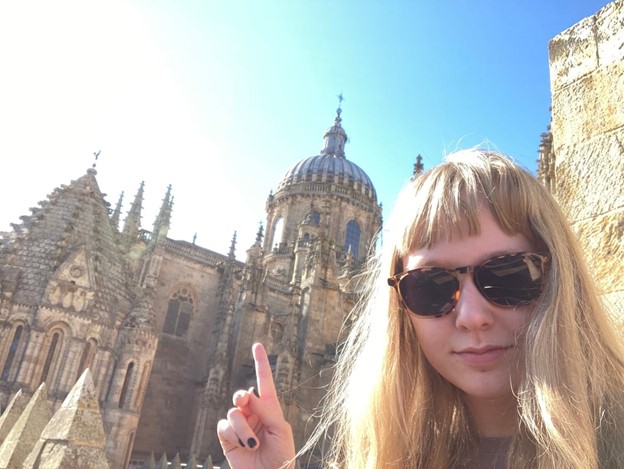
Lauren LeCours
if you could pick another cea capa program (besides yours) which one would it be and why?
I'd choose Chile or Argentina since I focused on language immersion during my Madrid study abroad program and I'd love to visit other Spanish-speaking countries.
how did you engage with the local community while abroad?
Engaging with the local community while studying abroad in Spain was an enriching experience that went beyond the confines of traditional tourist attractions. My approach involved immersing myself in the vibrant tapestry of daily life through visits to bustling local markets. These markets, such as El Rastro and the winter markets, became my go-to places to interact with locals, sample authentic cuisine, and witness the lively atmosphere.
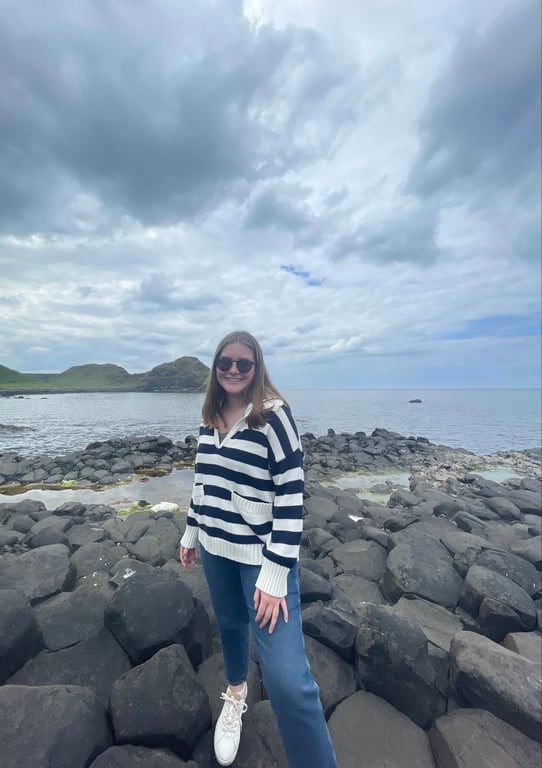
Lily Campbell
HOW DID YOU ENGAGE WITH THE LOCAL COMMUNITY ABROAD?
While studying abroad in Dublin, I wanted to make the most of my time by engaging with the local community. A few things I did to feel apart of the community was by frequenting local parks, museums, restaurants. I also traveled throughout Ireland to better understand the way people live there. Traveling to different landmarks and cities led me to talk to locals about their town's history and local stories. I sampled Irish cuisine, tried local beers and drinks, and enjoyed traditional music and art.
WHAT'S ONE STORY OR IMPORTANT ASPECT YOU ALWAYS SHARE ABOUT YOUR TIME ABROAD?
One aspect I like sharing is that the length of your study abroad program doesn't correspond with how much you'll learn and how much you'll appreciate your experience. I only studied abroad in Ireland for four weeks and it was one of the most positive experiences I ever had. I learned so much about myself in such little time and I have a greater appreciation for Ireland and their culture.
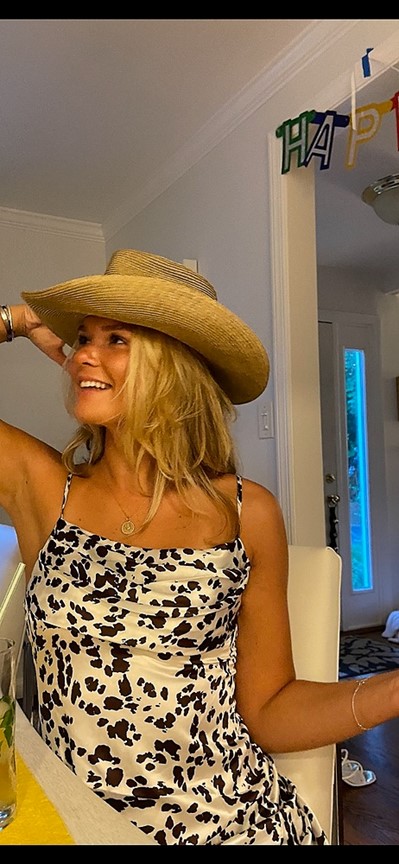
Lily Cope
WHY WAS YOUR CEA CAPA PROGRAM THE RIGHT FIT FOR YOU?
The CEA CAPA study abroad program was amazing. The teachers were so personable and I enjoyed how the classes were smaller because I felt like I gained a lot more knowledge from knowing the teacher better.
IF YOU COULD PICK ANOTHER CEA CAPA PROGRAM (BESIDES YOURS) WHICH ONE WOULD IT BE AND WHY?
I loved CEA CAPA and I honestly cannot imagine myself in any other program than Florence, Italy!
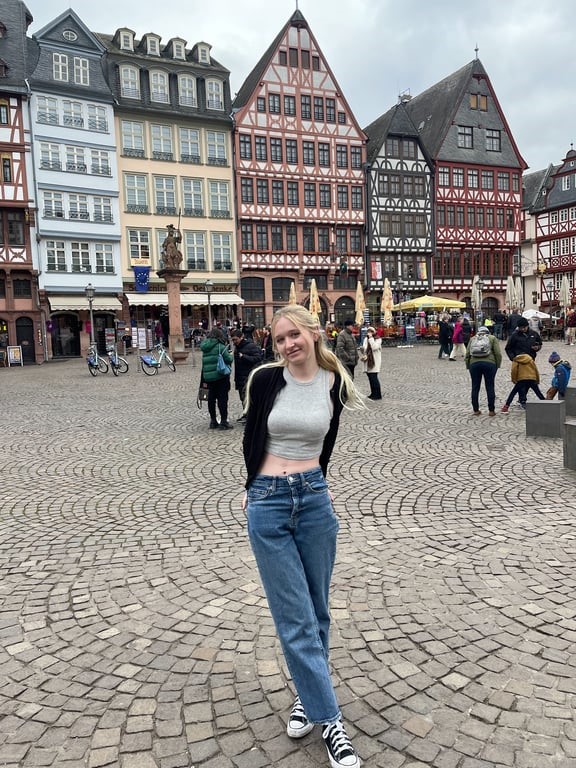
Lily Holden
how did you engage with the local community while abroad?
I engaged with the local community abroad by going to a lot of smaller cities in Ireland, since there are many tourists in Dublin. In the smaller cities you got to talk to more locals and they were always really excited to chat about differences between America and Ireland. Additionally, going to events in the area helped me in engaging with the locals. One place that I went where I spoke to a lot of locals was to watch a rugby match at a pub. Rugby is a big part of the culture in Dublin, so it was nice seeing that firsthand and talking to the locals about it.
what is one story or important aspect you always share about your time abroad?
One important aspect I always share about my time abroad is the people I connected with, especially from different countries. I came into this experience alone and not knowing anyone prior. However, I met so many people that I became close to so quickly. CEA CAPA introduces you to people from all over the world and helps form these positive connections by hosting things like international food nights and scavenger hunts that you complete with all CEA CAPA students. Now, I know people from Germany, France, Ireland, etc. that I cannot wait to visit in the future.
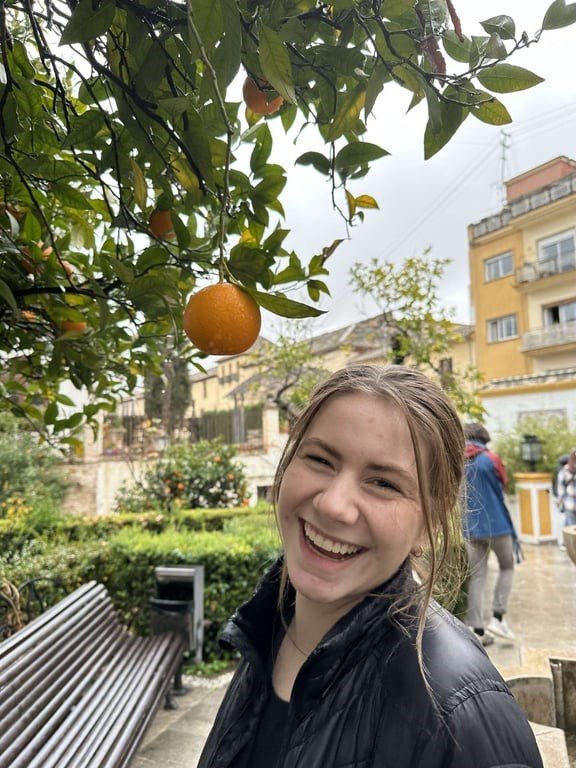
Lily Moen
HOW DID YOU ENGAGE WITH THE LOCAL COMMUNITY WHILE ABROAD?
I engaged with the local community in many ways. Living with a host family gave me a great insight to what daily life can look life. I also had the opportunity to volunteer in a classroom, so I interacted with students and got to know them during my time there.
WHAT WAS YOUR FAVORITE CLASS WHILE ABROAD, AND WHY?
I really enjoyed the class "Diversity of Spanish in the World." The class took a deep dive on different dialects and characteristics of the Spanish language in different regions in Spain as well as in North/South America. I thought it was very interesting to listen to Spanish speakers from different areas of the same country and see how their way of speaking slightly changed.
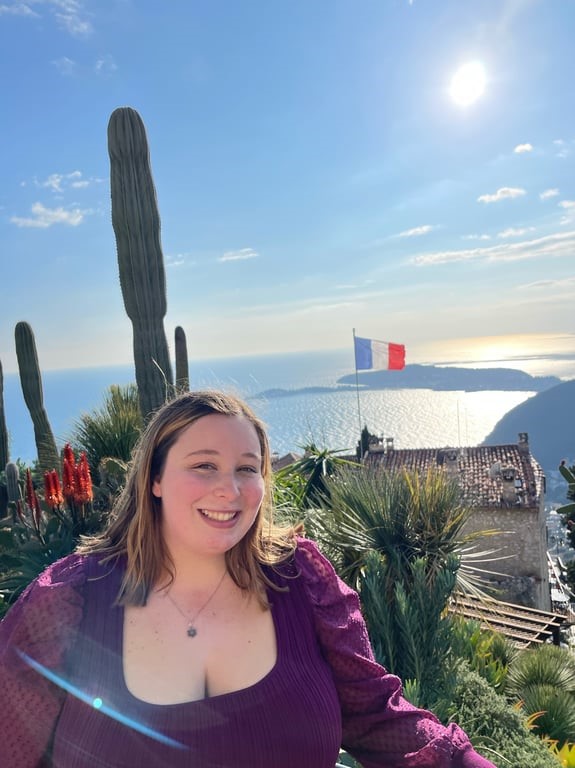
Lily Tabenken
what's one story or important aspect you always share about your time abroad?
One thing I always share about my internship abroad and my amazing co workers who made my international internship experience so special.
how did you engage with the local community while abroad?
I engaged with locals by interning in North London and going out into different areas of the Jewish community.
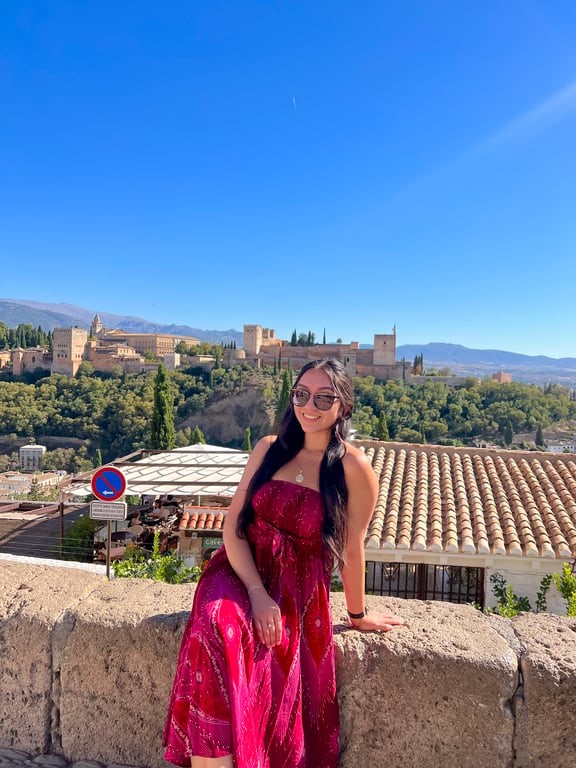
Lina San Juan-Martinez
if you could pick another cea capa program (besides yours) which one would it be and why?
If I could pick another CEA CAPA program I'd pick Seville because that was one of my favorite cities I visited while I studied abroad.
why was your cea capa program the right fit for you?
It was the right program for me because two of my main goals were to improve my Spanish language skills and immerse myself in the Spanish culture. I practiced and improved my Spanish with the classes offered at the university and had the opportunity to live with a host family helped to reach both goals.
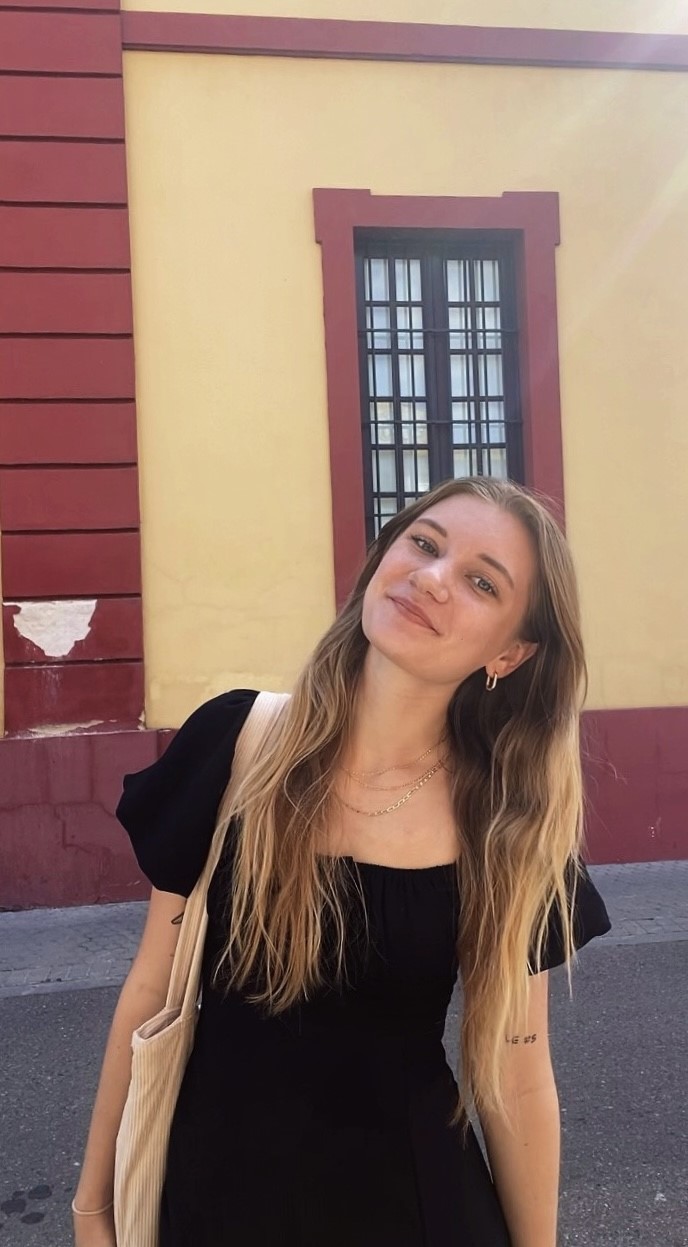
Lindsay Wilhelm
WhAT was your favorite class while abroad, and why?
I took communication and global competence while studying abroad along with my internship abroad and I found this class to be one of my favorite classes I ever took. Learning about cultural differences and the proper ways to communicate through those barriers from someone from Spain was a unique experience and very relevant to my time abroad. I applied what we we discussed in my daily interactions with locals and we had some tough conversations that were really eye opening to me. I truly valued every day of class and enjoyed learning form my professor.
HOW did you engage with the local community while abroad?
While abroad, I met local people at various places that I frequented and begin to have more insightful conversations with them. I always went to the same café in Sevilla and the nice lady working the counter got to know my order and we always had exciting conversations about our day. My host mother also engaged me and my roommate in the local scene by taking us out to eat and showing us some of the small restaurants near by. In general, being in Spain, the city was filled with opportunities to learn the culture, language, food, music, and everyone was friendly and willing to share it.
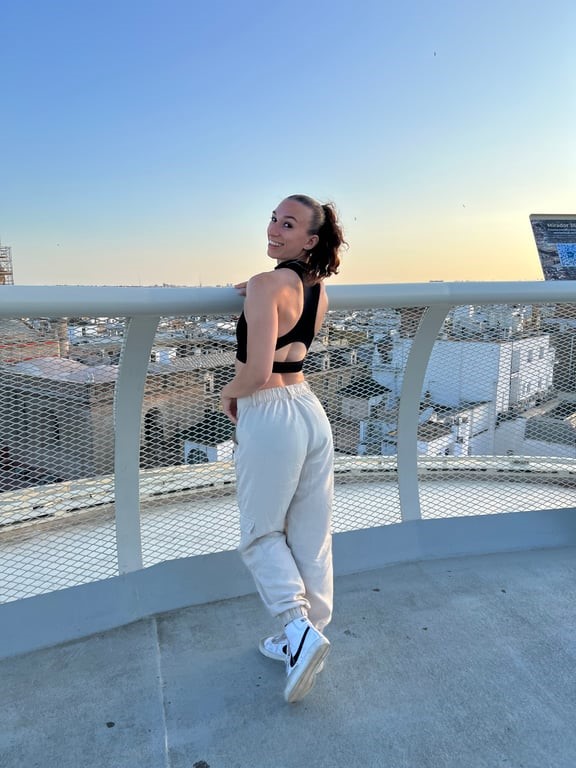
Lira Bordoley
what's one STORY OR IMPORTANT ASPECT YOU ALWAYS SHARE ABOUT YOUR TIME ABROAD?I always tell people about the people that I met on this trip. I created lasting, meaningful relationships with strangers who turned into the greatest group of people I've ever met. Being with them and experiencing a whole new country was immensely special to me.
why was your cea capa program the right fit for you?
While studying abroad, I made sure to visit local Seville landmarks like the Triana Market, Las Setas, and the Alcazar so that I could learn about the history of Seville!
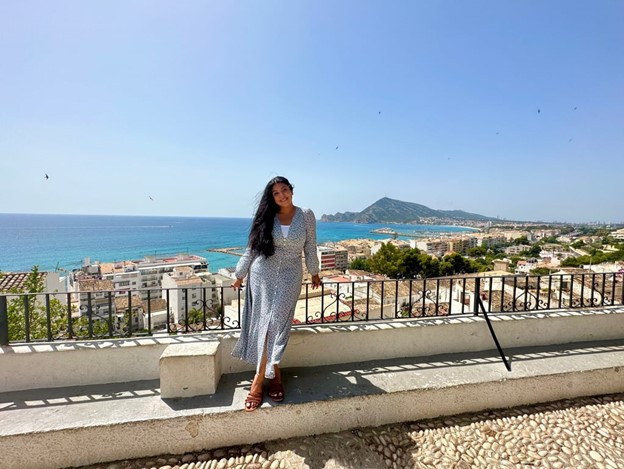
Lizzet Contreras
how did you engage with the local community while abroad?
The way I engaged with the community abroad was I integrated myself with a local church that I found and loved. This lead me to meet many new people and establish great and personal relationships.
what's one story or important aspect you always share about your time abroad?
One thing I always tell people that's important to note about studying abroad is that you not only learn about yourself but there's also a level of healing that happens to you. You meet such amazing new people and you're constantly getting put in positions that you'd normally never be in. It almost causes you to be in a certain mindset while you're there that once you come home you realize that certain aspects of yourself were healed. That was my experience.
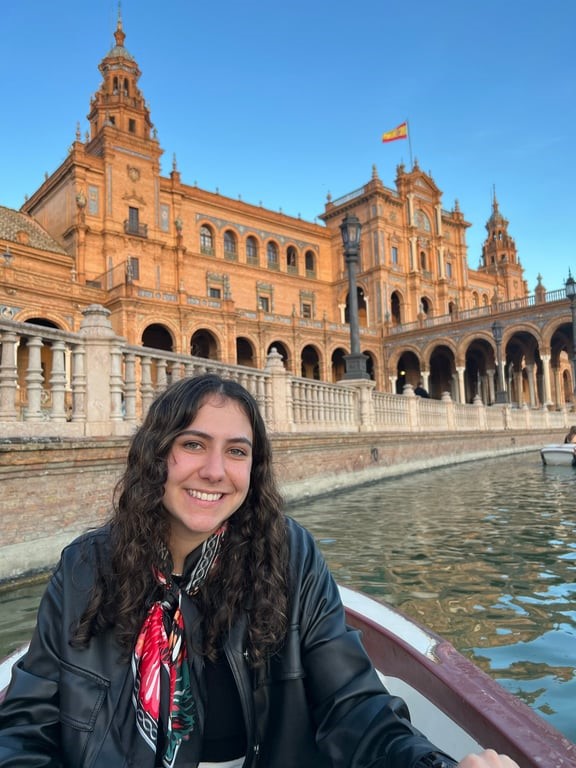
Lolarose Deforges
WHY WAS YOUR CEA CAPA PROGRAM THE RIGHT FIT FOR YOU?
My CEA CAPA program was the perfect fit for me because it offered courses for my sociology major but I also got to partake in an internship abroad as well! It was also the perfect location, I wanted to live in a city but I didn't want it to be too big since I never lived in the city, and plus I wanted to make sure I could get a lot of Spanish immersion. Sevilla was the perfect location!
WHAT'S ONE THING ABOUT CEA CAPA YOU THINK EVERYONE SHOULD KNOW?
I think everyone should know that there's a study abroad program out there for everyone, whether you're looking for the perfect place to study, intern, or even partake in service learning abroad, there are plenty of programs to choose from and the CEA CAPA advisors are amazing at helping you figure out which one is best for you.
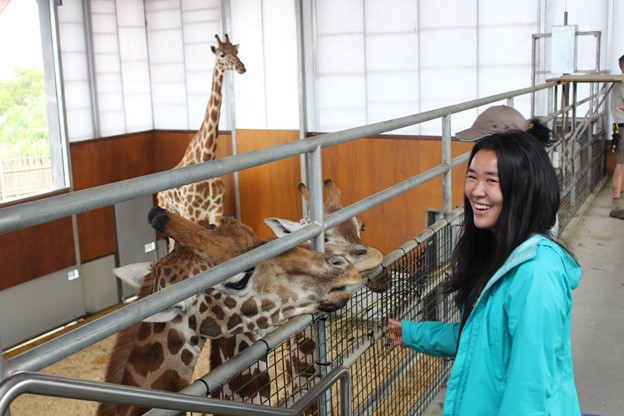
Luann Ji
what's one story or important aspect you always tell people about your time abroad?
Sydney is a huge city to live in. I explored so many different areas alone or with friends. One minute you might be in the city and the next you could be at the beaches. It really is a diverse place not only in terms of the people, but also the environment. Some of my fondest memories of my time abroad were spending time at the magnificent beaches or indulging in delicious foods across neighborhoods. On top of this, I loved going to the flea markets spread across the city. There was one in particular you'd always catch me at on Saturday mornings. Lastly, I was thrilled to explore the music that Sydney and even more, Australia had to offer. I want to work in the music industry and having the opportunity to attend lots of events with so many different talented artists within the country broadened my perspectives. Now, I hope to come back and be apart of the industry there.
how did you engage with the local community while abroad?
Through my internship abroad, I engaged with members of the local community abroad. I worked alongside all sorts of individuals with diverse backgrounds from Australia. This helped me learn about the workplace differences abroad vs. at home. Additionally, through exploring the city and attending events outside of school, I met even more Australians who taught me so much about their world and lifestyle. Some of these encounters even turned into lifelong friendships that I will be forever grateful for.
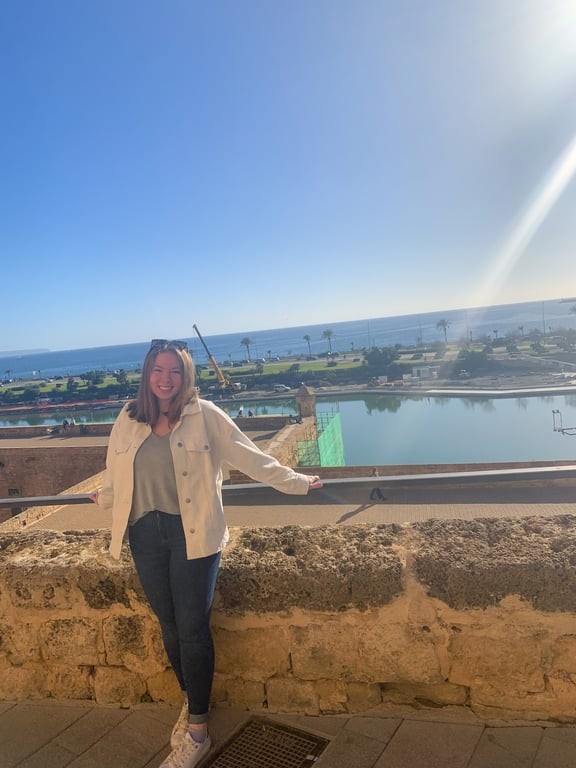
Lucile Harrison
WHY WAS YOUR CEA CAPA PROGRAM THE RIGHT FIT FOR YOU?My Barcelona study abroad program was perfect for me because the courses I took translated perfectly for my minor, and it was in the country that I originally wanted to study in.
WHAT WAS YOUR FAVORITE CLASS WHILE ABROAD, AND WHY?
My favorite class abroad was my Spanish language class. The professor did an incredible job of applying what we learned in the classroom to real life abroad. We went on field trips to local spots where practiced what we learned in class and experienced local culture, which truly aided in making my semester abroad as amazing as it was!

Luke Cashman
Tell us about your internship abroad experience.
I interned abroad as a Business Development intern at a small company that planned investment conferences all around the globe. I networked and found guest speaker candidates for the events. Now I'm connected with people from all over the world. My team was also THE BEST. Work really felt like going to hang out with my friends for a few hours a day and we still keep in touch to this day.
what's one story or important aspect you always share about your time abroad?
Prague is so close to other amazing countries that you must visit. I highly recommend that everyone tries the hostel experience. Make friends with other solo travelers that you'll never see a again. The relationships you build with these people are truly special.
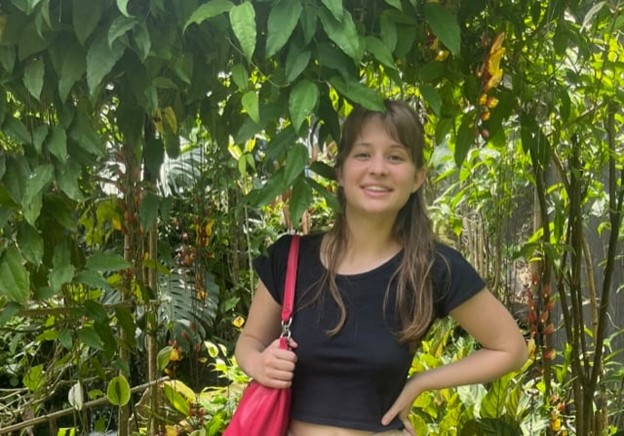
Mackenzie Cozort
what was your favorite class while abroad, and why?
I took one class while studying abroad. I really enjoyed learning about different morphological and syntactic aspects of various dialects of Latin American Spanish, and diving into the history of the development of Spanish in the Americas.
how did you engage with the local community while abroad?
I lived with a host family abroad, so I witnessed how locals live and learned more about the attitudes and beliefs of Costa Ricans by conversing with my host mom about various topics. Also, I met several Costa Rican students at the university I attended, and met other "ticos" my age by going to dance clubs with other friends from my San José study abroad program. Plus, I volunteered at the Special Olympics where I helped with the development activities for kids with special needs up to age 3.
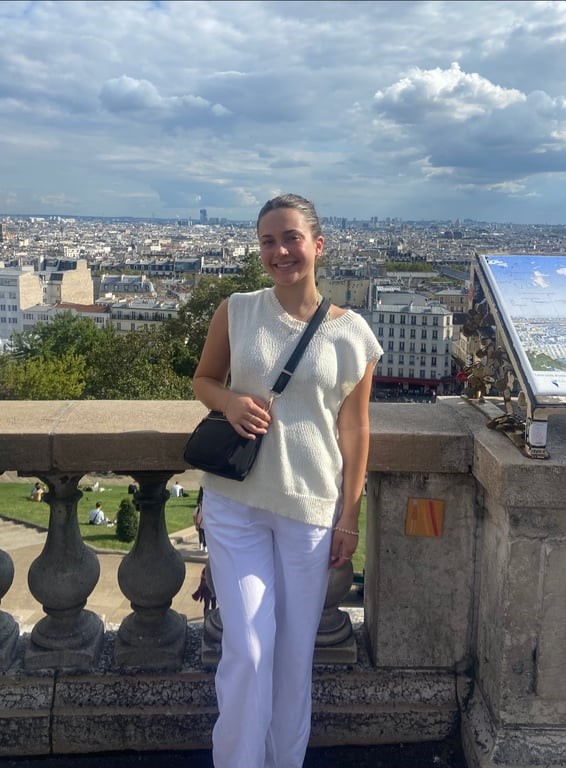
Madeline Harris
what's one story or important aspect you always share about your time abroad?
Studying abroad provided me with a profound insight into a different pace of life. Being immersed in a new culture allowed me to view the typically task-oriented, fast-paced American lifestyle from a vantage point I wouldn't have otherwise considered. Now that I've returned home, I'm grateful for the opportunity to carry this newfound awareness with me. This experience abroad not only broadened my cultural understanding but also reshaped my priorities, emphasizing the significance of a more balanced and fulfilling approach to life.
how did you engage with the local community while abroad?
I actively immersed myself in my local community in France by taking steps to understand and connect with the people around me. Embracing the French way of life, I tried adopting their behaviors, which included visiting local markets supporting nearby businesses. One memorable cultural experience was attending 'La Descente des Alpages,' a parade dedicated to celebrating Alpine customs and gastronomy.
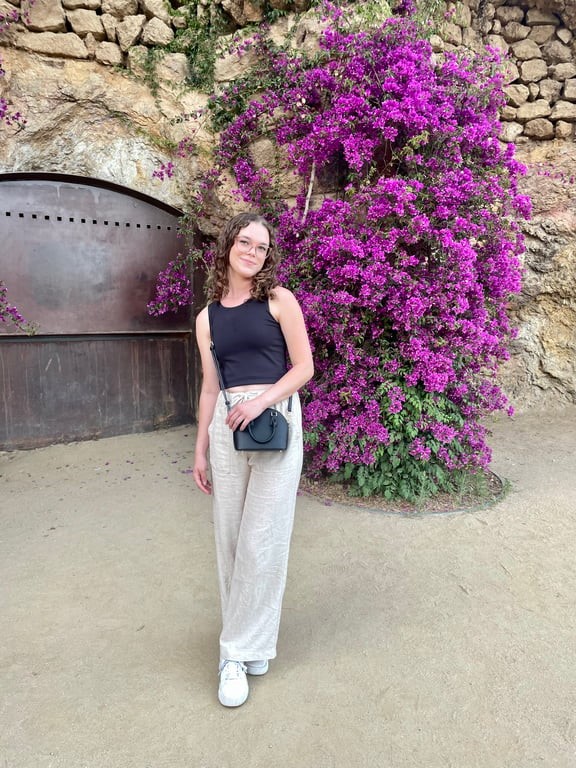
Madisen O'Brien
HOW DID YOU ENGAGE WITH THE LOCAL COMMUNITY WHILE ABROAD?
While in Barcelona I engaged in the local community in various ways. One of my favorite memories was seeing and experiencing Sant Joan, which recognizes the first night of summer. All the locals surround themselves with friends and family to celebrate throughout the night.
WHAT'S ONE STORY OR IMPORTANT ASPECT YOU ALWAYS SHARE ABOUT YOUR TIME ABROAD?
I will always tell people about the connections I made while studying abroad. I had the most amazing roommates, coworkers, and neighbors while in Barcelona. We did not know each other prior, but became friends instantly. They made my abroad experience even more enjoyable and memorable.
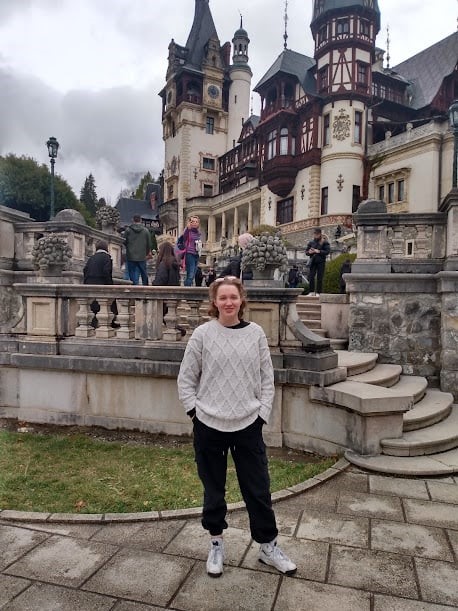
Maggie Matthews
WHY WAS YOUR CEA CAPA PROGRAM THE RIGHT FIT FOR YOU?
My CEA CAPA program, the study + internship abroad in Prague, was the right fit for me as it was at the intersection of my major, my professional, and personal interests. I specialize in Post-Soviet European diplomacy and security, so being able to work and study in Prague was a dream. Plus, I have a great interest in traveling though out Eastern and Central Europe, so having a homebase in Prague was great.
IF YOU COULD PICK ANOTHER CEA CAPA PROGRAM (BESIDES YOURS) WHICH ONE WOULD IT BE AND WHY?
If I could pick another program it would be the study + internship abroad in Aix-en-Provence, France program. I'd want to go to practice my French skills while also pursuing an international internship. The courses on art history, international relations, and cultural studies are also of great interest to me. Aix-en-Provence is also in a beautiful region that'd be amazing to travel in.
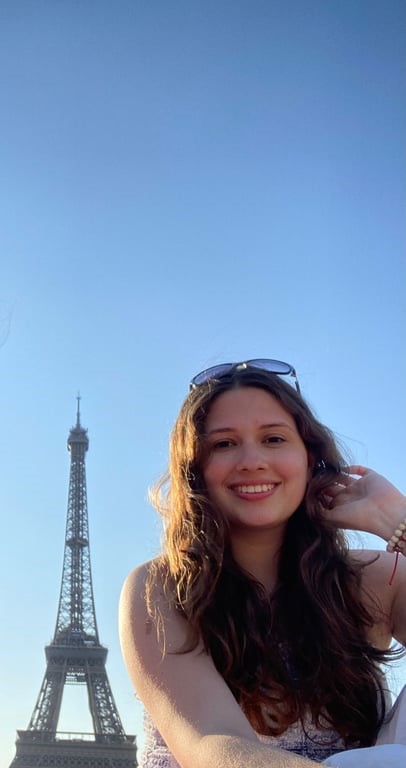
Maria Basaldua Del Cid
HOW DID YOU ENGAGE WITH THE LOCAL COMMUNITY ABROAD?
During my time in Paris, the first thing I did was trying to speak as much French as possible at restaurants and shops and avoiding starting the conversation in English. I did this and it improved my comprehension level. I also believe it's respectful to not assume that they should respond to you in English without giving the language a try.
WHAT'S ONE STORY OR IMPORTANT ASPECT YOU ALWAYS SHARE ABOUT YOUR TIME ABROAD?
I encourage people to be open minded about the culture of the place you are visiting and not be scared by differences because there's always things you could learn from them. This is one of the best ways to grow as a person and take advantage of your experience.
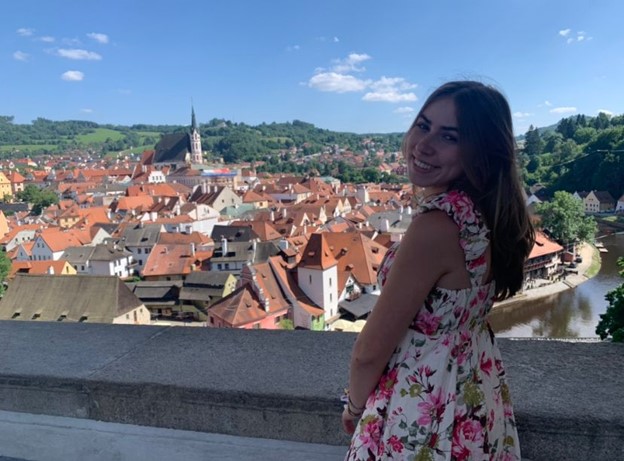
Mariana Pardo
How did you engage with the local community while abroad?
One of the ways I would engage with the local community was by going to local farmers markets and stores where I interacted with locals. Living in Prague 2 (not the tourist area) while abroad put me out of my comfort zone and communicated with others in a completely different language. I navigated myself well in these situations because I'd try as much as possible to express myself to people with the little Czech I learned.
What's one story or important aspect you always tell people about your time abroad?
An important thing to do while studying abroad is to travel as much as you can. In Europe it's very easy to travel, so if your study abroad program is in Europe take advantage of that. I really enjoyed exploring new cities and countries that I never thought I'd visit.
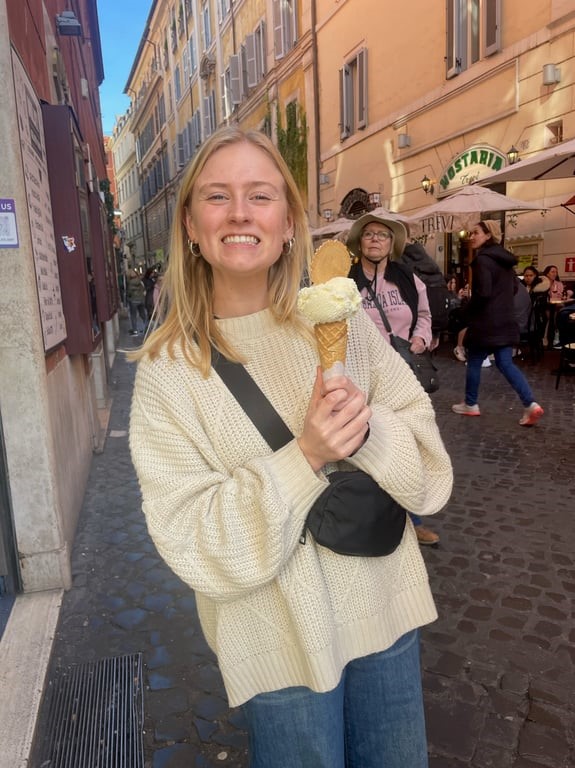
Mary Grace Powers
what was your favorite class while abroad, and why?
I really enjoyed my Museums class and being able to have a framework to see the art and the museum as a whole
what's one story or important aspect you always share about your time abroad?
Put yourself out there, put your phone away, and talk to the people you meet along the way.
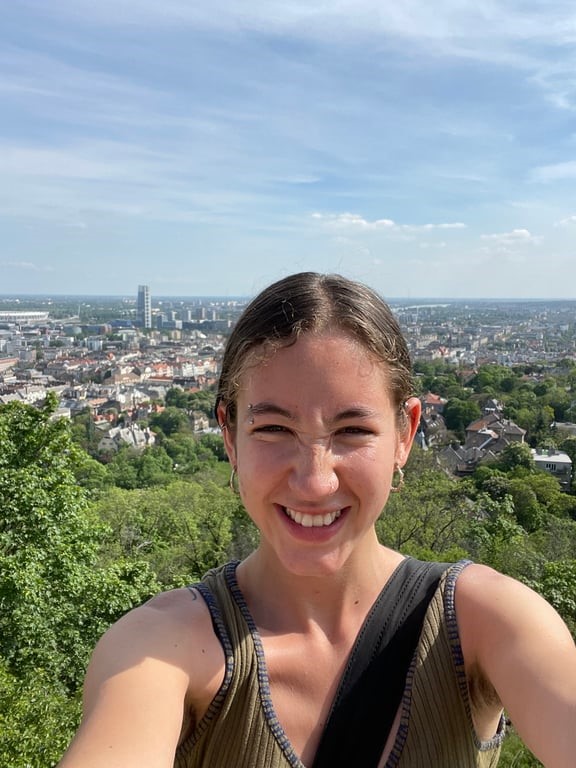
Maya LePique
WHAT'S ONE STORY OR IMPORTANT ASPECT YOU ALWAYS SHARE ABOUT YOUR TIME ABROAD?
I always tell people that I fell in love! During my time studying abroad, I made lots of valuable friendships, and all of my roommates were great. But what was most special to me was developing a relationship with a person, falling in love with them, and experiencing all of this wonderful city with them. We both moved back to the U.S. after our semester, and next year we're moving in together.
HOW DID YOU ENGAGE WITH THE LOCAL COMMUNITY WHILE ABROAD?
A few of my classes were cultural, which enabled me to engage with the community through them. I learned about Czech authors, painters, and politicians. Many of the classes we had involved trips, during which we walked around Prague and learned about its history. CEA CAPA also provided us with a couple of excursions during which we visited nearby cities and learned about their history. On my own time, I walked around a lot, and tried to use my Czech language class to interact with shipowners. I became a local at my favorite cafe's and restaurants, and tried to be as outgoing as possible so that I could meet new people.
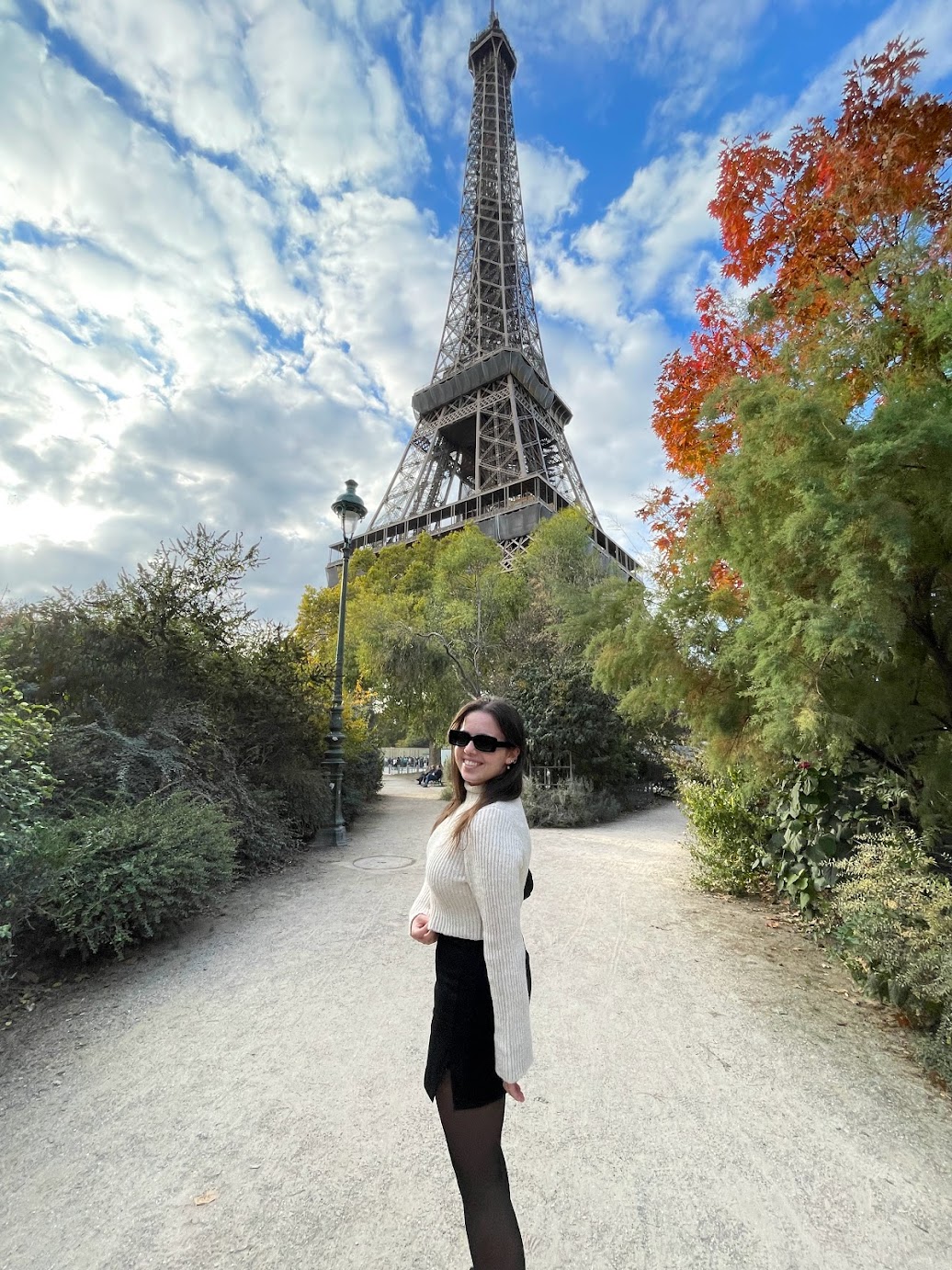
Maya Mehlman
WHAT DO YOU APPRECIATE MOST ABOUT CEA CAPA EDUCATION ABROAD?
CEA CAPA did an incredible job of integrating us into the program. The staff was super welcoming and made sure that we felt comfortable coming to them with any concerns. The entire first week in Seville was dedicated to making sure we knew our way around and working out our schedules. They also integrated many cultural activities for us to do throughout the semester to make sure that we experienced all that we needed to experience. Lastly, I very much appreciated that while we were in Spain to study abroad, the CEA CAPA staff also wanted us to travel and experience different cultures.
HOW DID YOUR STUDY ABROAD EXPERIENCE IMPACT YOUR PERSONAL AND PROFESSIONAL GROWTH?
Before studying abroad I thought I had it all planned out- I wanted to move to the east coast and get a job in media. However, studying abroad has completely changed my way of thinking. I now want to pursue a job overseas while also experiencing the world and other cultures.
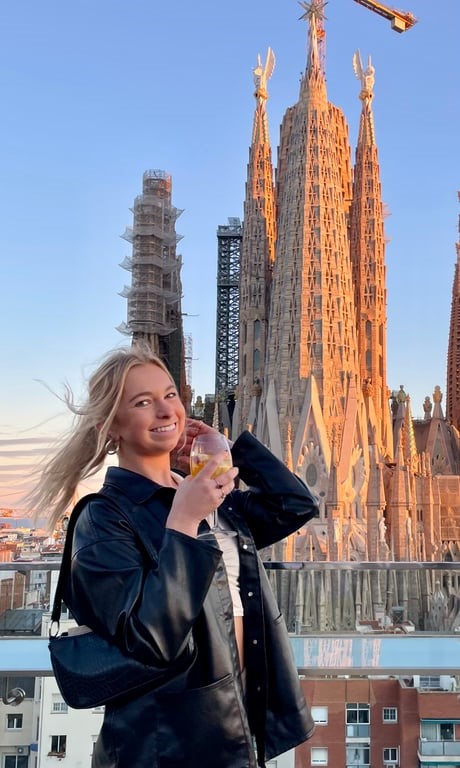
McKenna Miller
what was your favorite class while abroad, and why?
During my international marketing class, we visited a few businesses and manufacturers in Barcelona and learned about their international production process. I grasped how marketing works at an international level. This was a valuable opportunity to gain practical insights and to broaden my global perspective.
how did you engage with the local community while abroad?
I participated in the CEA CAPA language exchange while in Barcelona. Participating in the Spanish language exchange was a rewarding experience that helped improve my language skills while helping someone else learn my native language. My partner was also hilarious and very personable!
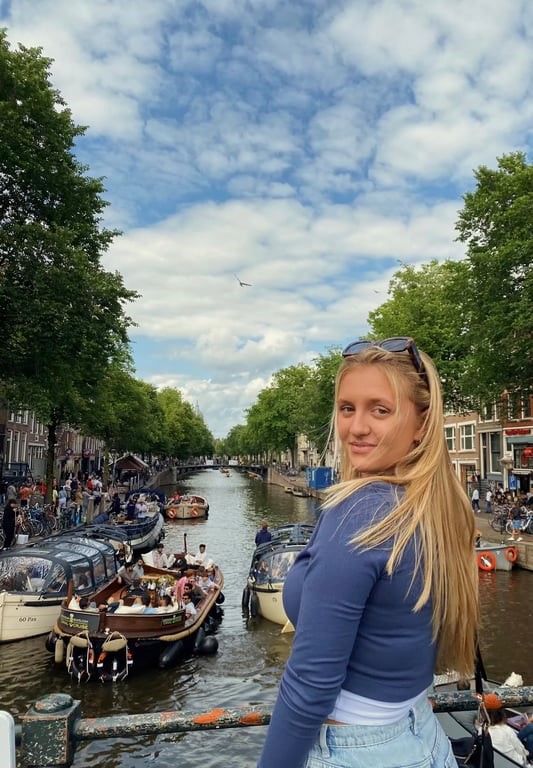
Melisa Vukovic
what's one story or important aspect you always share about your time abroad?
I always tell people about my time biking around Veluwe National Park. It was a great break from the crowds of Amsterdam and truly made me appreciate the Netherlands more as a whole. I enjoyed the scenery greatly and found it very interesting how biking was a large part of the culture in the Netherlands.
what was your favorite class while abroad, and why?
I took an International Criminal Justice course and it was absolutely amazing, I'm a Political Science student who plans on attending law school. International law and relations has always been an interest of mine, and this class was the perfect crossover. Our excursions consisted of visiting the International Criminal Court and Kosovo Security Chambers. My professors were very experienced in the International Law department and gave amazing insight while listening to their students.

Melissa Pena
what's one story or important aspect you always share about your time abroad?
It's not a journey suitable for everyone. Studying abroad demands courage, effort, and determination. Yet, once you've arrived to your destination, the sense of achievement is beyond words. Achieving this goal is truly remarkable. Looking back, I take immense pride in my decision to go abroad and place myself in challenging situations because I experienced tremendous personal growth.
how did you engage with the local community while abroad?
I actively connected with the local community in Florence by choosing to walk everywhere, making my presence felt wherever I went. I have a deep appreciation for observing my surroundings. I frequented parks, museums, and shops, where I sat and closely watched people's actions, finding it both captivating and entertaining. I often initiated conversations, seeking to forge connections and learn more about the people I met.
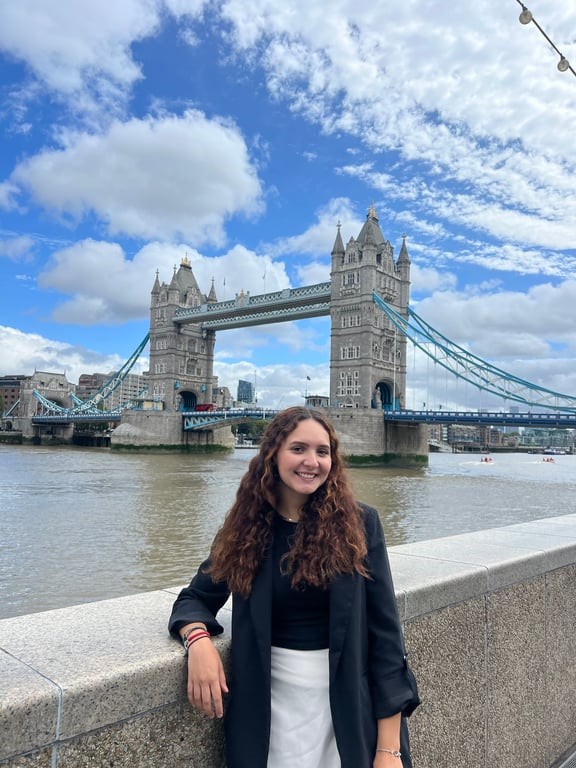
Michelle Bermea
what's one story or important aspect you always tell people about your time abroad?
It's really scary at first but it is 100% worth it. Don't let fear get in the way of experiencing something amazing.
how did you engage with the local community while abroad?
I did work in coffee shops and went out with locals.
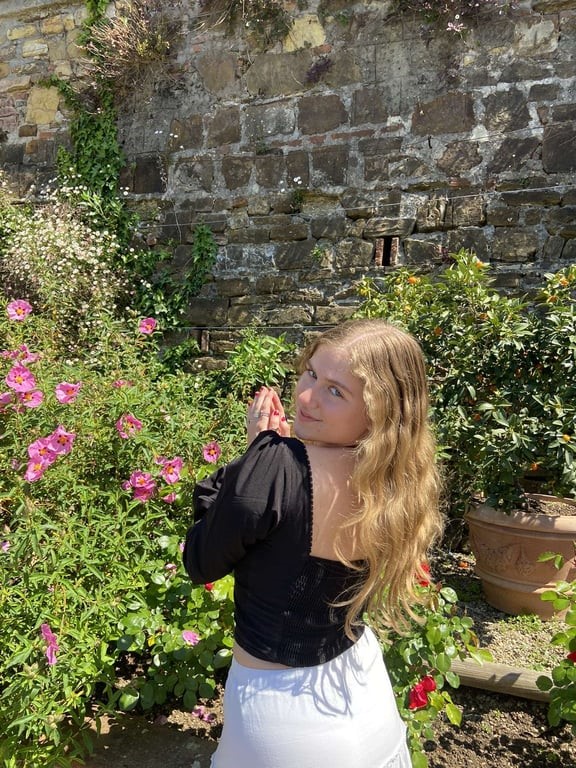
Michelle Silver
WHAT'S ONE THING ABOUT CEA CAPA YOU THINK EVERYONE SHOULD KNOW?
I became a regular at a few shops, and ending up becoming pretty close with many of the store owners.
WHAT'S ONE STORY OR IMPORTANT ASPECT YOU ALWAYS SHARE ABOUT YOUR TIME ABROAD?
My roommate and I were a match made in heaven. Two blonde psychology majors. She really made my experience so much better, as many people were struggling with their housing assignments. I was very lucky to get a roommate that was so perfect for me. We picked all our classes together and now I don't go one day without seeing her. So thankful CEA CAPA gave me my best friend!
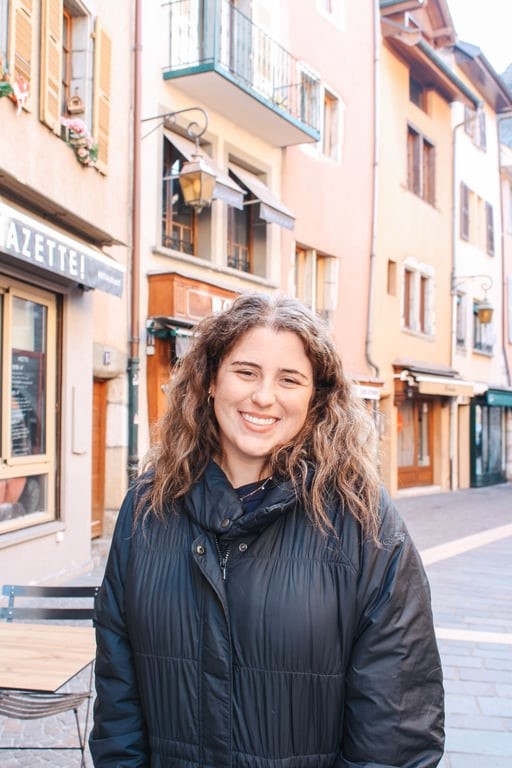
Molly Ball
WhAT was your favorite class while abroad, and why?
My favorite class I took when I studied abroad in France was an international business course. This course was one that I looked forward to attending weekly. The class was full of people from all over the world and so when talking about business in other countries outside the U.S., it was so amazing to get to hear first hand knowledge from people actually living in those places. I feel like I learned so much, not just from the teacher, but from all my peers giving their life experience.
HOW did you engage with the local community while abroad?
While abroad, one of my favorite ways to engage with the local community was to become "regulars" at various cafés. Taking time out of my day to pick a small café and just sit down and talk to strangers or observe always led to good conversation in the most unlikely of places. I also found that just spending lots of time outside or at the beach helped facilitate that local engagement while I studied abroad.
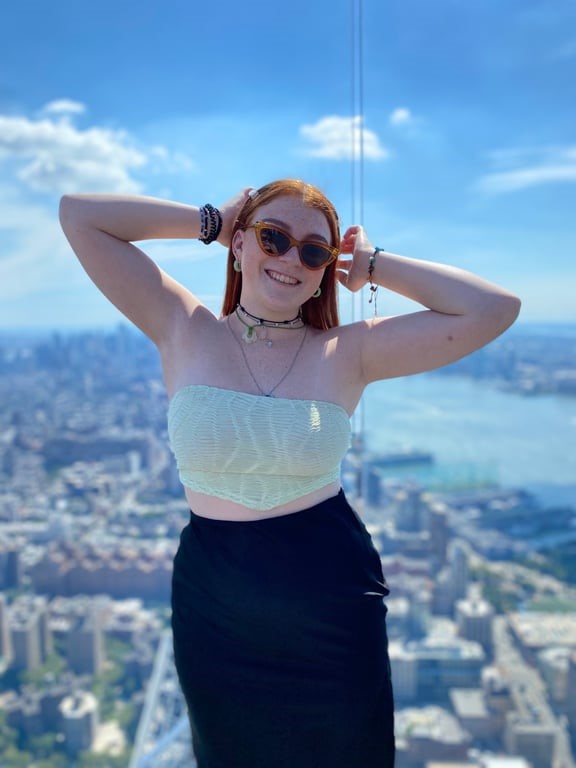
Morgan McCourt
WHAT'S ONE THING ABOUT CEA CAPA YOU THINK EVERYONE SHOULD KNOW?
The director that's onsite ensures that you have all the resources you need and beyond! We had scheduled activities where he would show us a richer history of Amsterdam!
WHAT'S ONE STORY OR IMPORTANT ASPECT YOU ALWAYS SHARE ABOUT YOUR TIME ABROAD?
One story I always tell people about is the day of King's Day in Amsterdam. It's an annual celebration of the King's birthday where everyone wears orange and floods the streets to celebrate. It was so amazing be part of such an important day in the Netherlands' culture.
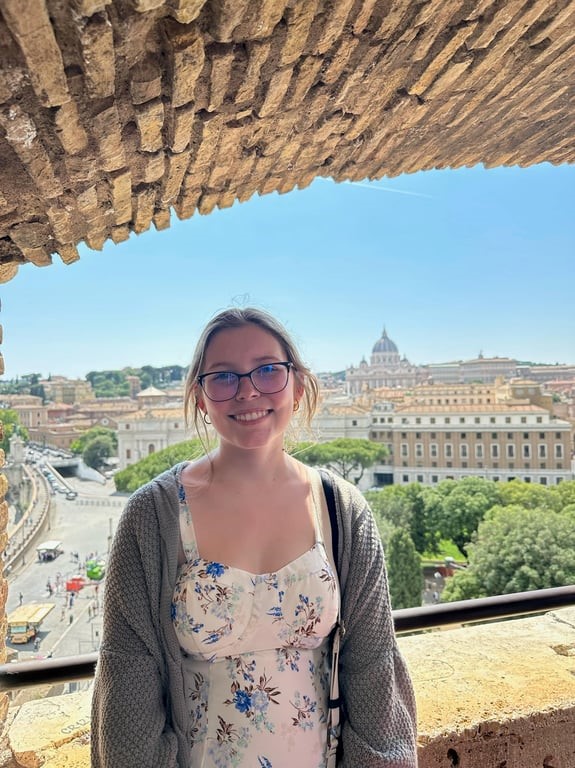
Mya Cuper
why was your CEA CAPA program the right fit for you?
Rome was the perfect fit because it offered the right classes for me to take at the time, and taught me more about a language and culture I was interested in.
what's one story or important aspect you always tell people from your time abroad?
One story I like to tell is when I tried to go to the beach with my roommate, but unfortunately we didn't plan it out very well and found out after we got off the train that we were still a two hour walk away from the beach in a pretty rural area. Luckily, there were some really kind people who explained the local bus system and helped us get a taxi. When the taxi driver dropped us off he gave us directions and was also very friendly and helpful. What could've been a pretty rough day ended up working out fine and was lots of fun because of the kindness of a handful of people.
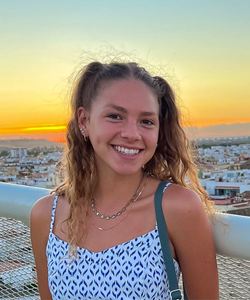
Natalie Burns
What do you appreciate most about CEA?
One thing I appreciate most about CEA CAPA is the staff’s evident desire for program participants to succeed. As a recent graduate entering the program, I lacked experience & struggled with confidence in the workplace, which was very unfamiliar to me given my previous remote internships & education. CEA CAPA’s unwavering & outspoken belief in my capability propelled me to put myself out there without fear of failure. If not for the staff that managed my application process, I may never have followed through with the opportunity to study abroad at all.
How did your study abroad internship impact your professional growth?
My internship colleagues, program peers, & the remaining assortment of individuals I came across while abroad endowed me with an immense volume of knowledge & are valuable contacts to have to collaborate with on shared objectives. I gained a greater understanding of the female sports industry, which opened my eyes to a future career altogether, & of the various cultures, demographics, & backgrounds of young girls who I met through my internship, which solidified my foundation with regard to the social issue at hand. Undoubtedly, this will help me in the future as I continue to advocate for gender equity & equality.
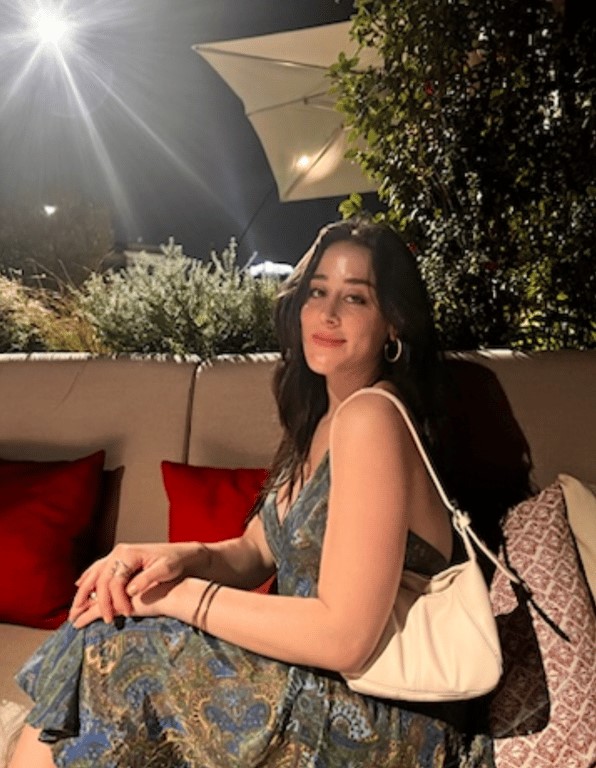
Nikki Weinstein
WHAT'S ONE THING ABOUT CEA CAPA YOU THINK EVERYONE SHOULD KNOW?
The staff and professors at CEA CAPA are there to help you and support you in any way you need. I learned throughout my time there that they know you're living far away in a foreign place from your home and they want to help you with any issues that may arise. There are also a lot of amazing trips that are organized that should be utilized and many incentives for different things. For example, I entered a raffle and I got a gift card to Honest Greens, my favorite lunch place. That was a lot of fun and you'll be so happy in anything you decide to participate in.
WHY WAS YOUR CEA CAPA PROGRAM THE RIGHT FIT FOR YOU?
I'd chose studying abroad in Barcelona 10,000 times over again. I had the most amazing months of my life there. I found so many benefits to studying there from cheap flights to travel from Barcelona compared to other destinations, to amazing food of all kinds especially obviously Tapas. I loved being in the Spanish culture and learning more about it as well. I also loved the layout of the city and the simplicity of getting on a train easily if I wanted to go to Madrid for example. I also loved the lifestyle of a more leisure life that ended and started later and was more relaxed than in the U.S.

Nina Balestieri
WhAT WAS YOUR FAVORITE CLASS WHILE ABROAD, AND WHY?
I took HR Management at the Universitat Autónoma de Barcelona. This was my favorite class because everyone in the class was from all around the world. This class offered a lot of different perspectives and as students we were able to learn from one another.
HOW DID YOU ENGAGE WITH THE LOCAL COMMUNITY WHILE ABROAD?
I went to my local coffee shop almost everyday and got to know the owner and his family. I signed up for the tours that CEA CAPA offered where we got to learn about the community. For example, CEA CAPA offered a graffiti tour where we learned about the importance of street art in Barcelona.
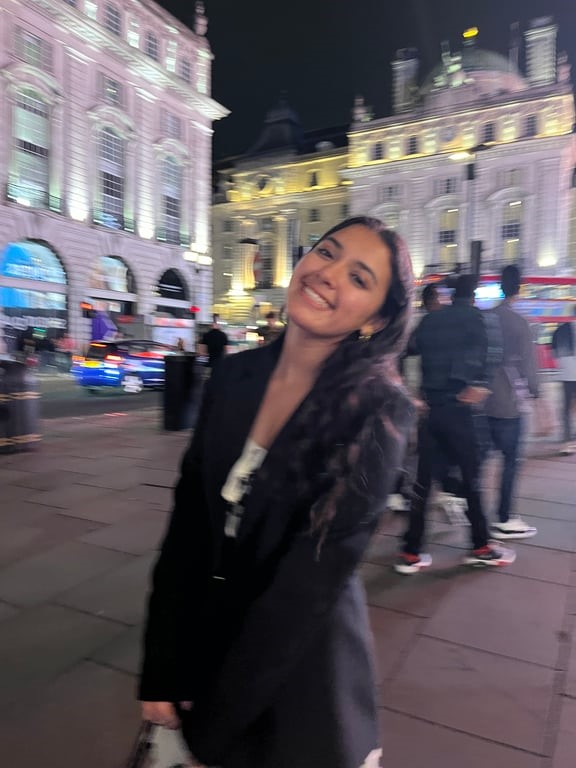
Nyssa Alvarado
how did you engage with the local community while abroad?
Living with a host family gave me direct connections to the local community. I met many of the family members and even walked their daughter from school one time. Living with them greatly improved my Spanish and therefore made it easier to communicate with the local community, I even made friends with Spaniard students at the University!
what's one story or important aspect you always tell people about your time abroad?
I always tell people about my time in Morocco. The people were so kind and the country is so rich in culture, but I got food poisoning from the trip. Thankfully I experienced the worst of it in Spain, and I tell everyone that the sickness was worth everything I saw and experienced in Morocco.
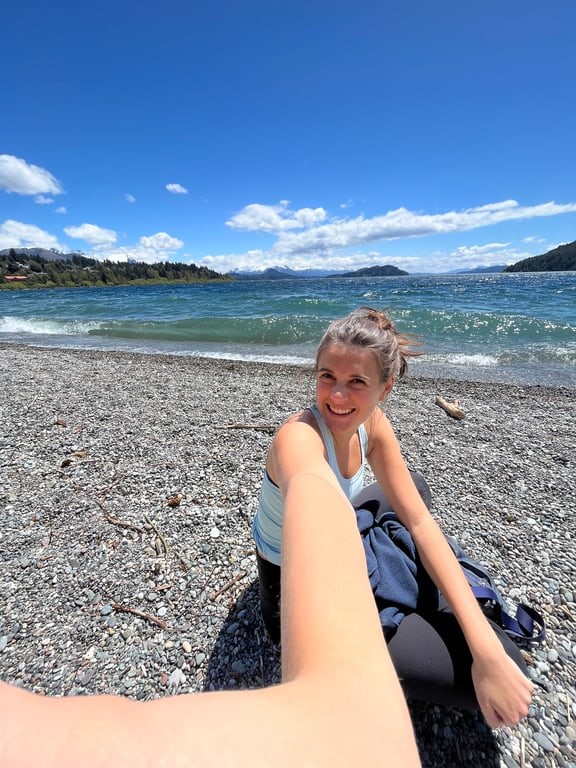
Olivia Everitt
how did you engage with the local community while abroad?
I lived with a host family while studying abroad and that was the best decision I ever made! My host mom took me on weekend trips to her farm an hour outside of Buenos Aires and we had asado with her friends and family. We went grocery shopping together and to farmers markets on the weekend. I also had a host brother and went to a soccer game with him and his friends. Other than my living situation, I attended local events (music shows, school trips, etc.) where I met lots of locals and learned more about the Argentine culture!
what's one thing about cea capa you think everyone should know?
The study abroad excursions put on by the onsite staff are incredible - a mix of fun and cultural learning experiences that are very well planned and thought out.
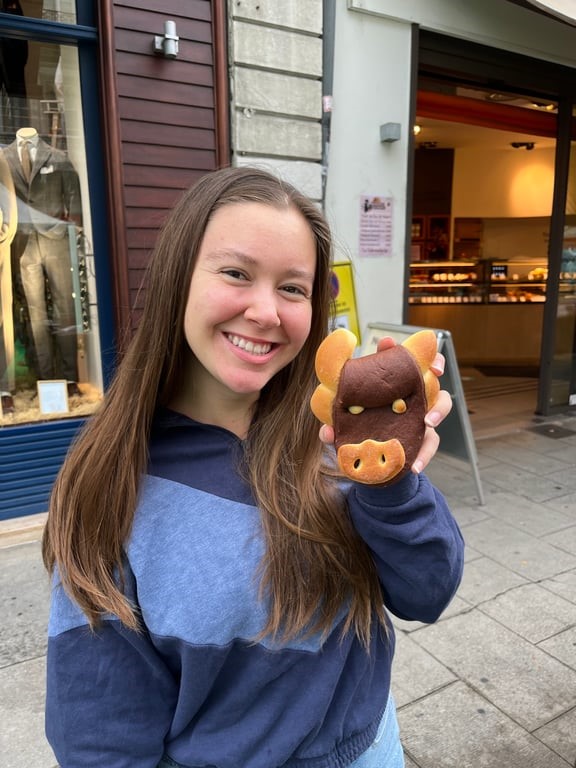
Olivia Stanton Moretzsohn
IF YOU COULD PICK ANOTHER CEA CAPA PROGRAM (BESIDES YOURS), WHICH WOULD IT BE AND WHY?
If I could pick another CEA CAPA program, I'd definitely pick Seville, Spain, because when I was originally deciding between programs, I was torn between that one and Grenoble, France (which I ended up choosing and LOVED). I love the options of courses offered in the Seville program because they are very unique to the area, such as Spanish Cinema, Food and Culture in Spain, and Seville: the Expression of a City through its Art.
WHAT'S ONE THING ABOUT CEA CAPA YOU THINK EVERYONE SHOULD KNOW?
Take advantage of the activities and trips that CEA CAPA plans, because I saw so many cool places that would've never crossed my mind to visit, and I tried a lot of new food as well as new activities. CEA CAPA is there to help make everyone's study abroad experience the best that it can be, and saying yes to any opportunity to try something new always ends up paying off.
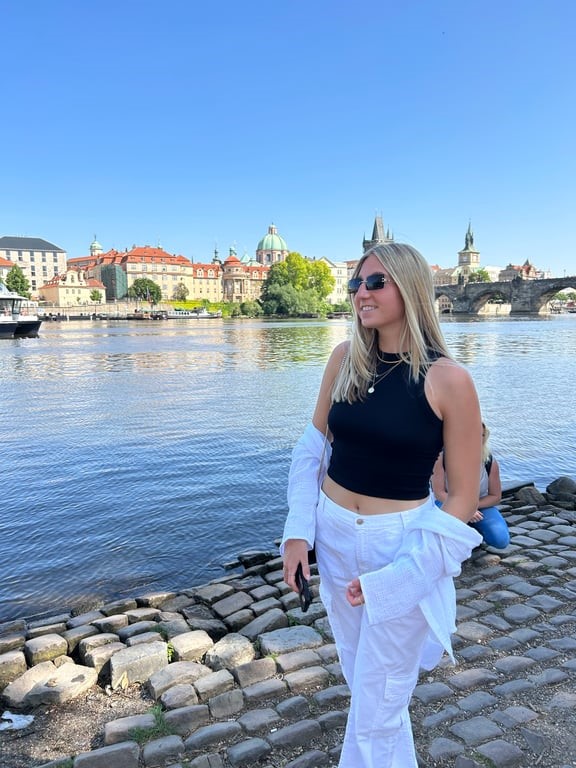
Parker Peterson
what's one story or important aspect you always share about your time abroad?
Don't take your time in your city for granted! It's so easy to want to travel around and see other places, but also enjoy your time in your home city! Make sure to go out and see all the important sights, try new restaurants and cafès, explore parks, and really see what the city has to offer. Especially when you have class all day, it might be hard to get out and explore, but it's so important to do!
how did you engage with the local community while abroad?
Czech is very different from English, but I learned basic words like "hello" and "thank you" and used them whenever I could! My friends and I often went to our local park and beer garden and watched the sunset, which is what many of the locals do, and we really felt immersed in the community! I also tried traditional Czech cuisine, went to different history museums, and more, and this all helped me feel more engaged in the local community.
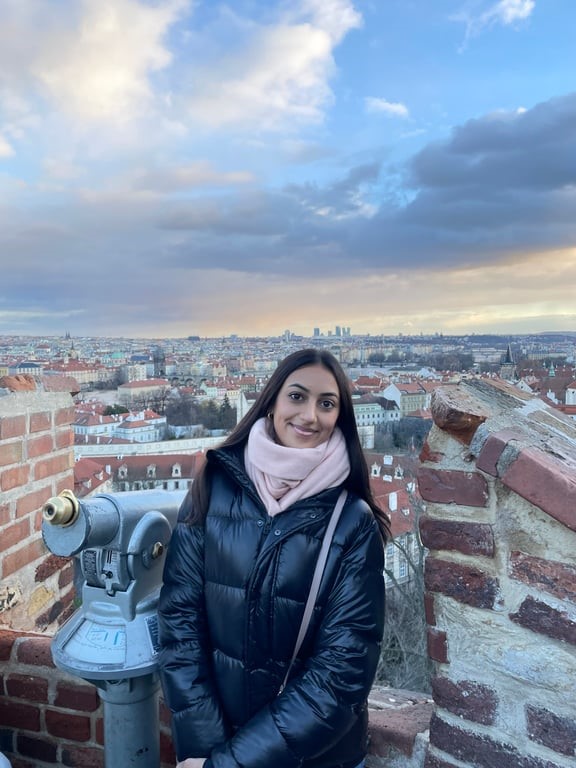
Priya Gulati
what's one story or important aspect you always share about your time abroad?
I always tell people about how great it was to travel to other places while I studied abroad in Prague. It was so eye-opening getting immersed in one culture and then experiencing other ones for small bits of time on weekend trips. I learned so much about different countries' customs and traditions even in the short amounts of time I visited them for. It's truly an unimaginable opportunity to be so close to so much history and culture, and I was so grateful to tap into that by taking weekend trips and a longer spring break trip.
how did you engage with the local community while abroad?
I studied at a school and met lots of people who were full-time students in the Czech Republic. I learned alongside people of many different walks of life, lots of whom were Czech, and many who were not as well. Additionally, during my time abroad I lived in an apartment about 15 minutes away from my school and the CEA CAPA Prague Study Center. By living in an apartment I really immersed myself in the culture and learned a few basic phrases so that I could go to the grocery store, grab coffee around the corner, go to the laundromat, and do other things of the sort.
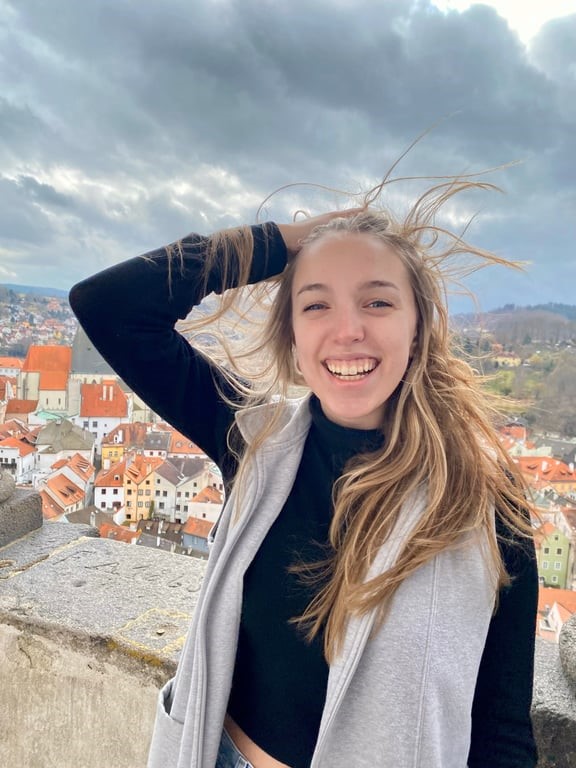
Rachel Perri
What's one thing about cea capa you think everyone should know?
If you wonder how often you'll interact with the local culture, CEA CAPA provides many opportunities for experience. By offering classes with field work or excursions or organizing trips and activities outside of academics, CEA CAPA ensures that you get to know the city you're studying abroad in and locals living there.
Why was your cea capa program the right fit for you?
The Prague study abroad program was definitely the right fit for me. Compared to some other popular places like Amsterdam, Florence, and Barcelona, Prague is a much smaller and less dense city. But its smaller size made the transition from suburban living to city living much more pleasant. I walked from my neighborhood through a beautiful park to school in 25 minutes, and across a bridge to the city center in 15! And the architecture everywhere was a sight to see. Despite the mostly cloudy weather, living in Prague felt like living in a fairy tale.
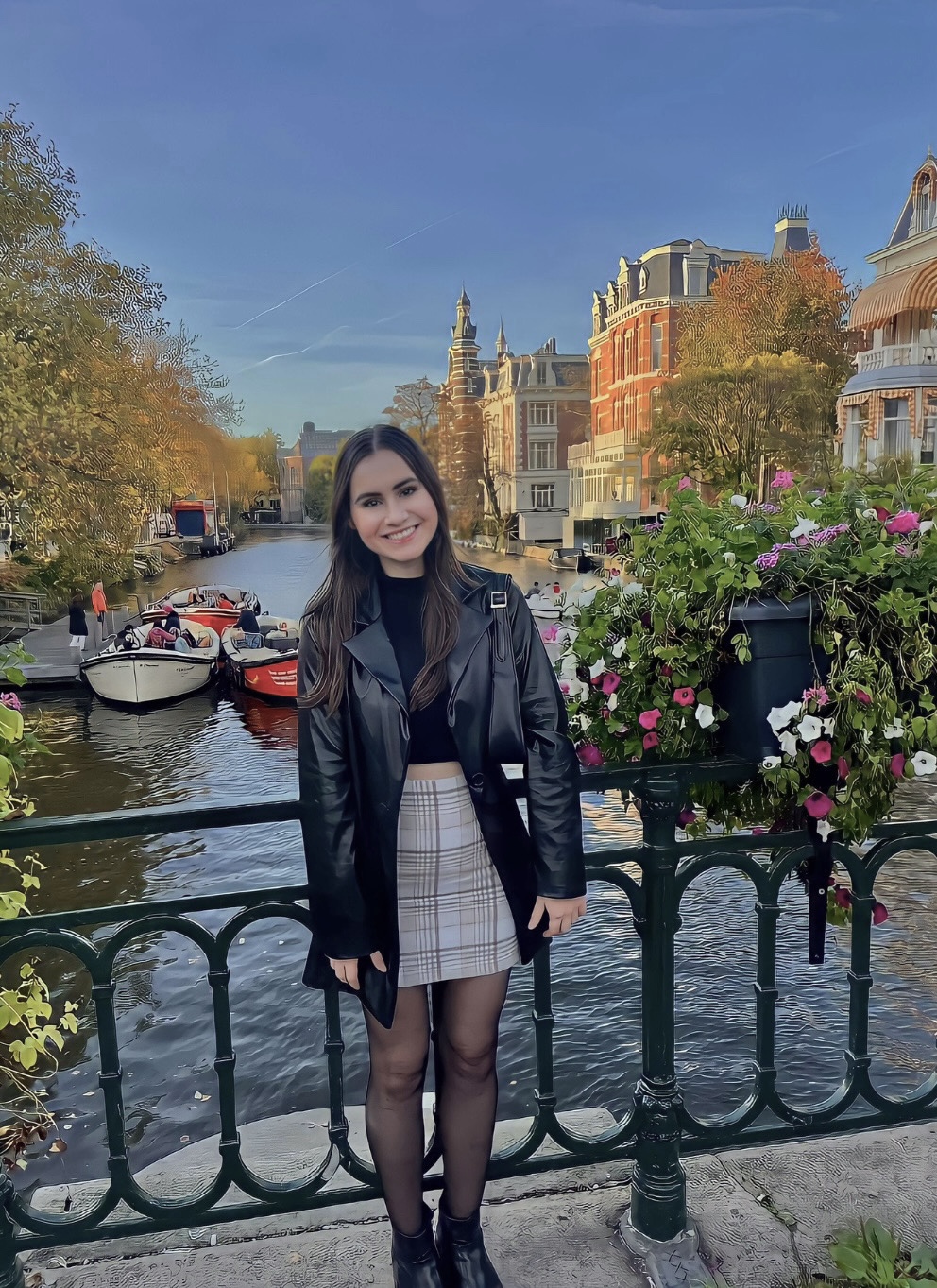
Rebekah Batu
WHAT DO YOU APPRECIATE MOST ABOUT CEA CAPA EDUCATION ABROAD?
CEA CAPA is willing to do whatever it takes to help students in whatever way they can.
HOW DID YOUR STUDY ABROAD EXPERIENCE IMPACT YOUR PERSONAL AND PROFESSIONAL GROWTH?
While studying abroad in Prague with CEA CAPA, I learned so much about international law and government that I will utilize when I eventually become an international lawyer.

Reece Cunningham
WHAT'S ONE STORY OR IMPORTANT ASPECT YOU ALWAYS SHARE ABOUT YOUR TIME ABROAD?
I always share how lucky I got with my roommate! I met a lot of great lifelong friends while abroad but I got super blessed with my roommate, Lily! I decided to study abroad alone without any friends from home. I knew it'd get me out of my comfort zone and help me grow if I went on my own. It was so awesome being in an apartment with five other girls from across the U.S. My roommate and I ended up having so much in common and we had a blast the whole time we were abroad! I never would've met all the amazing people I did without studying abroad!
WHAT WAS YOUR FAVORITE CLASS WHILE ABROAD, AND WHY?
My favorite class my marketing class! My professor was so cool and had a lot of personal experience with business and marketing. He made the classes super engaging and fun to go to. It was nice to have a smaller class size because it felt more personal and we got to know our classmates.
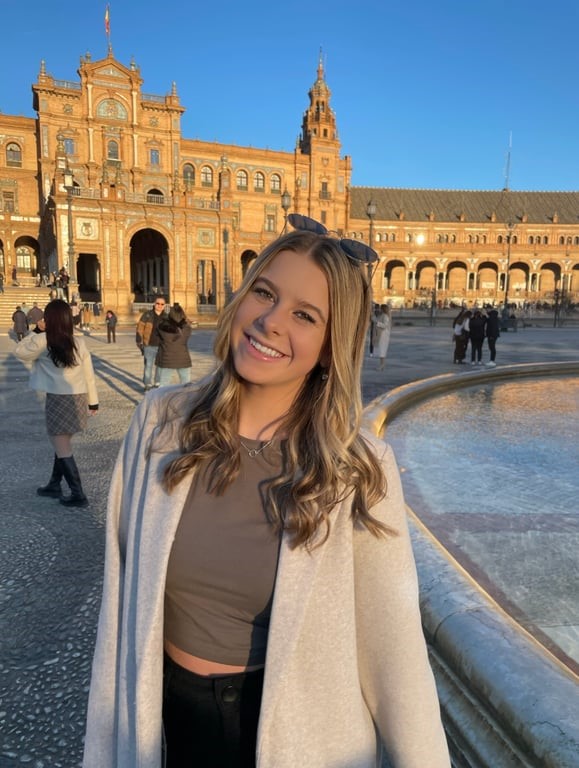
Regan Amirault
WHAT'S ONE THING ABOUT CEA CAPA YOU THINK EVERYONE SHOULD KNOW?
I think everyone should know how helpful and supportive CEA CAPA is. CEA CAPA will always help you, no matter how small or big the problem is.
WHY WAS YOUR CEA CAPA PROGRAM THE RIGHT FIT FOR YOU?
My CEA CAPA program in Seville, Spain was the right fit for me for so many reasons. With my history of taking Spanish, I knew I wanted to study abroad in Spain. Growing up in California, I love the sun and warm weather and really loved living in such a walkable city because I love being outdoors! I met some amazing locals and had some of the best memories in this beautiful city.
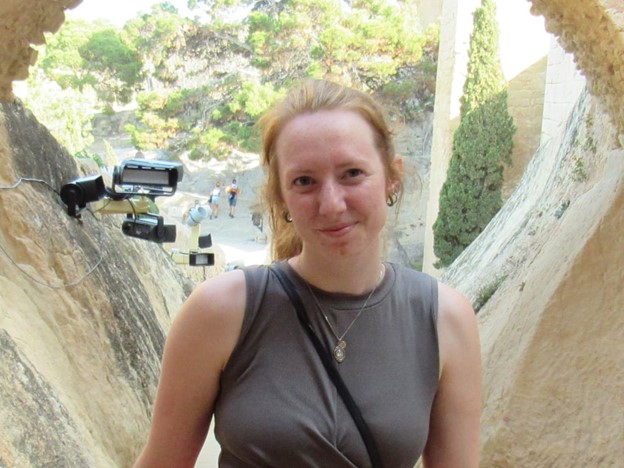
Rhian Tramontana
what was your favorite class while abroad, and why?
My summer class was an intensive Spanish language course for students with Spanish as a second language. It was fascinating to see how others interpret words and phrases commonly used in Spanish or English. In addition, I had a lot of time to interact with classmates and learn about their experiences while using Spanish. I've never learned so much in one month than when I studied abroad in Alicante. Plus, our teacher was fabulous and always gave us recommendations of things to do and places to go!
how did you engage with the local community while abroad?
My favorite way to engage with the local community was to talk about food. Any time I went to a restaurant, I asked about recommendations, or I'd try new coffees that staff loved. Even in class, I always asked about cultural favorites and unique dishes so that I had a topic to discuss and ask questions about when going out to eat.
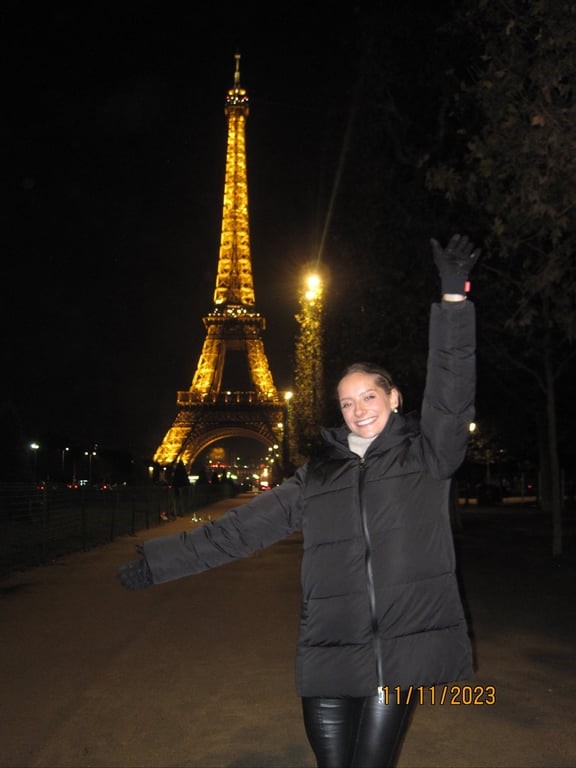
Riley Pruser
WHAT WAS YOUR FAVORITE CLASS WHILE ABROAD, AND WHY?
My favorite class while studying abroad was Luxury Strategic Service and Product Management. I really enjoyed this class and learned so much. At my home university there are no business classes like this one offered and I loved learning about business from a luxury aspect.
HOW DID YOU ENGAGE WITH THE LOCAL COMMUNITY WHILE ABROAD?
I lived in old town Antibes, France when I studied abroad in the French Riviera. 'Old Town' was the part of the city where everything was walking distance and there were many restaurants, cafés, shops, and the old buildings along with cobblestone streets. There was always something to do and I often went to this one coffee shop when I needed to study for class or just to hangout and it was like I became a regular there. I also liked going for walks or runs on the promenade and and it was such an amazing place to live.
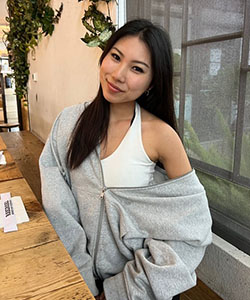
Rin Tanaka
What's one thing about cea capa you think everyone should know?
CEA CAPA helps you along the application process and during your time studying abroad so you don't feel overwhelmed or alone!
What's your advice for future study abroad students coming to your host city?
Learn a little basic phrases even if you don’t speak French perfectly. It definitely helps to let the locals in Paris know that you want to learn their language and their culture!
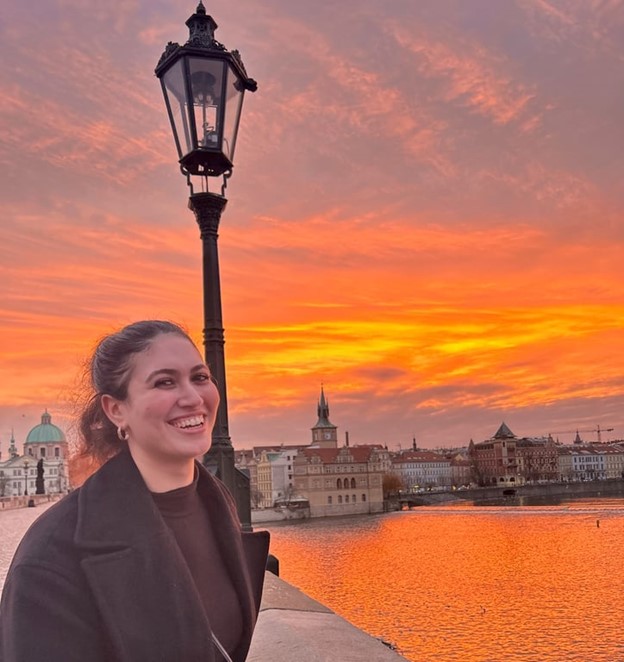
Risa Kalish
what was your favorite class while abroad, and why?
My favorite class was The Jewish Experience in Prague. I saw a whole other side of Prague through this class, but the professor Robert Rehak, made it the most memorable. He was so engaging and took us on many CEA CAPA excursions where we engaged with the community and learned the history. We even heard a holocaust survivor share her story in her own home. This Prague study abroad class was so meaningful.
how did you engage with the local community while abroad?My favorite way to engage with the local communities was going to local farmers markets. I also went to local coffee shops and bars and tried ordering in Czech. Locals were also very friendly and patient with me as I tried to speak Czech with them.
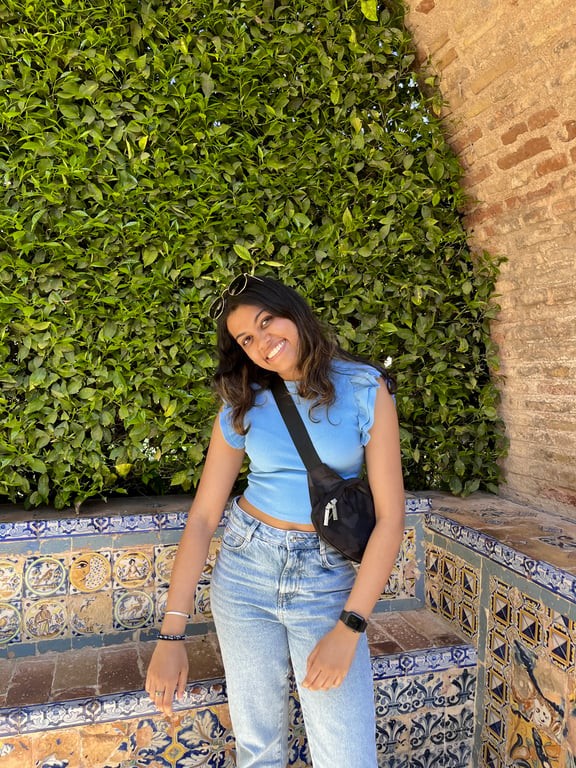
Ritika Thope
CEA CAPA has incredible professors and staff that are all very engaging, supportive and knowledgeable in the field. Throughout my four months abroad, I constantly felt supported and knew that I could reach out with any concerns at any point.
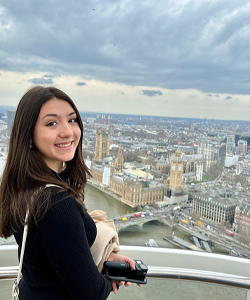
Rose Alexander
How did you engage with the local community while abroad?
Every Thursday and Sunday I went to the local markets in Seville. The culture of Spanish markets is so special and there is so much to learn every time you go. I would bring my camera and photograph everything I saw and would talk to every worker at each stand. It meant so much to me that they shared their experiences and it also meant a lot to them that I was curious to learn more.
What is one story or important aspect you always share about your time abroad?
One story I always tell people about my time abroad is about the time a train broke down on our way to our weekend vacation in Málaga. It was around 6 a.m. and it was still pitch black outside when we departed. After only 20 minutes on the train, it came to a sudden halt - the lights turned off, the doors were locked, and the train sunk into the tracks. My friends and I were all so confused and scared because no one knew what was happening. Since it was so early in the morning, all of us were delirious and despite being scared, it was really funny and something we look back on and joke about now. After another 30 minutes, the train was back up and running and we made it to our destination safe and sound. We ended up having one of he best vacations ever with permanent stomach aches from all the laughs and jokes we had.
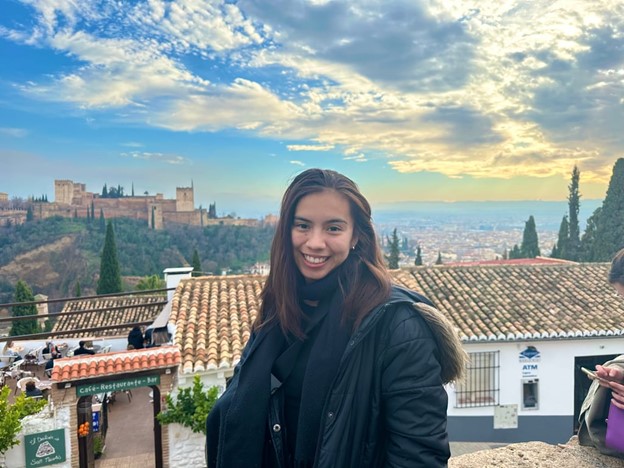
Rylee Camp
I'd choose the CEA CAPA program in Madrid! Although Madrid is the capital of Spain, I didn't end up visiting it so I'd love to explore more of that city!
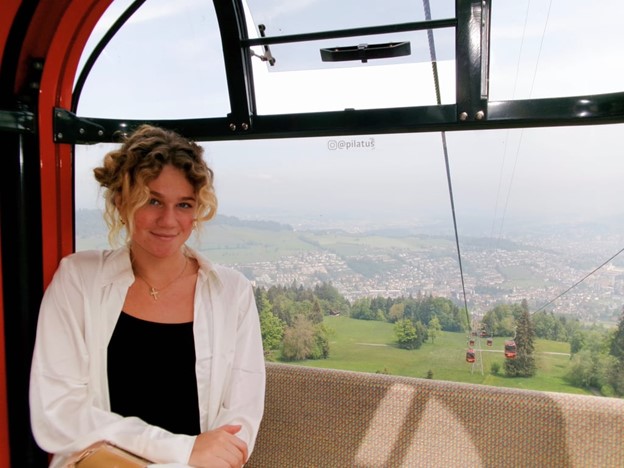
Samantha Lattanze
What was your favorite class while abroad, and why?
Biomaterials - it was the only class I took during the summer study abroad program. Dr. D'Ippolito did a great job keeping us all engaged and ready to learn, even after some late nights! He also tailored our final project to the fact that we were in Florence: we did a presentation on pasta, one of the main "biomaterials" of Italy!
what's one story or important aspect you always share about your time abroad?
One thing about CEA CAPA that I love and want everyone else to know is how much they care for each and every student studying abroad. I always felt safe, welcomed, and could turn to any CEA CAPA member for help.
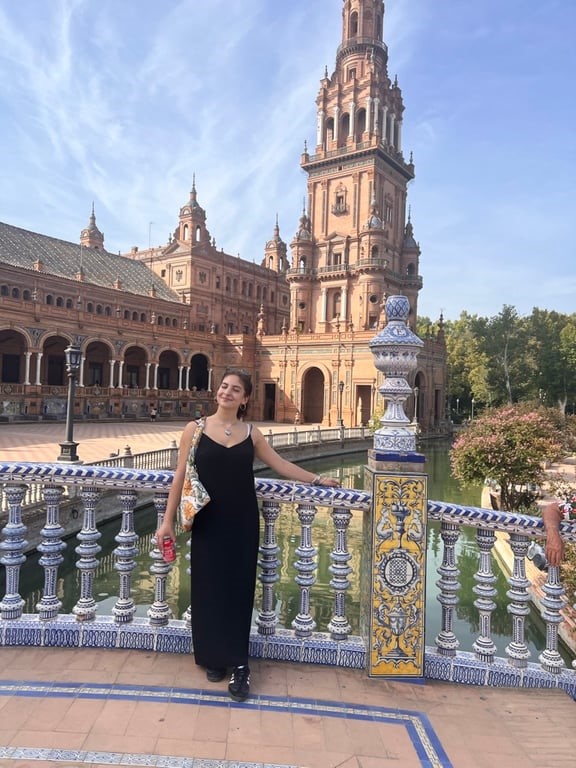
Samantha Segal
how did you engage with the local community while abroad?
Spending time with my host family allowed me to better engage with the local community in Seville. My host mom informed me about events throughout the city, such as Noche en Blanco or various Christmas celebrations. Even walking in the streets myself, I encountered events and markets, and even struck up conversations with Sevillanos! Putting yourself out there and exploring by foot are two great ways to get to know the city and people!
what's one story or important aspect you always share about your time abroad?
After the CEA CAPA Farewell Reception, I vividly remember the bittersweet feeling of being grateful for this experience, while also coming to terms with the fact that I was leaving. My friends and I, with headphones in, danced throughout the narrow streets of Sevilla, cherishing the last few days we had. It's one of those core memories that I won't forget.

Samuel Marcus
how did you engage with the local community while abroad?
One of my favorite experiences of studying abroad was volunteering, where I held weekly English conversations with native Spanish/Catalan speakers to help them improve their conversational literacy. Outside of this, I tried to fully immerse myself in the community as best I could, checking out non-touristy areas of town and trying my best to communicate in the local language.
what was your favorite class while abroad, and why?
Spanish Cultural History was a fantastic class because it discussed Spain, from the Civil War to Globalism in the 2000s, through the lens of Spanish art and entertainment. My professor was incredible and I learned so much about Spanish history after 1939, which is what I am now going to write my senior project about while at my home university.
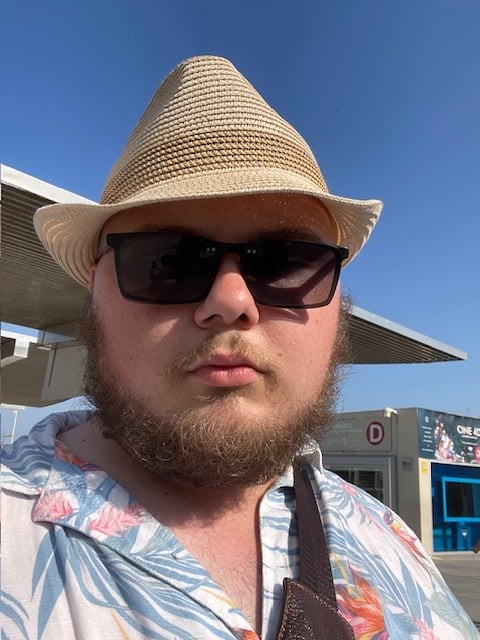
Samuel Stewart
what's one story or important aspect you always share about your time abroad?
Honestly, traveling alone can seem terrifying, but it's very rewarding and worth it. Not only to get to explore and get a closer understanding with a new culture, but for the new friends and people that you get the opportunities to meet while studying abroad.
What was your favorite class while abroad, and why?
My favorite class while abroad was my Intermediate Spanish course that I took this last time that I went abroad. Not only was the material challenging and engaging, but my classmates were incredibly nice and a joy to get to know.
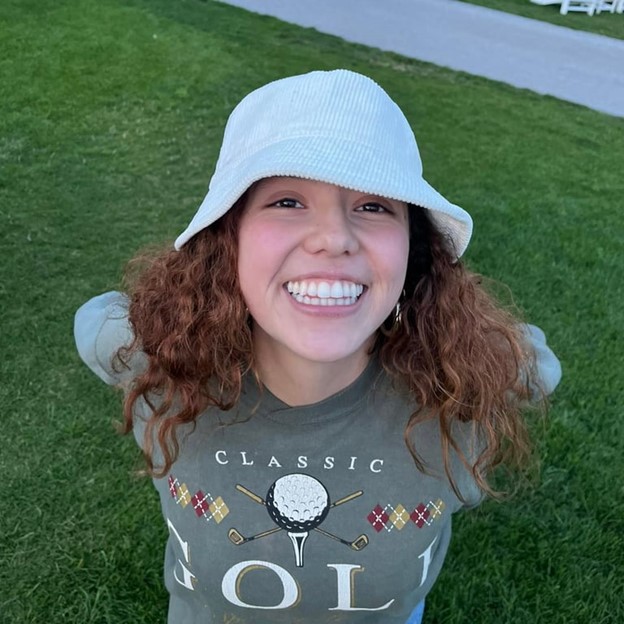
Sara Cabral-Manterola
WHAT WAS YOUR FAVORITE CLASS WHILE ABROAD, AND WHY?
My favorite study abroad class was my "Arte en el Museo del Prado" class. We were allowed to visit el Museo del Prado three times during the semester. The best was learning about Spanish culture and history through the eyes of amazing Spanish painters like El Greco, Goya, and Velazquez.
WHAT'S ONE STORY OR IMPORTANT ASPECT YOU ALWAYS SHARE ABOUT YOUR TIME ABROAD?
The life-balance lifestyle Spanish live is a great experience to learn from to apply in your life. In Spanish, social interactions are as important, or maybe more important, than endless homework deadlines. It makes students see a different framework to learn about the world.
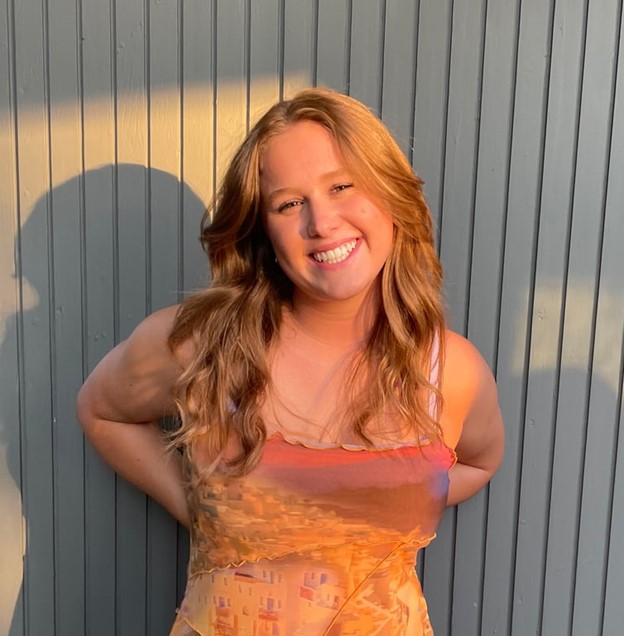
Sarah Bonano
Why was your cea capa program the right fit for you?
My study abroad program was right for me because I improved my Spanish language skills, experienced living in a city, and I loved the culture in Madrid.
if you could pick another cea capa program (besides yours) which one would it be and why?I would've picked studying abroad in Amsterdam because that was my favorite city that I visited.
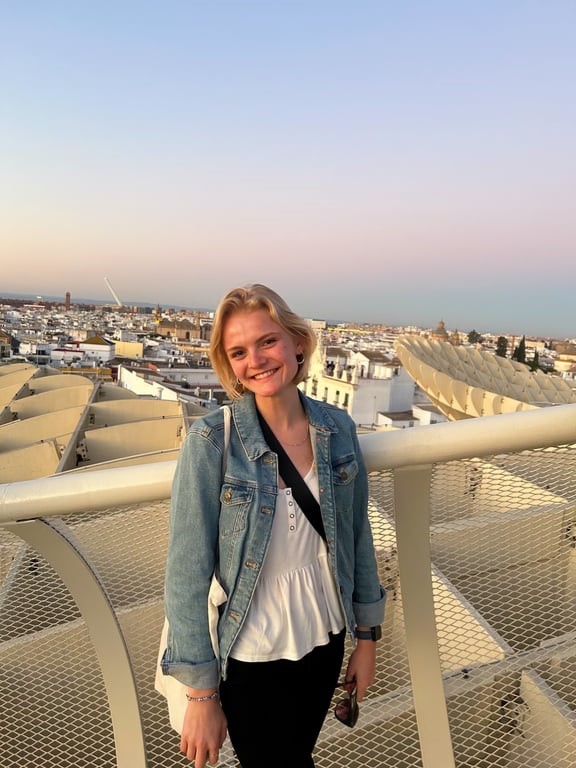
Sarah Everett
what's one story or important aspect you always tell people about your time abroad?
Some of my most transformative moments were from aimlessly exploring Sevilla by myself. Doing so led to stepping outside my comfort zone and connect with locals more than if I was in a group. On one particular day at an art market, I made a point of having a conversation with one of the vendors, which is still a memorable conversation.
how did you engage with the local community while abroad?
In Sevilla, there were multiple opportunities to engage in the local culture - particularly during the spring semester. I was especially appreciative to take the opportunity to attend Feria de Abril - a weeklong festival where people dress up in elaborate flamenco dresses with dancing, music, drinking, and eating. Another aspect of the local community that I could experience more regularly was through my International Service Learning course, where I volunteered at a local soup kitchen that was only about a ten to fifteen-minute walk from my Casa de Sevilla. I have remained in contact with one of the locals I met while volunteering, which makes me so grateful.
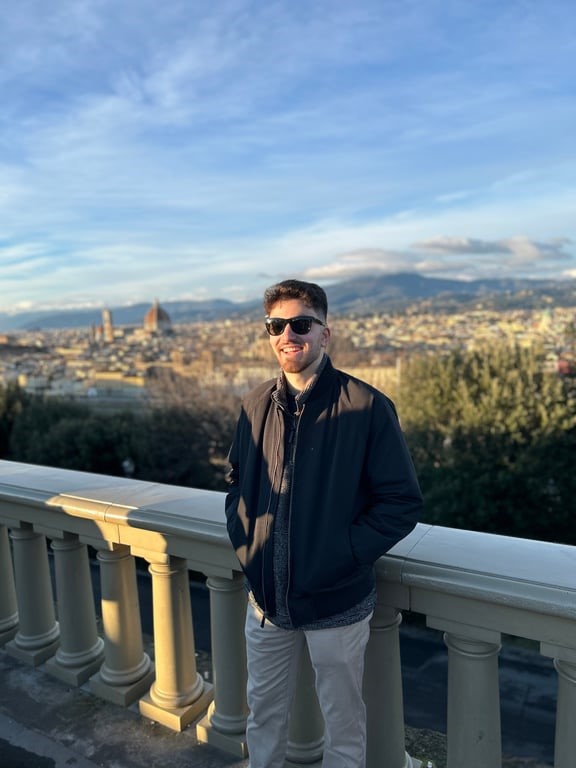
Sevag Yepoyan
how did you engage with the local community while abroad?
My favorite way of engaging with the local community was with strangers at the local Fiorentina football matches. Talking to other fans on the way to the game and learning the chants from the ultras helped me fit in and make countless friends. Football unites all.
what was your favorite class while abroad, and why?
My favorite class was Contemporary Italian Cinema. My professor Guido was an absolute legend and he made the class super fun for everyone. As someone who already enjoys cinema it was awesome to learn more about Italian movies and how to dissect films.
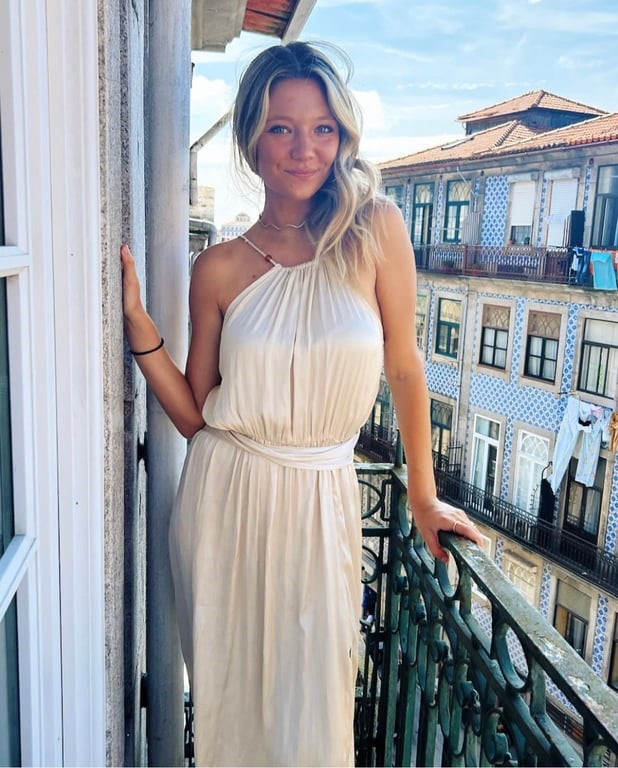
Shane Oshaughnessy
WHAT'S ONE STORY OR IMPORTANT ASPECT YOU ALWAYS SHARE ABOUT YOUR TIME ABROAD?
The freedom you get to have at such a young age is why you should study abroad. If you and your friends want to take a train or a flight to a different country or city you get to have that experience that you normally dont in America. This made me and my roommates travel and explore so much. We made up the term "YOISO"... aka "You're only in Spain once." We said this almost everyday just because we wanted to experience everything we can.
WHAT WAS YOUR FAVORITE PART ABOUT YOUR INTERNSHIP ABROAD, AND WHY?
I interned abroad for an interior designer in Barcelona, Spain for two months. While I knew nothing about interior design I challenged myself on how to market something I had little experience of. Therefor I grew and learned a lot this summer in a way I never thought I would before.
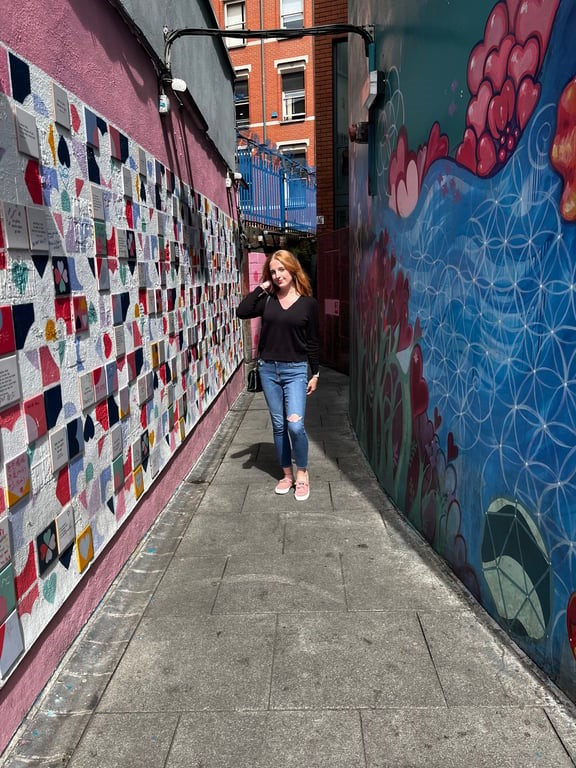
Shannon King
how did you engage with the local community while abroad?
I went to many different events being held around the city!
what's one story or important aspect you always share about your time abroad?
One aspect I always tell people is how much studying abroad changes you. It changes your entire perspective on life and the world and you become so independent. Even if you don't consider studying abroad to start a new journey or grow, you definitely will and you won't realize it until you go home. I didn't realize how much I've grown until I came home and I was no longer interested in the lifestyle I was living before I left.
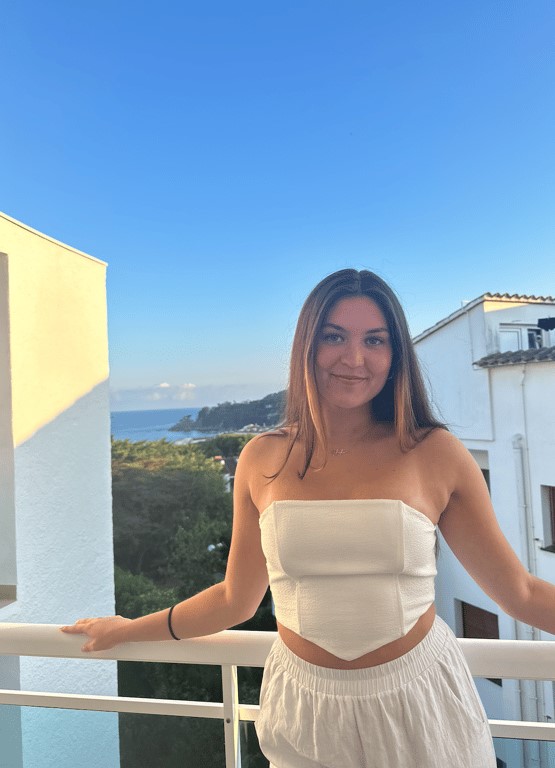
Shyla Werneke
if you could pick another cea capa program (besides yours) which one would it be and why?
I'd choose an internship abroad program. A lot of my friends did the internship program in Barcelona and it seemed like a great experience.
what's one thing about cea capa you think everyone should know?
The staff support is great! My CEA CAPA Advisors always made sure I was on top of my deadlines. They also quickly responded with answers to any questions, from tuition to Spanish culture.

Simi Parhar
what's one story or important aspect you always tell people about your time abroad?
One story I always share from my time in Granada, Spain, is the unforgettable experience of visiting the Alhambra at sunset. As the warm hues of the setting sun bathed the exquisite palace complex in a golden glow, I was truly mesmerized by the intricate architecture and the tranquil beauty of the Generalife gardens. It was a moment of pure magic, where centuries of history came alive, and I felt a deep sense of connection to the rich cultural tapestry of Andalusia.
What was your favorite class while abroad, and why?
Spanish 230 was my favorite class while studying abroad because it provided a unique opportunity to deepen my understanding of the language and culture in an immersive environment. The dynamic teaching style and engaging curriculum made the learning process enjoyable, and the small class size allowed for personalized interactions with both the instructor and fellow students. Through interactive discussions, challenging assignments, and real-life language applications, the class not only improved my language skills but also enriched my overall experience in the Spanish-speaking country.
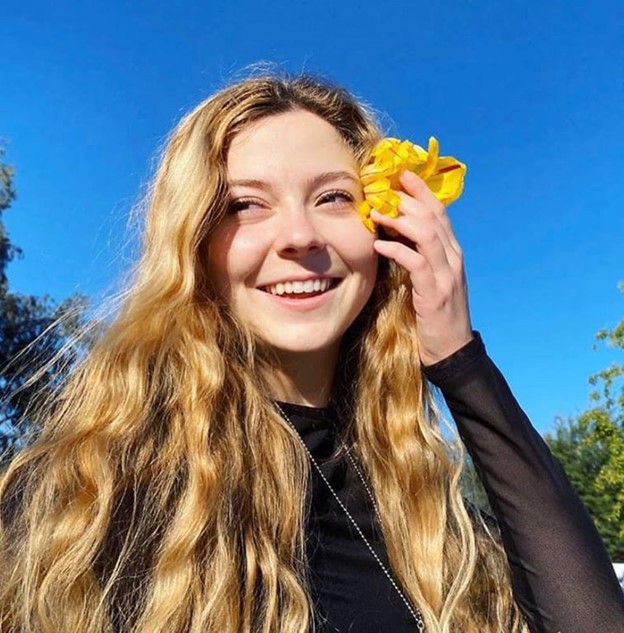
Sophia Cartwright
IF YOU COULD PICK ANOTHER CEA CAPA PROGRAM (BESIDES YOURS) WHICH ONE WOULD IT BE AND WHY?
Back to Amsterdam or somewhere in Italy; probably Rome. I had a phenomenal time in Amsterdam and I adore Italian culture!
WHAT'S ONE THING ABOUT CEA CAPA YOU THINK EVERYONE SHOULD KNOW?
Encountering the world in a safe and supported way is possible, and so wonderful for our formation!
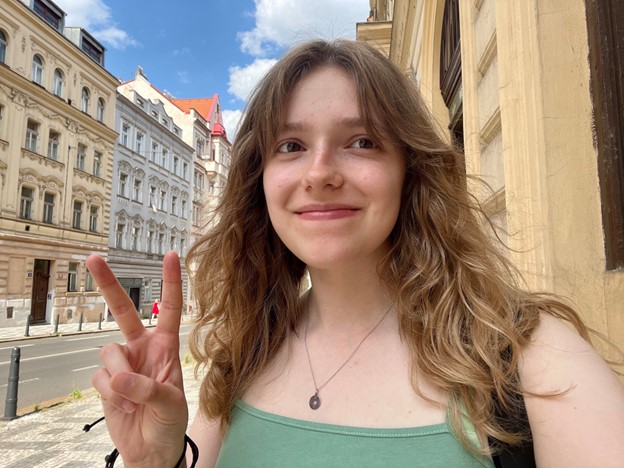
Sophia Weeks
what's one thing about cea capa you think everyone should know?
It's an amazing experience! CEA CAPA staff show how much they care about you and you having a great experience while studying abroad.
why was your cea capa program the right fit for you?
I think that my CEA CAPA summer abroad program in Prague was perfect for me because it had the classes I would've taken over the summer anyway. Plus, it was in a location that I've never been to and have always wanted to go.
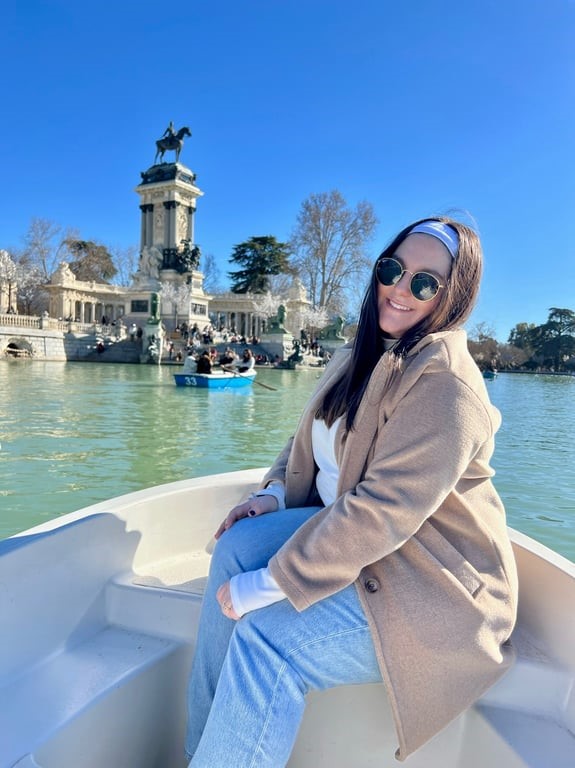
Sophie Gold
what was your favorite class while abroad, and why?
My favorite class while abroad was Public Art in the Global City! Barcelona is renowned for its vibrant art scene, from the works of Antoni Gaudí to contemporary street art. Exploring the city's public art exposed me to various artistic styles, cultural influences, and historical contexts, allowing me to immerse myself in the local culture.
What's one story or important aspect you always tell people about your time abroad?
Learning the language of the country you're studying abroad in is really important!
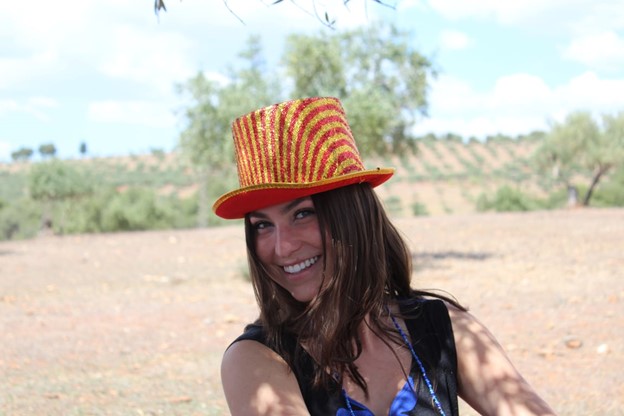
Sophie Moore
how did you engage with the local community while abroad?
I engaged with the local community in Granada by joining the local Ultimate Frisbee team. I practiced with the team Mondays and Thursdays and attended one tournament hosted by the team in Granada which helped me see a different side of the city. This team is where I made connections with locals while I played a sport I love. I'm so glad I had this experience and highly encourage anyone studying abroad to be apart of the local community to understand where you are living from every angle.
what's one story or important aspect you always tell people about your time abroad?
I always talk about the time my roommate and I took a 24 hour bus ride to Paris, Amsterdam, and Brussels which turned out to be one of the best trips of my life. No bathroom or outlets for the majority of the bus ride made me and my roommate strategize our water and food consumption while also getting to be very creative to find ways to pass time.

Stefanie Fernandes
Why was your cea capa program the right fit for you?
My study abroad program was the right fit for me because the location I chose was one that I loved! Barcelona was a vibrant city with a lot to offer. From the culture to the people, it was a great city to study abroad in and I'm thankful for this experience.
What's one thing about cea capa you think everyone should know?
One thing everyone should know about CEA CAPA is all the events and study abroad excursions that they offer while studying abroad!
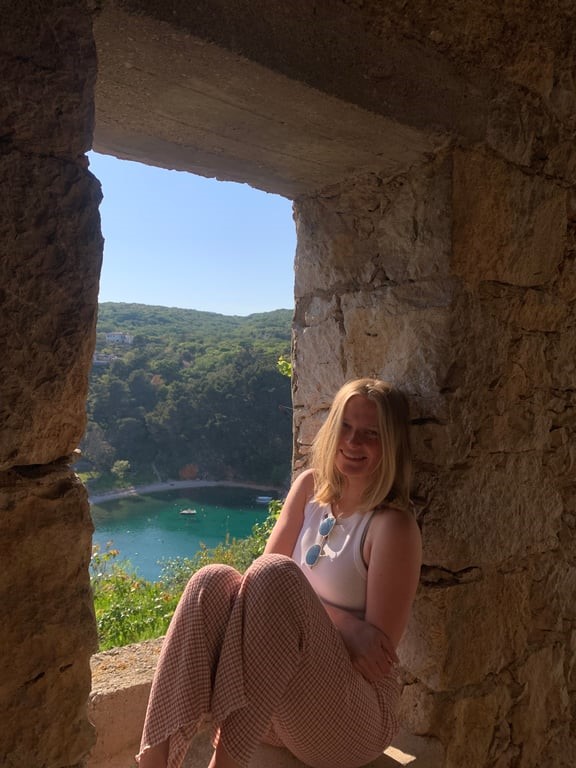
Stephanie Eliseo
WHAT'S ONE STORY OR IMPORTANT ASPECT YOU ALWAYS SHARE ABOUT YOUR TIME ABROAD?
My first day of class at CEA CAPA, I ran in late with a to-go coffee. Lorenzo, one of the directors of the program, stopped me and asked why I had a to-go coffee in Italy!? He explained to me that it's common practice in Italy to take the time to stand at the coffee bar and enjoy your coffee for a moment, rather than just running off with it in a rush. This really stuck with me because it's a perfect example of what the culture is like in Florence. Because of this interaction, I learned to lean into the culture, and take the time to stop and enjoy myself, the food I'm eating, and the amazing city around me.
WHAT WAS YOUR FAVORITE CLASS WHILE ABROAD, AND WHY?
I loved all of my classes abroad because of how interactive the professors made them. I especially liked my Art History class! The class was formatted as the first half of class was lecture, then the second half we would go to a new historical site each week to see the art in person. This was such an amazing experience because I visited churches, museums, and more that I probably would not have gone to if it were not for this class. It was basically like having a personal tour guide each week, which made me gain so much knowledge about Florence and its history.
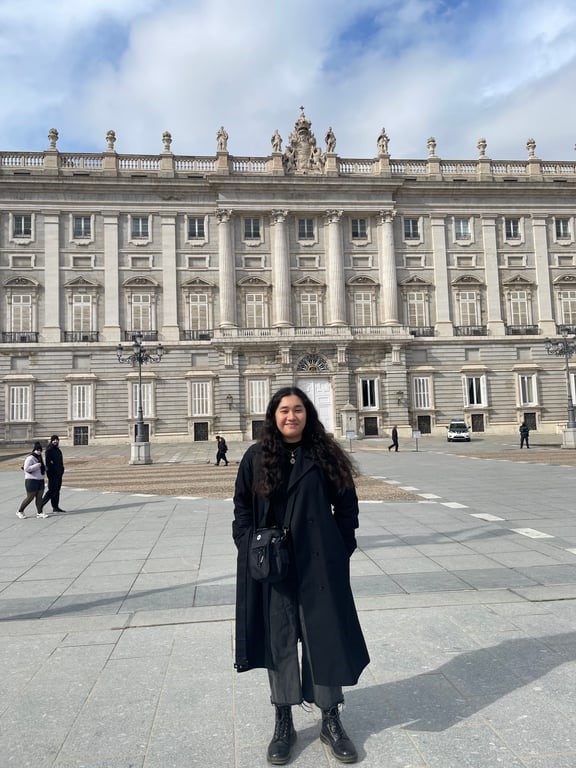
Stephanie Rosenberg
HOW DID YOU ENGAGE WITH THE LOCAL COMMUNITY WHILE ABROAD?
I engaged with the local community through exploring the city in my free time. I tried to explore the local cuisine and go to different restaurants as much as I could which helped me feel more involved in the community and culture around me. I also took part in many of the cultural activities planned by my program coordinator which helped me learn more about French culture. Some of my favorite events and activities I took part in were a French food tasting, hockey game, street art tour, and a wine and cheese tasting.
WHAT'S ONE STORY OR IMPORTANT ASPECT YOU ALWAYS SHARE ABOUT YOUR TIME ABROAD?
One important aspect I always share about my time abroad is to always be open to new experiences and to keep an open mind. Even though some things are different than what you anticipated, there's always a bright side to every situation. I also recommend trying new things and doing things you never thought about as this is a once in a lifetime opportunity to take advantage of every experience that comes your way.
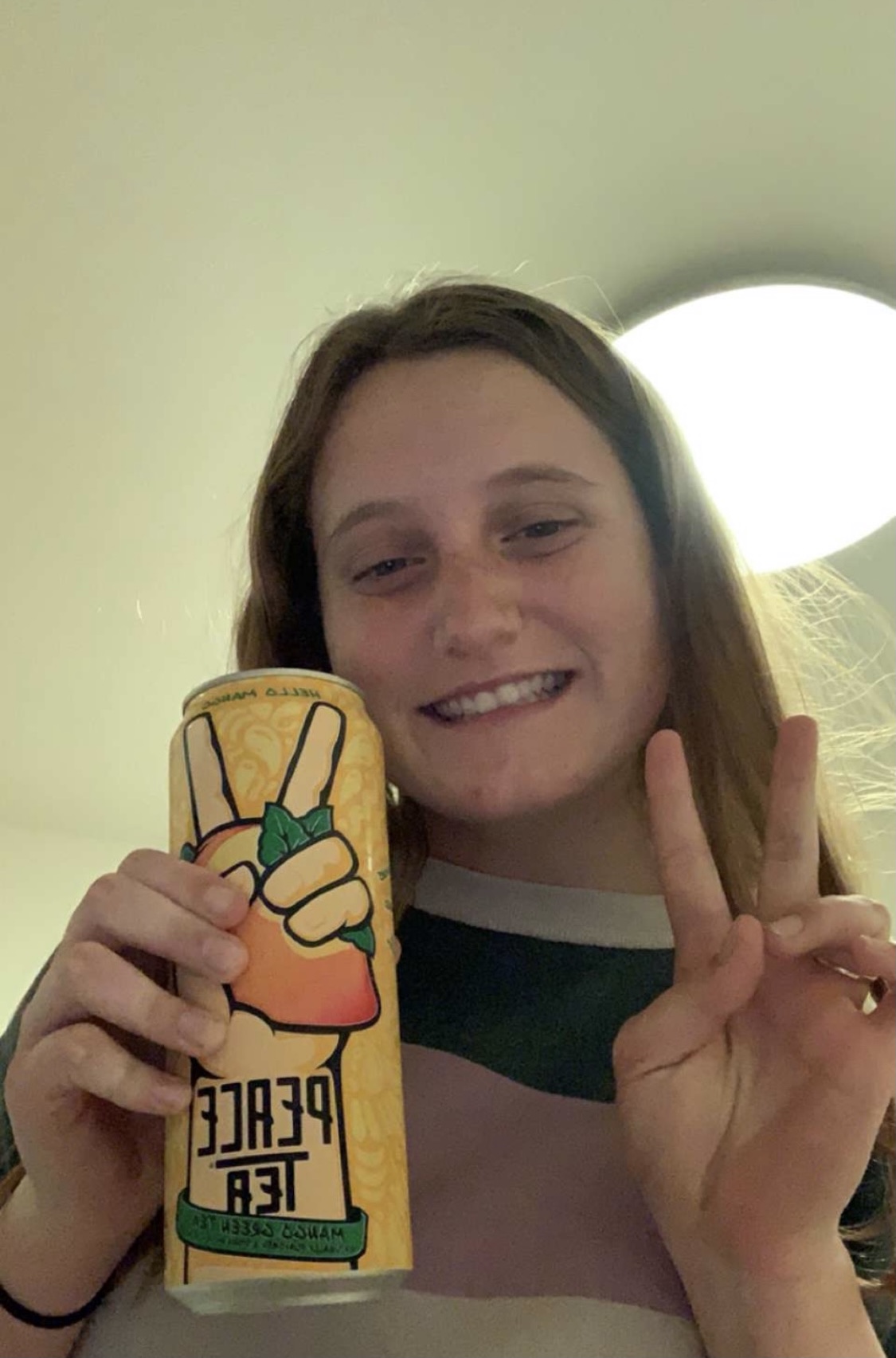
Sydney Dresser
WhAT DO YOU APPRECIATE MOST ABOUT CEA CAPA EDUCATION ABROAD?
The CEA CAPA program helped me enjoy my studies in Spain, and appreciate the parts of the country I did not know existed. With the planned outing and adventures, I got to bask in the beauty of Spain and its surrounding cities. The staff also made an effort to check in and make sure everyone was feeling well and enjoying their time abroad. Seeing them at our outings was always a huge treat, and I enjoyed talking to them about places to go around town and the best things Spain has to offer.
My study abroad experience has reignited my desire to pursue the medical industry. Meeting so many new people and connecting with those in my program has me considering going abroad for medical school and pursuing a doctorate in emergency medicine.
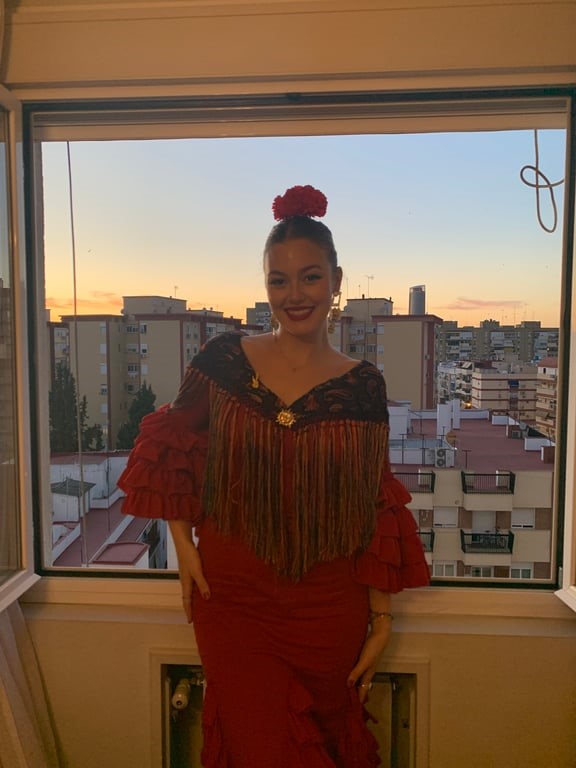
Sydney McCarter
IF YOU COULD PICK ANOTHER CEA CAPA PROGRAM (BESIDES YOURS) WHICH ONE WOULD IT BE AND WHY?
I chose to go to Sevilla, Spain to solidify my Spanish speaking abilities, and as badly as I'd want to choose another study abroad program in Spain, I'd pick Argentina or Costa Rica. I had the opportunity to visit both of these breathtaking countries with my family but never got a chance to dive into the culture and lifestyle.
what's one story or important aspect you always tell people from your time abroad?
It's a privilege to get the chance to understand and immerse yourself into another culture and lifestyle. Very few people have the opportunity to do that in their lifetime and it contributes so greatly to the person you want to become and your ability to create a home for yourself as you move throughout life. If you allow yourself to thrive and lean into the experience of studying abroad, you'll feel confident navigating life amidst discomfort and uncertainty.
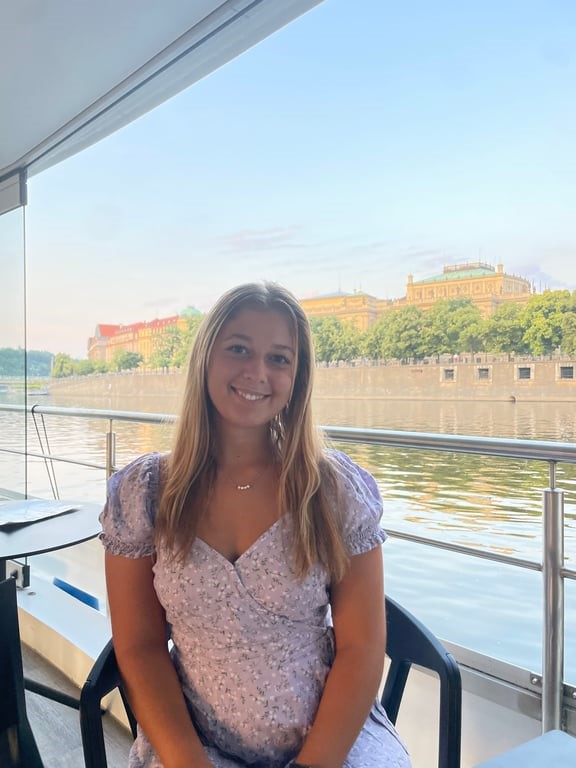
Sydney Ziegler
How did you engage with the local community while abroad?
I engaged with the local community by taking a culture class where we went to local shops and restaurants to experience the culture. I also tried as many local restaurants as possible. Also, I lived in an apartment outside of the main part of the city of Prague which allowed me to see less of the tourist side of the city.
what was your favorite class while abroad, and why?
My favorite class was a culture, food, and brewery class. I was able to try a bunch of different authentic dishes and learn about the history of them. My favorite part was visiting local shops outside of the main part of the city which allowed me to visit places that I would not have seen otherwise. The class also allowed for opportunities to go into the city as opposed to always staying the classroom.
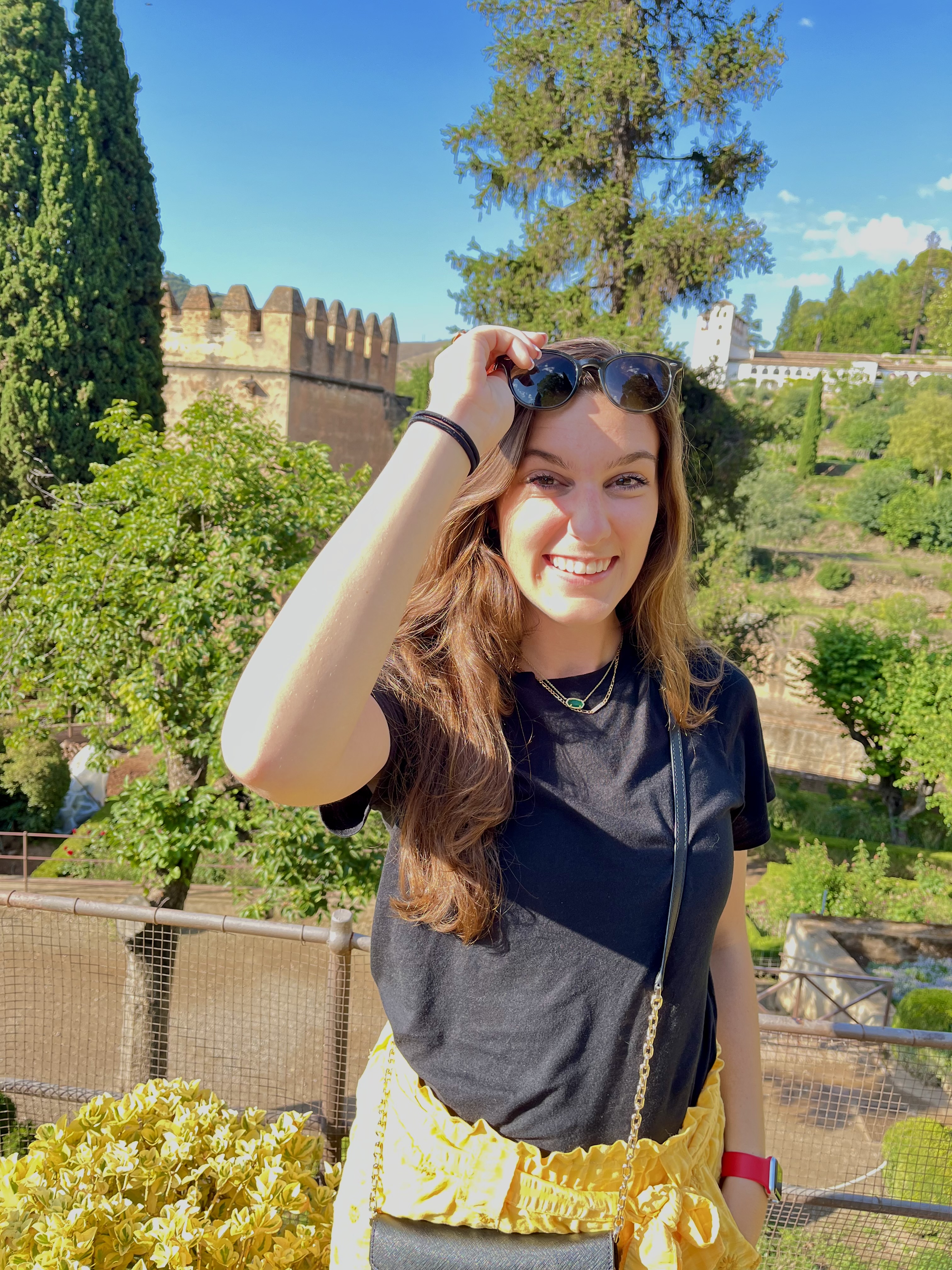
Taylor Niehoff
What's one story or important aspect you always tell people about your time abroad?
Connecting with the people on your program will make a huge difference in your experience abroad! I met so many amazing people during my study abroad program, all with different lives and backgrounds and it was such an incredible way to open my mind to others in this world. I know that I'll have the friends I made on my program for the rest of my life!
Why was your cea capa program the right fit for you?
I knew Alicante was the perfect fit for me because it gave me the amenities of a big, familiar city but the authentic immersion experience of a small town. Since my goal was to gain proficiency in Spanish, I wanted to be in a smaller community that would force me to solely rely on Spanish. Alicante gave me that, as well as, having the familiar restaurants and stores of a larger city, to provide me comfort on days that I was homesick. Alicante also provided the ideal lifestyle that I looked for, lots of outside time! I spent most of my days hiking, going to the beach, and doing homework at outdoor cafés, when I wasn't in class.
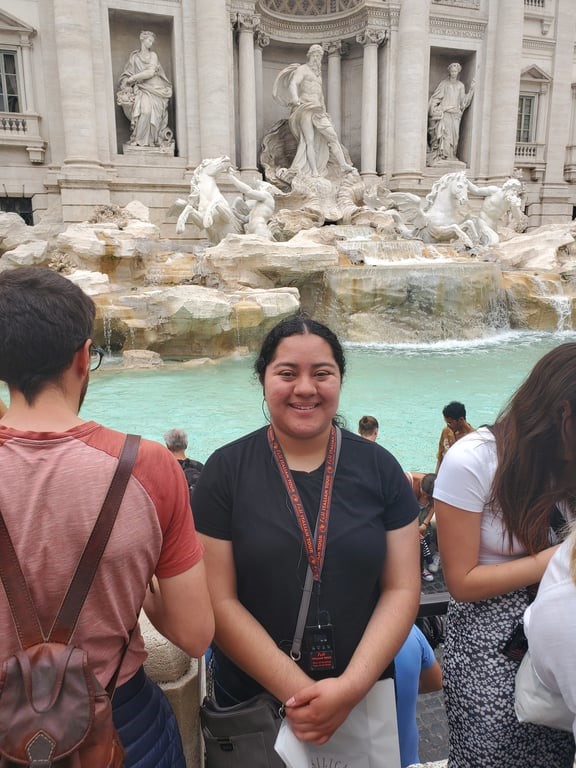
Tiffany Cedillo
how did you engage with the local community while abroad?
I engaged with the local community while abroad by learning the greetings used in Italy. I learned basic phrases such as "good morning" and I'd frequent a local market near my apartment where my friend and I became known by the fruit seller there. He greeted us happily and gave us an extra fruit at times. My friends and I enjoyed sitting at the corner bench across our apartment to talk about our day and what we hope to do later in the week as we watched people go about their day. It was a way we took breaks from everything.
what's one story or important aspect you always tell people about your time abroad?
The important aspect I always tell people during my time abroad is how important it is to be confident in one's own abilities because this will allow growth in independence in a foreign country. I didn't know how to get to places on my own but I learned and I overcame the doubts I had for myself. I know how difficult everything is the first time it is done but the second time is always easier. I've gotten lost but I found my way back, I learned different ways to get to my apartment. To live in the moment of all that is being seen. I have pictures in my phone but it compares to nothing when seeing it in front of you with your own eyes. The details, the emotions being felt, because everything is different in person. To enjoy it all because every day abroad was an exciting one.
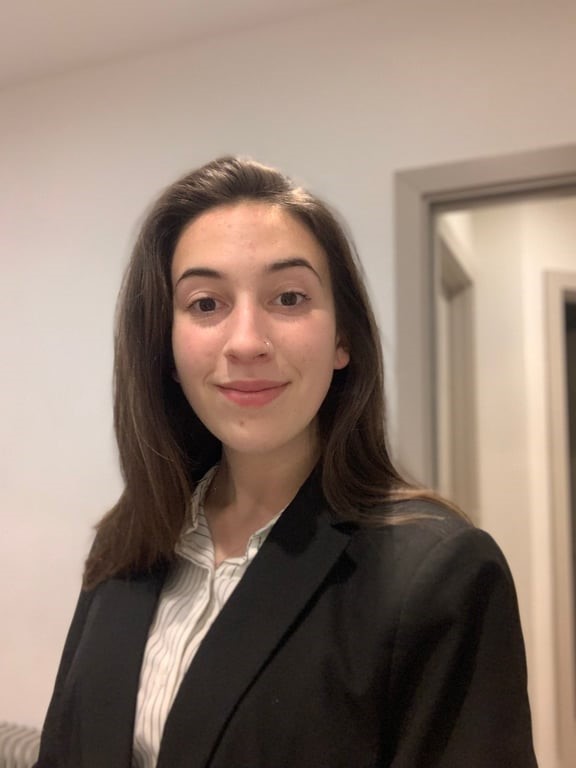
Tristan Chiancone
how did you engage with the local community while abroad?
I went to countless markets while studying abroad in London. My favorite market was Camden Market. I would always go there when I needed a break from work. I loved walking into every shop and chatting with the vendors.
what's one story or important aspect you always share about your time abroad?
I learned a lot about myself while studying abroad. I grew a lot but the one thing I really saw change was how much more independent I am. I was terrified to travel alone in the beginning and it really stopped me from doing a lot, but by the end of my semester I was taking solo trips to countries that don't speak English.
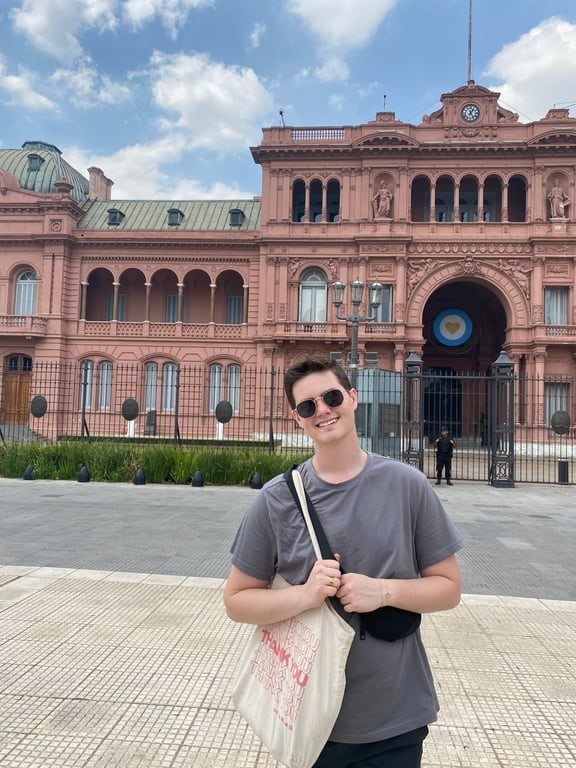
Tyler Gadbury
HOW DID YOU ENGAGE WITH THE LOCAL COMMUNITY WHILE ABROAD?
I engaged with the local community by attending various community and regional events during my time abroad. Whether I attended protests as a viewer or a farm show, I got engaged with the local community by going to non-touristy events organized by organizations or governmental divisions. Furthermore, I utilized these events as a means to communicate with locals, learn about the event and its meaning, and feel a larger sense of belonging in Buenos Aires.
what's one story or important aspect you always share about your time abroad?
I always tell people about my time abroad and how happy I am that I made the most out of my host city. It's so easy to travel every weekend during your time abroad, but I feel that my experience would not have been as amazing as it was without the events and weekend festivities that Buenos Aires had to offer. I truly felt at home and rarely left the city on the weekends.
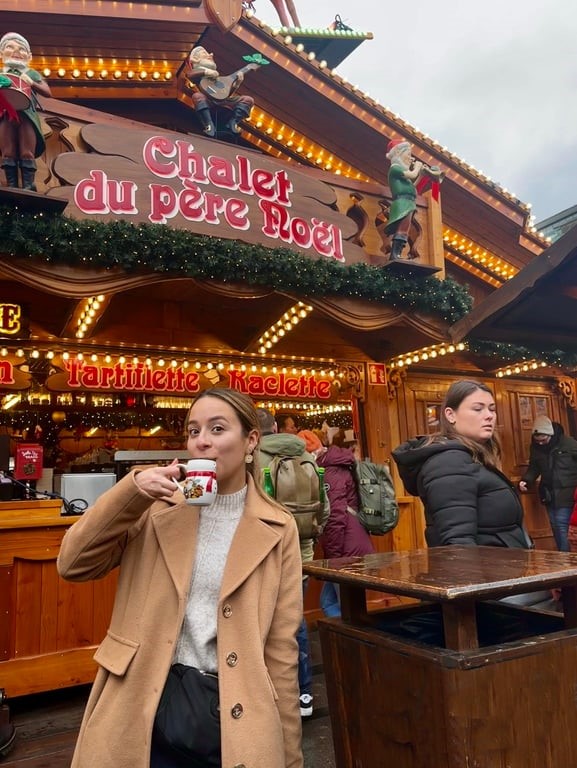
Valeria Arango
if you could pick another cea capa program (besides yours) which one would it be and why?
Medical Spanish & Health Sciences program in San José, Costa Rica. I think experiencing medical systems in the Caribbean aligns well with my future plans of aiding global health disparities, and exploring the ecotourism in Costa Rica is of great interest to me.
why was your cea capa program the right fit for you?
I fulfilled my Pre-Medical requirements by taking sciences in study abroad (Organic Chemistry and Cell Biology), and learned a third language which I tried to do for a long time.
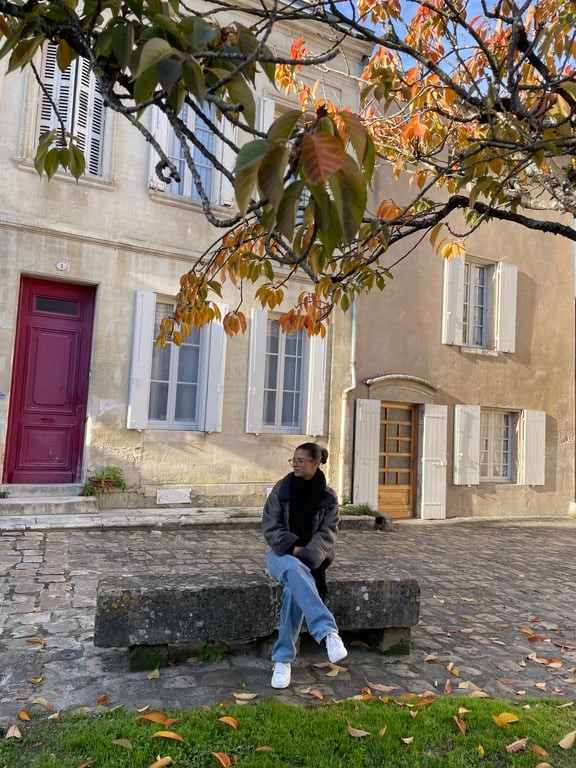
Valeria Cimmarotta
WHAT'S ONE STORY OR IMPORTANT ASPECT YOU ALWAYS SHARE ABOUT YOUR TIME ABROAD?
I was scared of having FOMO from not being at school with my friends, not knowing anyone in the program, and missing out on my Greek Life experiences. Being away from this though, allowed me to become a more individual person. Going out and experiencing things on my own such as going to museums, cooking myself meals, and exploring more parts of the city on my own. Studying abroad also encourages self discovery, you realize the things you enjoy more when you're not around the comfort of things at home.
WHAT WAS YOUR FAVORITE CLASS WHILE ABROAD, AND WHY?
The one thing I enjoyed most about my academics abroad over my academic courses at my home university is the lecture and presentation style. Teachers are more engaging with students and make class interesting. It wasn’t test heavy nor heavy with work. I had the opportunity to research and learn new things. This doesn’t mean it wasn’t challenging, obviously teachers are still going to push you because they know your potential. Leaving France I do have to say that my two favorite classes I took were in France; Business Ethics, and Wine and Food pairing. These courses introduced me to how business works in the U.S. vs. France, and the different varieties of French wines and food.
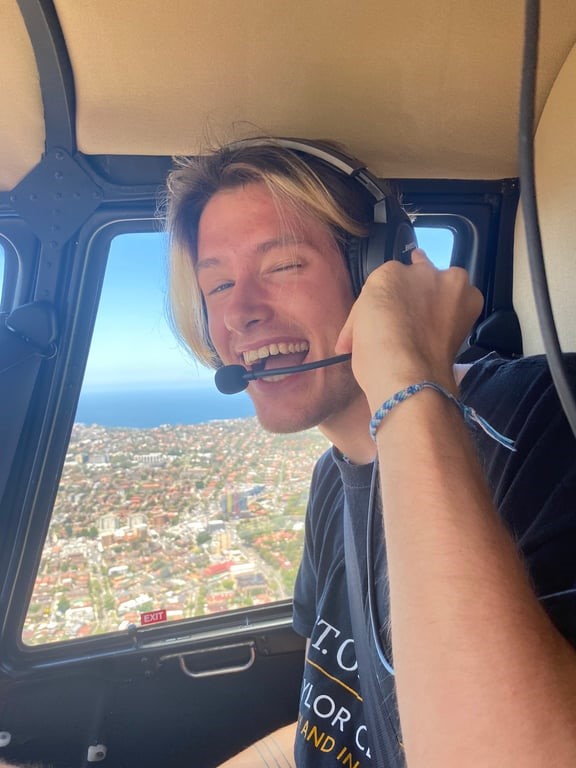
Vova Oleksovskyi
HOW DID YOU ENGAGE WITH THE LOCAL COMMUNITY WHILE ABROAD?
My biggest achievement in my opinion was the fact that I was able to make a ton of friends with a local art school community! I was lucky enough to work in the National Art School of Sydney and because of this I made friends with a lot of students from there! During creative events in the art gallery I was a part of the group which created different artworks that later were sold and the profit from it went to a local dog shelter organization! Even after finishing my study abroad I still called them and we actually planned to meet again during Summer '24! Will just need to save up some more money for the flights!
WHAT'S ONE STORY OR IMPORTANT ASPECT YOU ALWAYS SHARE ABOUT YOUR TIME ABROAD?
My friends already are TIRED of me speaking about my Australia study abroad experience, because I bring that up quite often! But the biggest aspect for me was living in the huge megapolis! I come from a tiny city where everybody knows each other and living in Sydney finally gave me an opportunity to learn how it is to live in the big city with lots of people! It really gave me the chance to look from a completely different perspective on how I want to live in the future and for now I can for sure say that my study abroad program won't be my only time that I lived in Sydney!
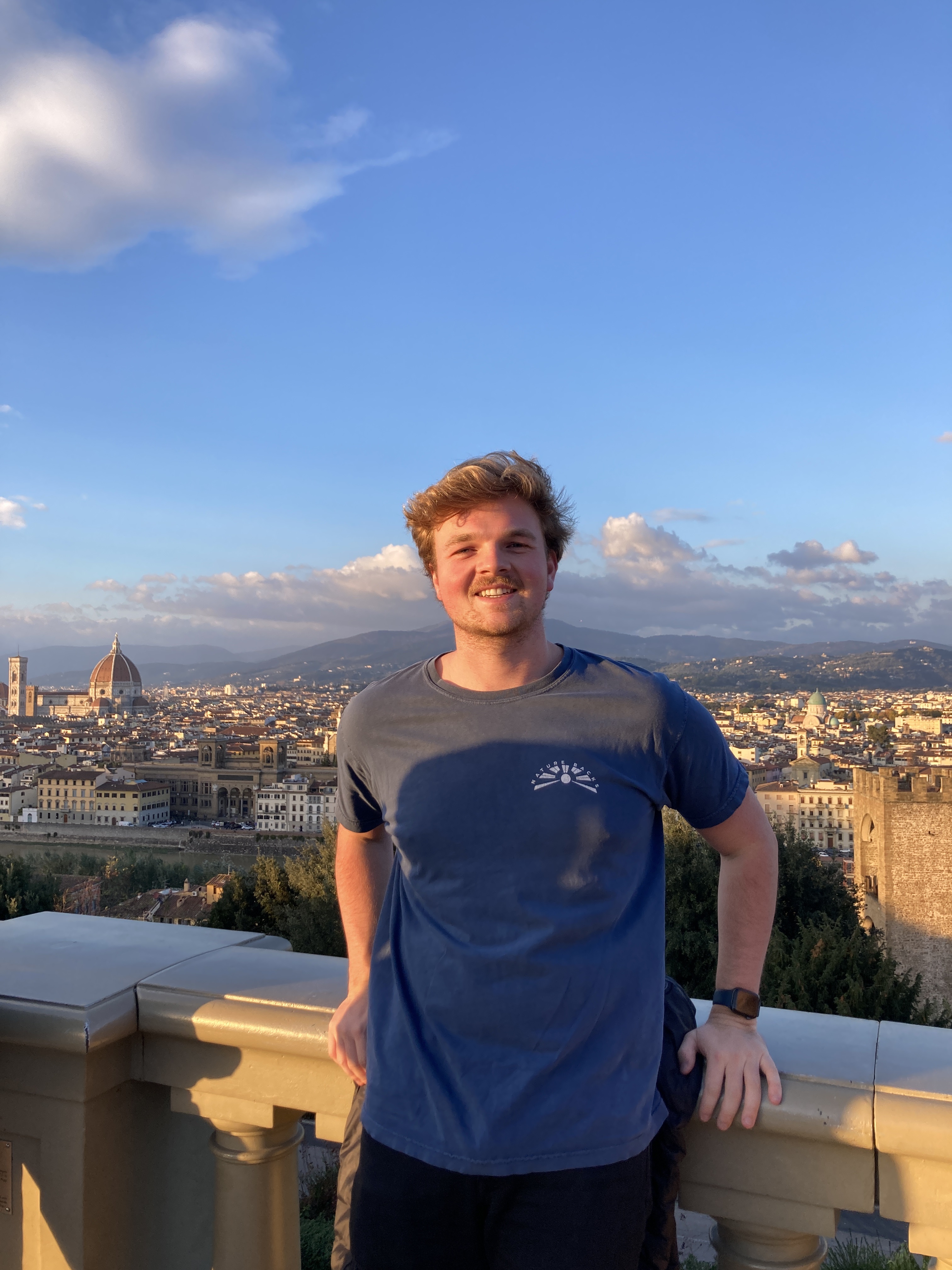
Willem Holzrichter
WhAT WAS your FAVORITE CLASS WHILE ABROAD, AND WHY?
Overall, I really enjoyed my education abroad. I took three GERs and two major classes. I particularly liked my class in Big Data Analytics where we worked in groups to analyze Airbnb API data for a presentation to a mock-investor panel. I really enjoyed this because it is a technical assignment that pushed me academically but it also was a great way to foster conversation about different Airbnb's we stayed in and where we would like to visit in the future. I got to know these people professionally and personally which felt like a very unique experience.
HOW DID YOU ENGAGE WITH THE LOCAL COMMUNITY WHILE ABROAD?
Overall, Before I studied abroad with CEA CAPA, I had mixed expectations about how involved with the locals I'd be. I had no idea what my course schedule would look like or what my living situation would be. When I arrived an settled in, I was pleasantly surprised to see that in two of my classes, I was the only American student. Being able to meet Spanish students in the classroom served as a great ice breaker. Being assigned together on group projects made it easy to settle in with peers in that sense. I was fortunate to know someone my age native to Madrid through family friends, her family hosted me for a traditional Spanish lunch one afternoon and another time I traveled to Toledo with her and some of her friends for a day trip. Other locals that were a big part of my experience were the apartment building staff. My roommates and I maintained a fun and friendly relationship with our handyman due to some maintenance issues that required fixing in our apartment. CEA CAPA was great at addressing these issues. We also made a big effort to win over our doorman as recommended at onsite orientation. He was someone we saw daily and helped greatly in practicing some language skills.
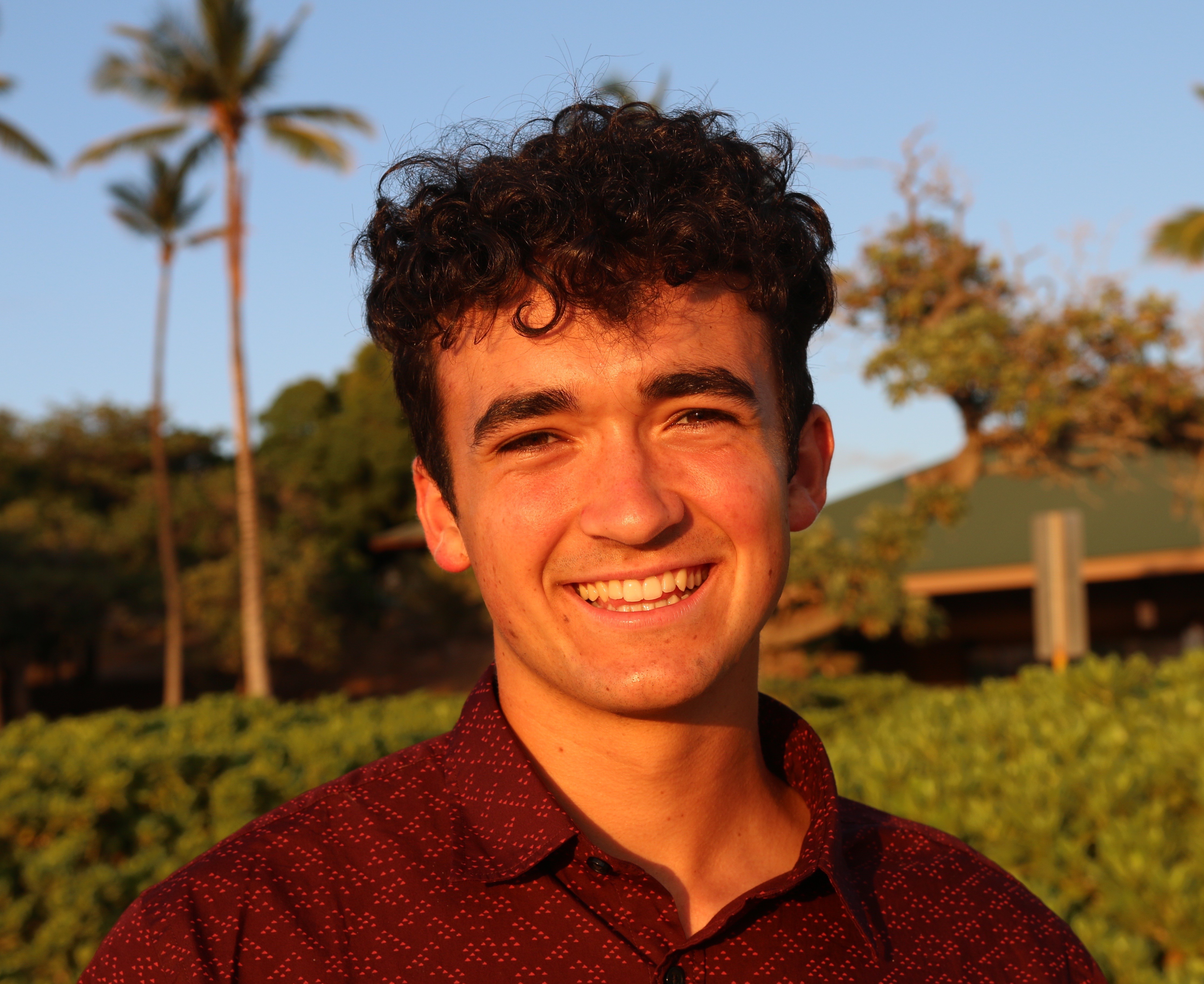
Zane Willman
WhAT IS ONE THING ABOUT CEA CAPA YOU THINK EVERYONE SHOULD KNOW?
This experience is designed to put you out of your comfort zone, meet new people, and indulge yourself in a brand new culture. CEA CAPA was an awesome safety net that allowed us to feel comfortable in this unknown place. They were always there for you if it ever felt overwhelming or scary and did a great job in encouraging people to try new things.
My favorite class I took during my CEA CAPA study abroad program in Barcelona was Spanish Art. Visiting all the museums around the city and learning about the history of how present day Barcelona is the way that it is was so interesting.
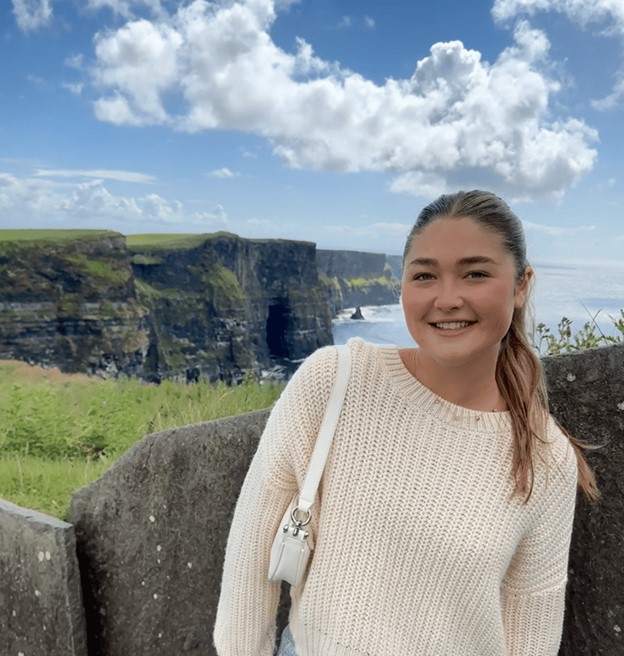
Zoe Hilcoff
what was your favorite class while abroad, and why?
I took an Irish Language and Culture class while studying abroad in Galway, Ireland. I didn't know Irish before taking the class and found it so fascinating. I practiced my Irish with the locals at places like the grocery store or restaurants.
how did you engage with the local community while abroad?
I lived in a homestay during my study abroad program, so I felt that I easily engaged with the local community by getting to know my host family and hearing their stories. I also walked everywhere during the program so I got more acquainted with the town and learned my way around, which made me feel more like a local!
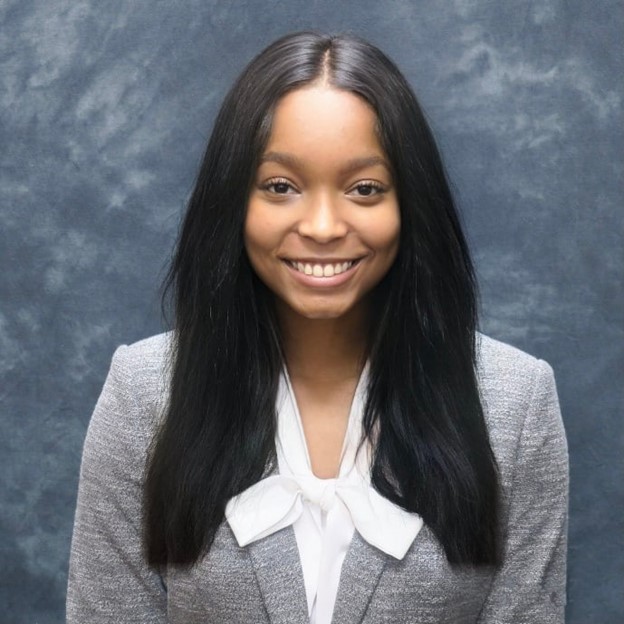
Zoë Spencer
WHAT WAS YOUR FAVORITE CLASS ABROAD, AND WHY? My favorite and only class was Spanish for Health Care Professionals for Beginners. In this class I learned the similarities and differences in the health care system and in primary care for Costa Rican people and American people.
HOW DID YOU ENGAGE WITH THE LOCAL COMMUNITY WHILE ABROAD?I went to different classes such as cooking class and dancing class to learn more about their culture. I also engaged in conversation whenever I went out, and interacted with the locals.
CEA CAPA Department List
-
Leadership
-
Academic Affairs
-
Health, Safety & Student Affairs
-
Enrollment Services
-
Institutional Relations
-
Onsite
-
Global Impact
-
Global Operations
-
Information Technology
-
Custom Programs
-
Internship Programs
-
Program Development
-
Marketing
-
Communications & Events
-
Human Resources
-
Alumni Ambassadors
-
Content Creators
Speak with an
Admissions Advisor
Schedule an appointment to speak with a study abroad expert.
Book Appointment